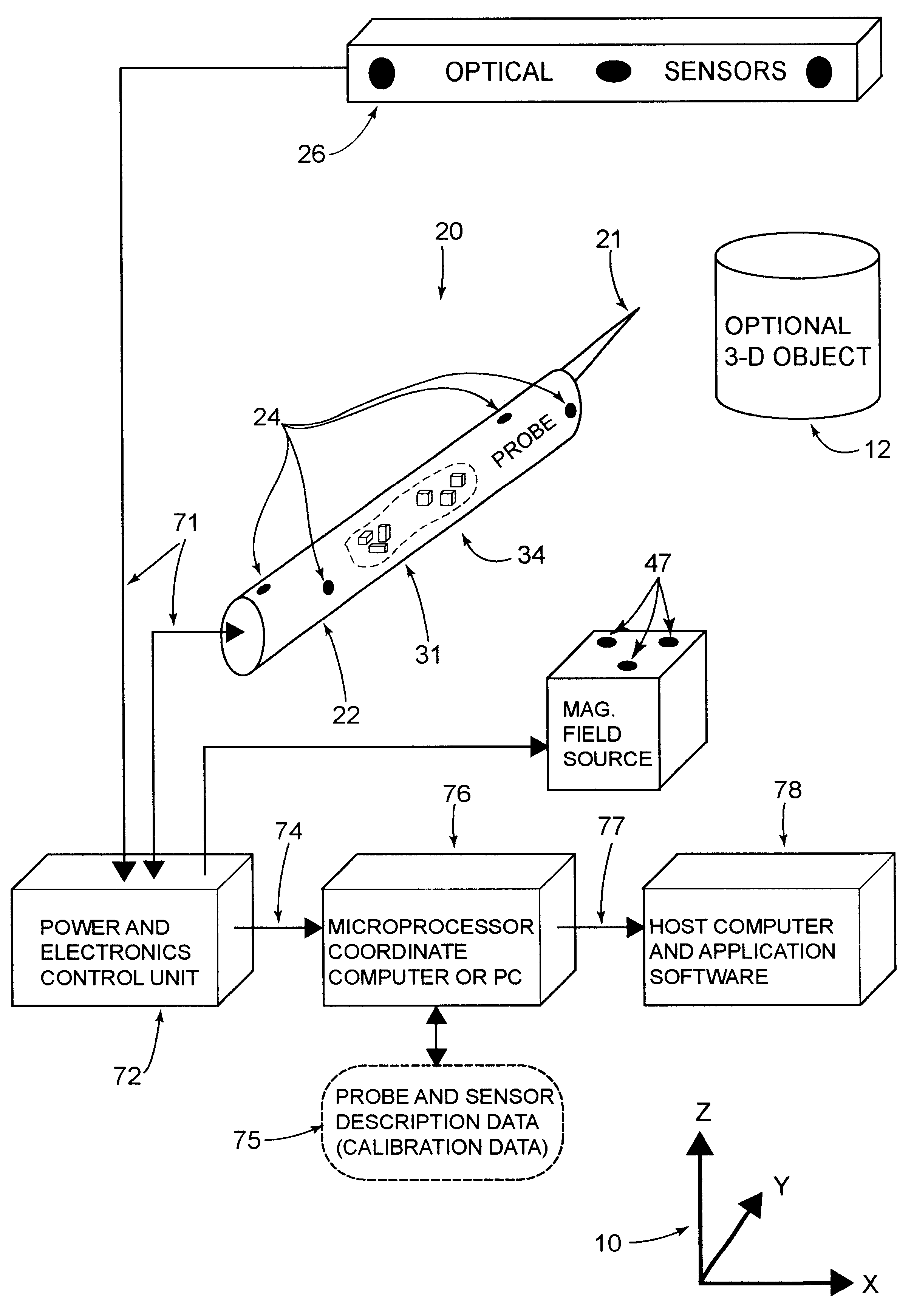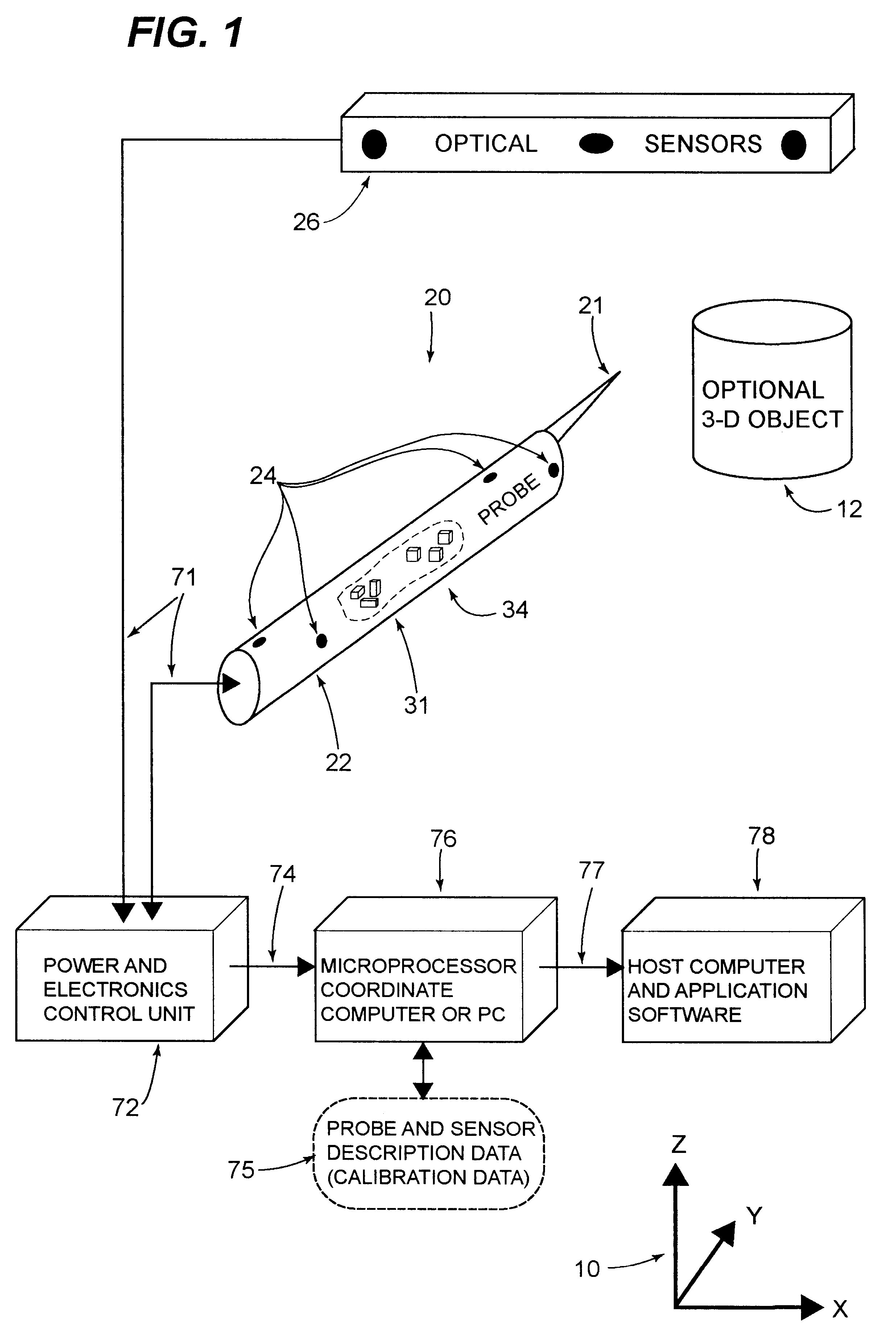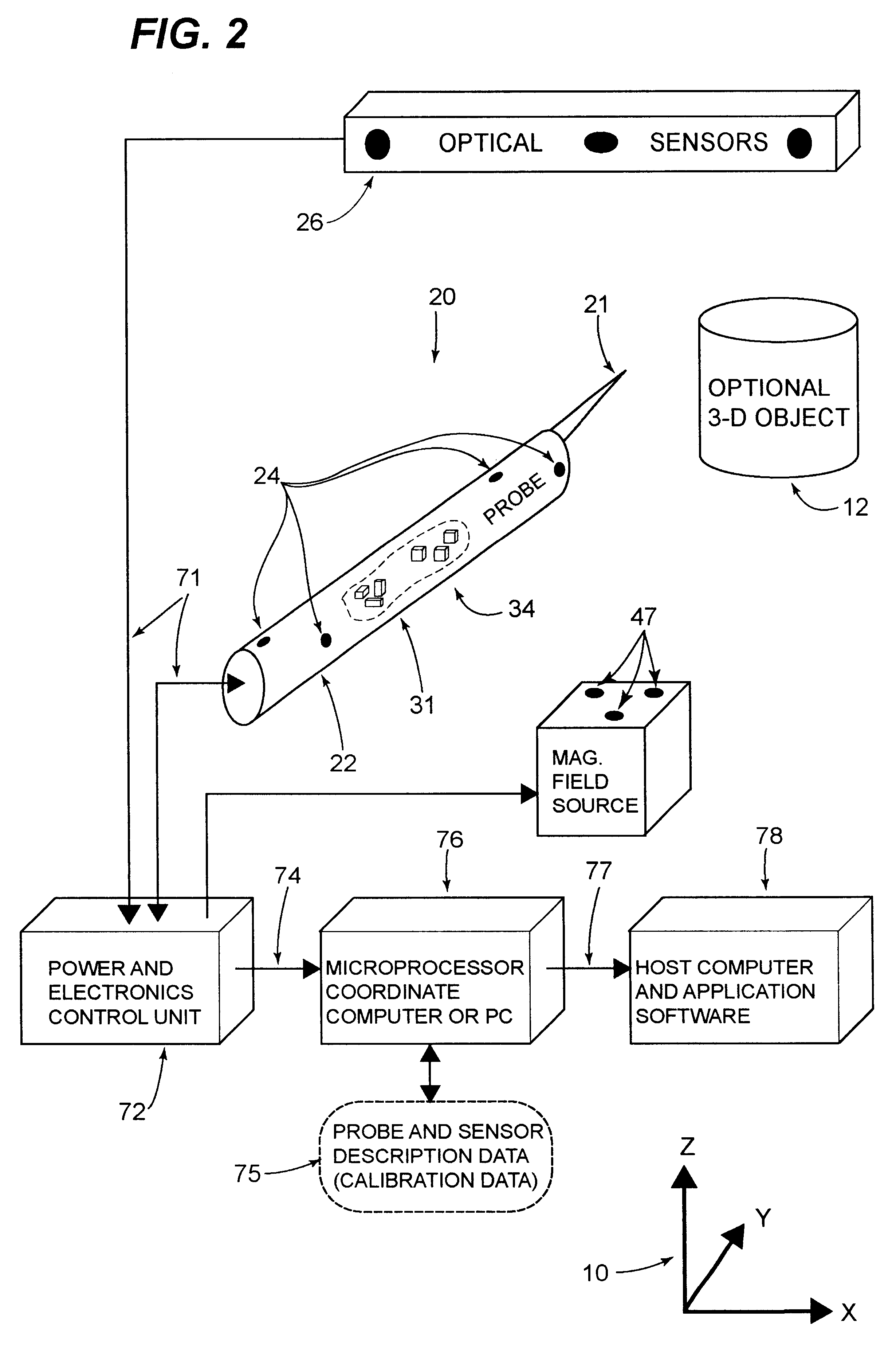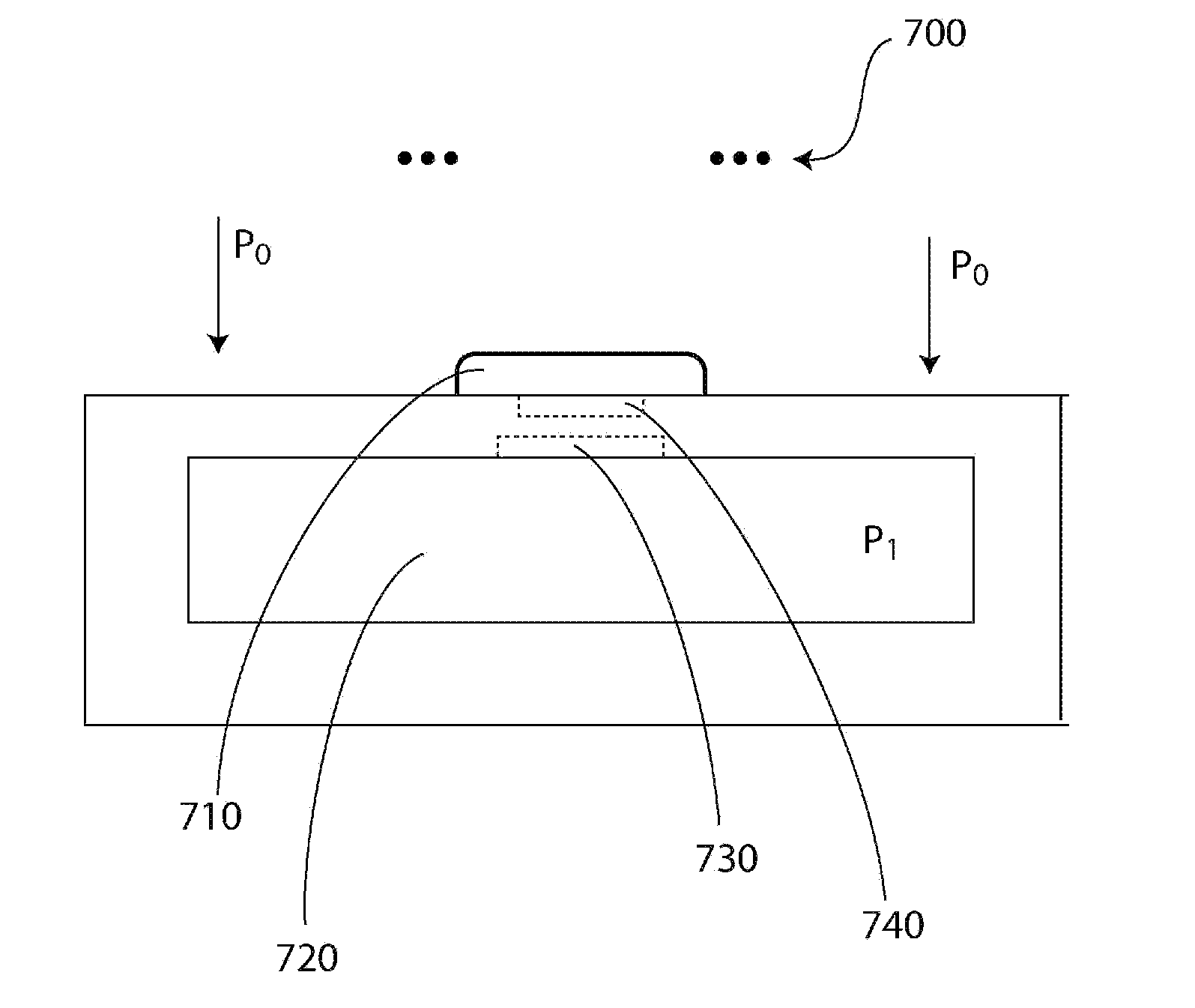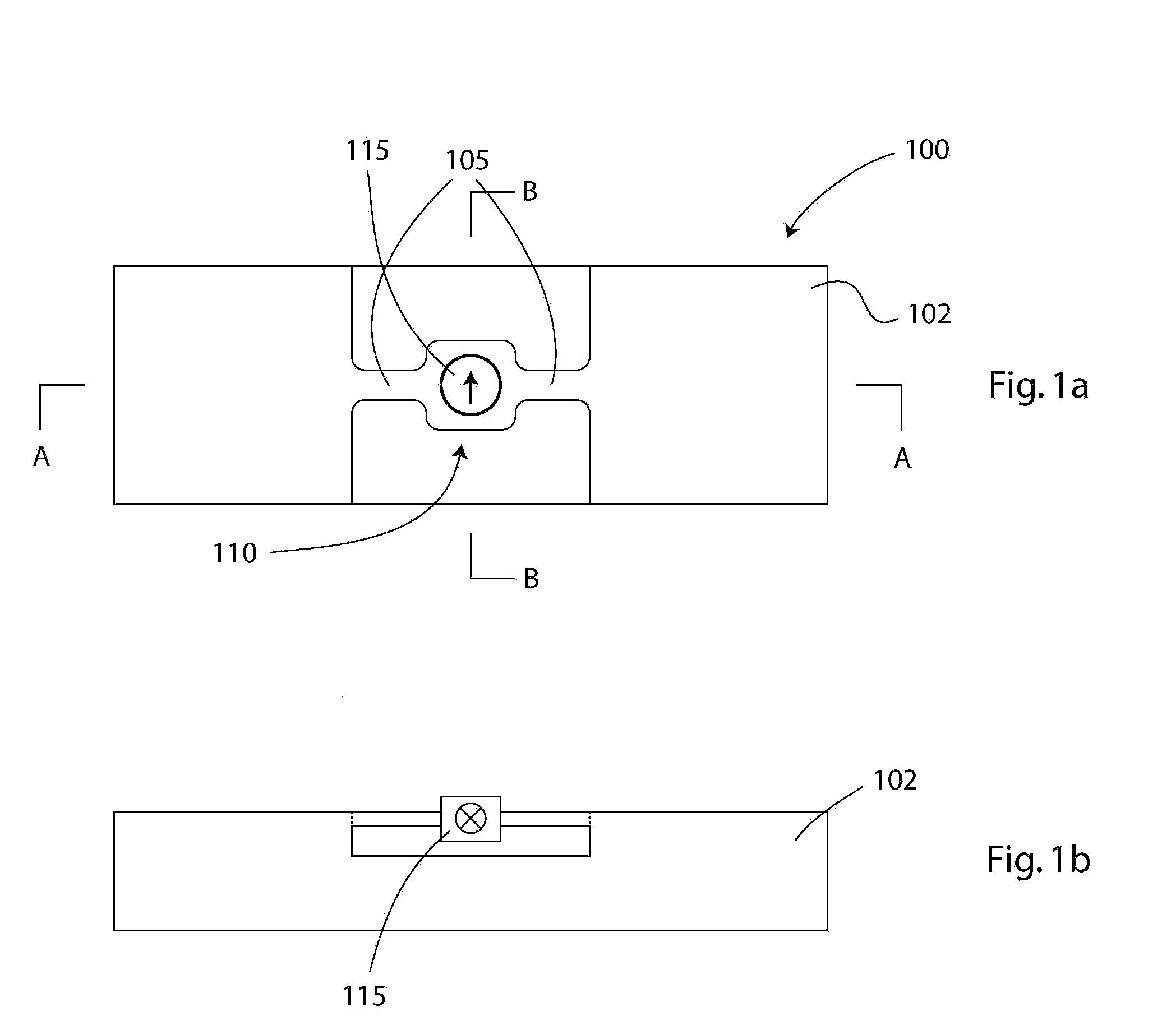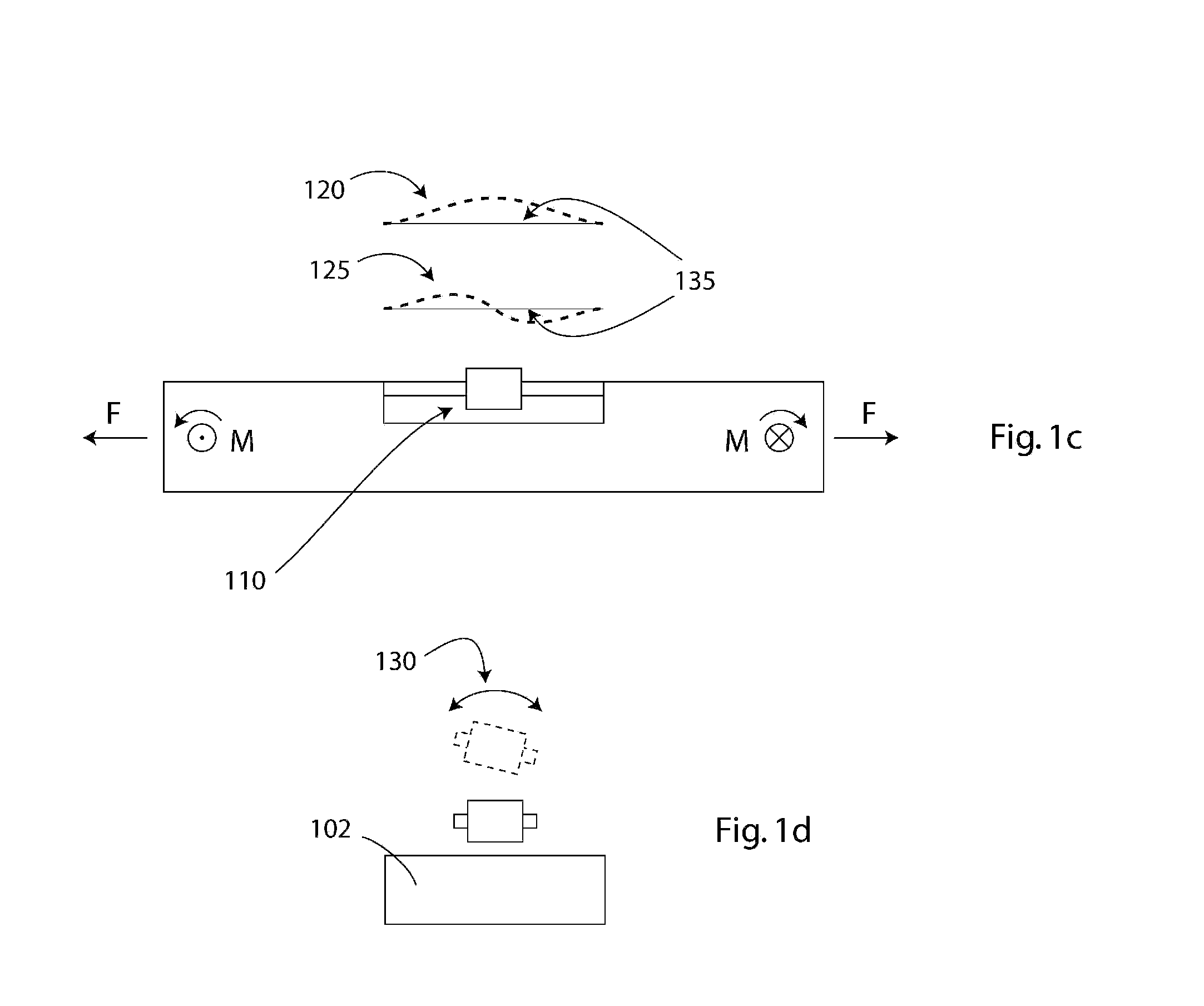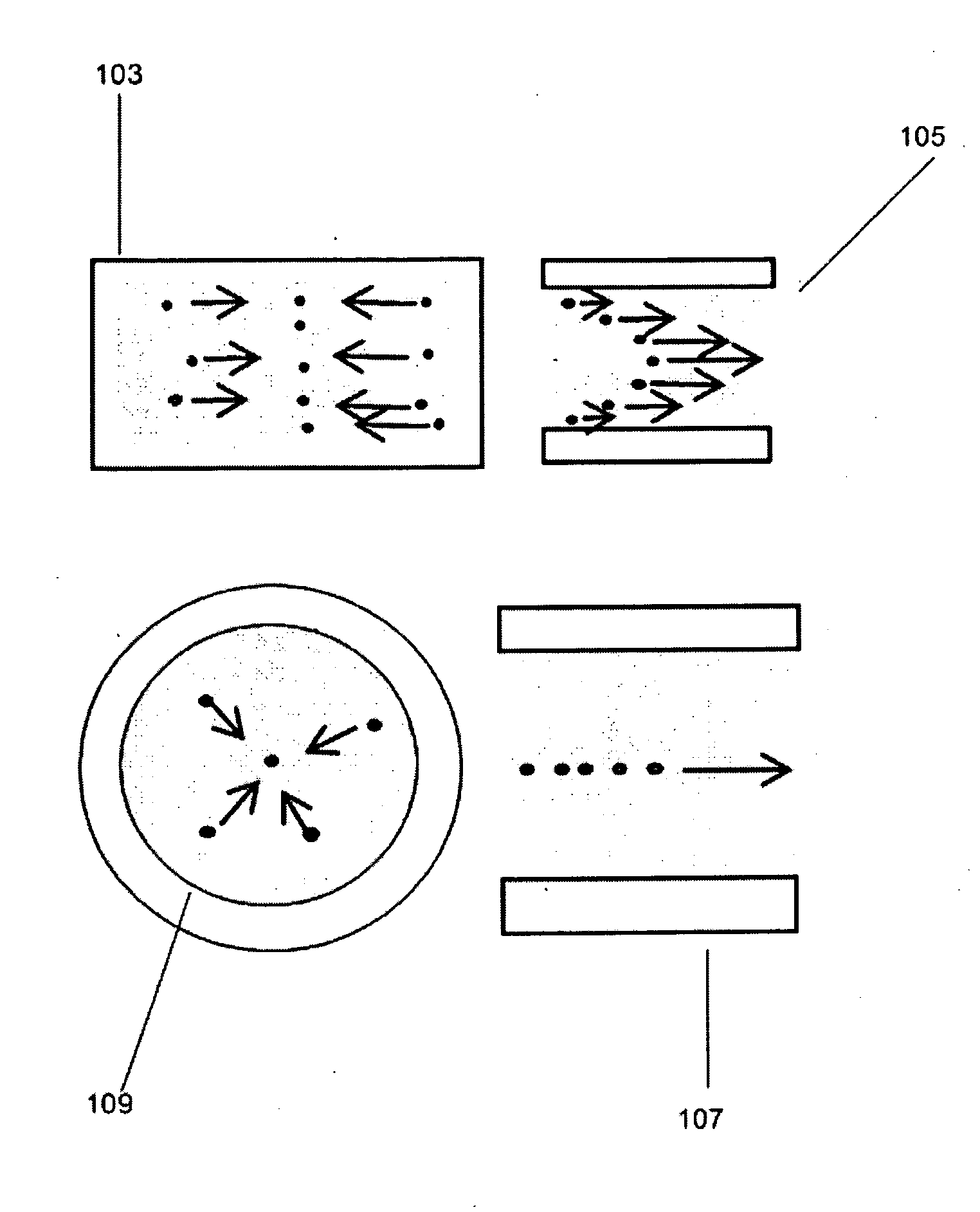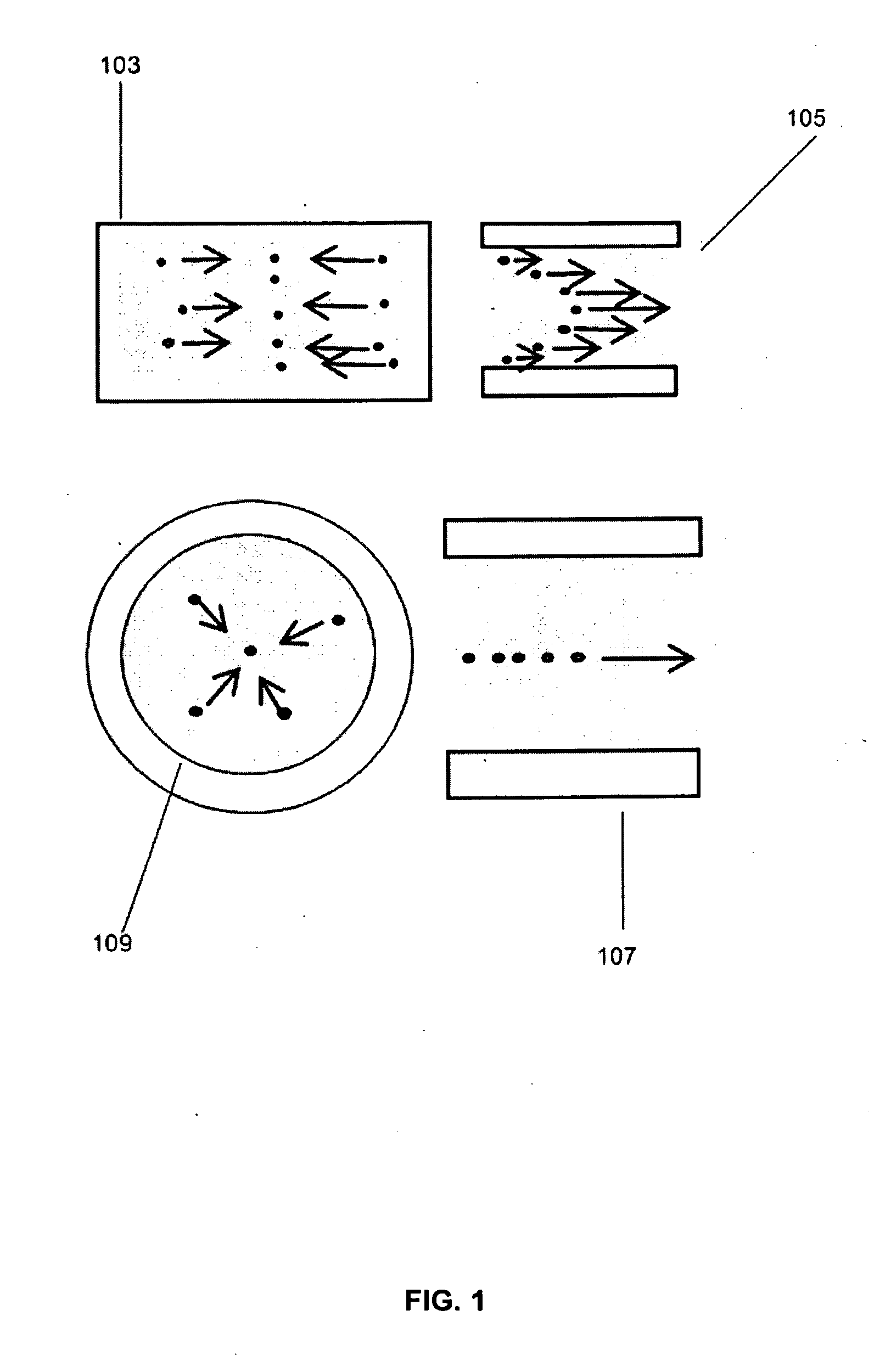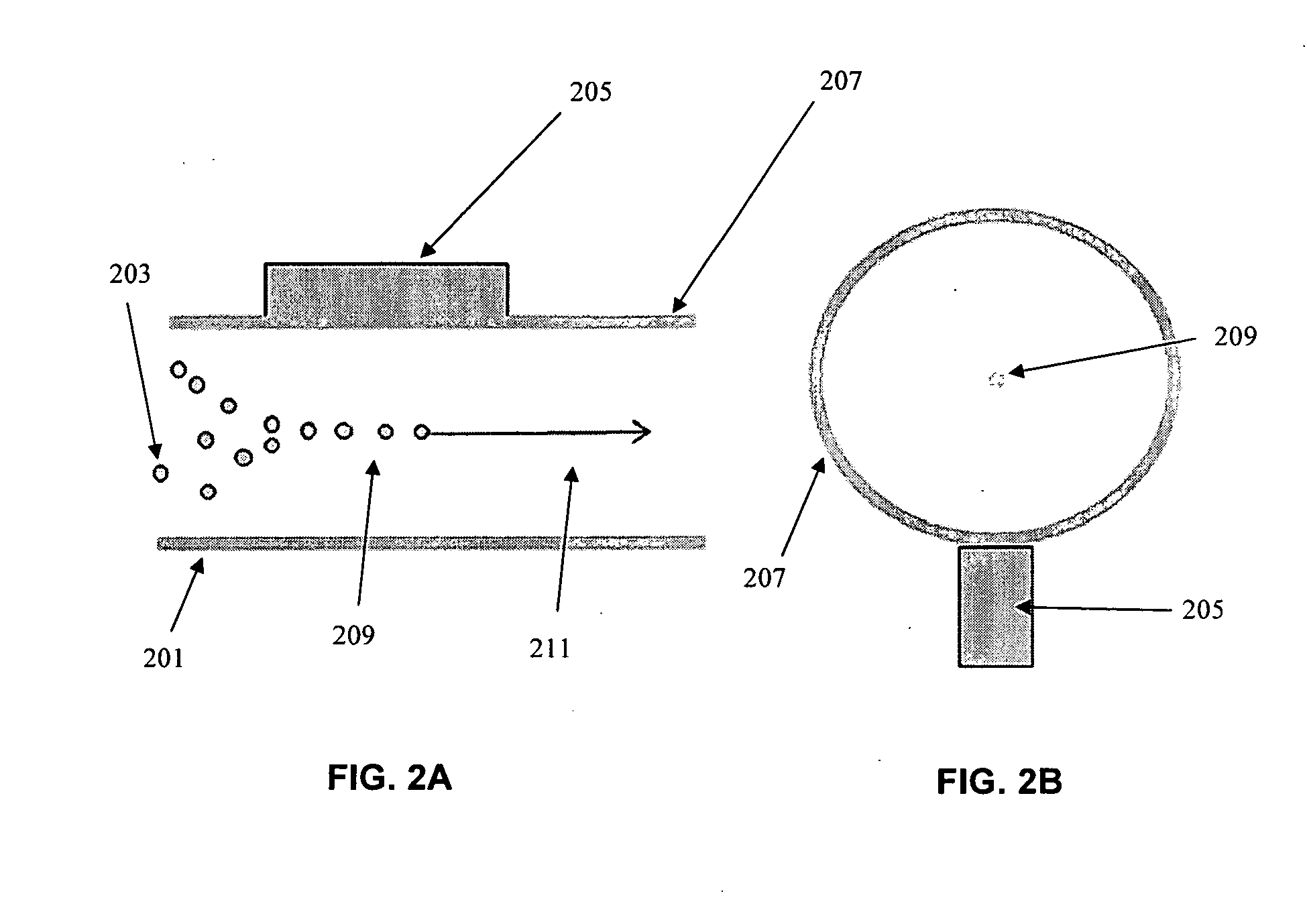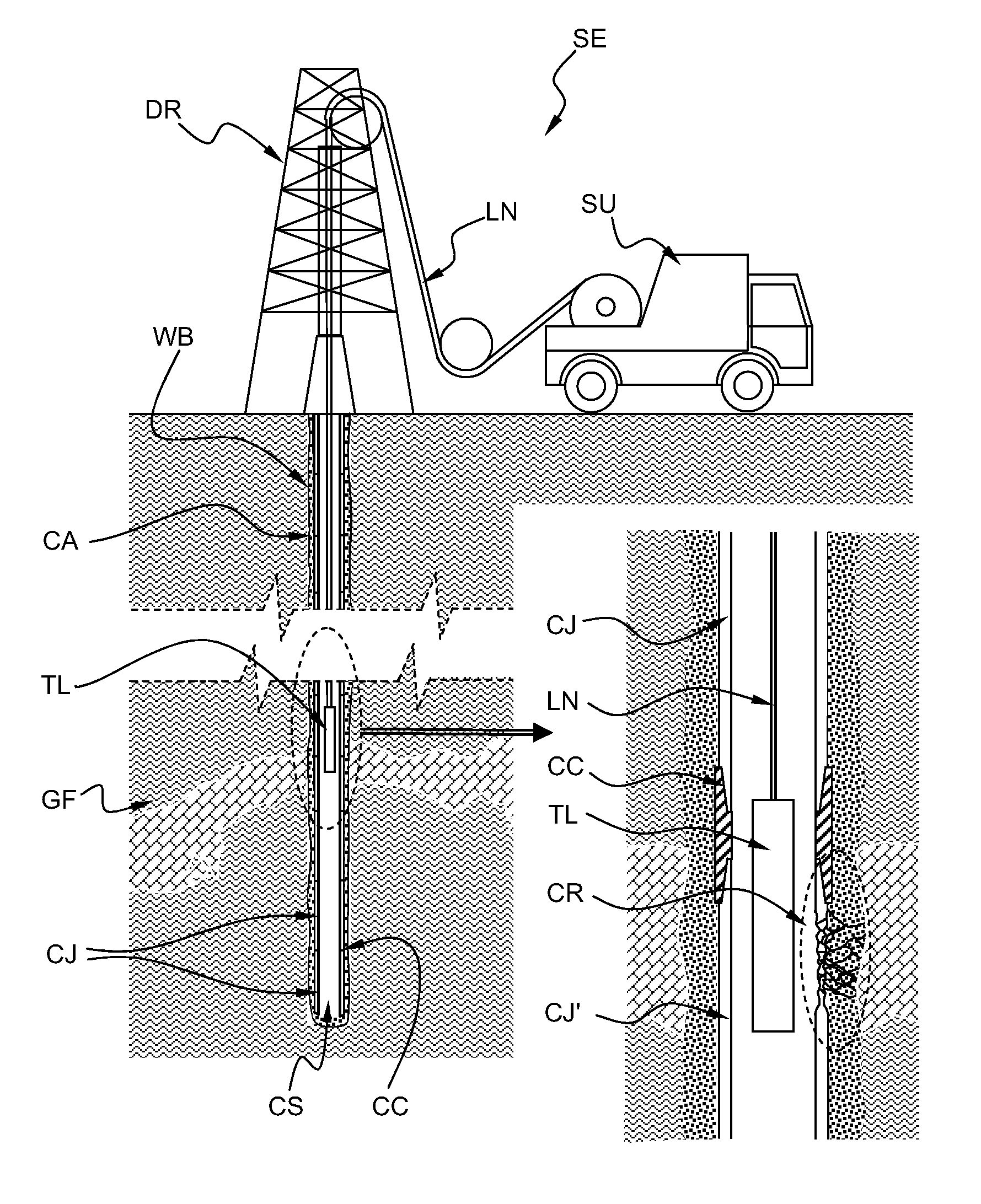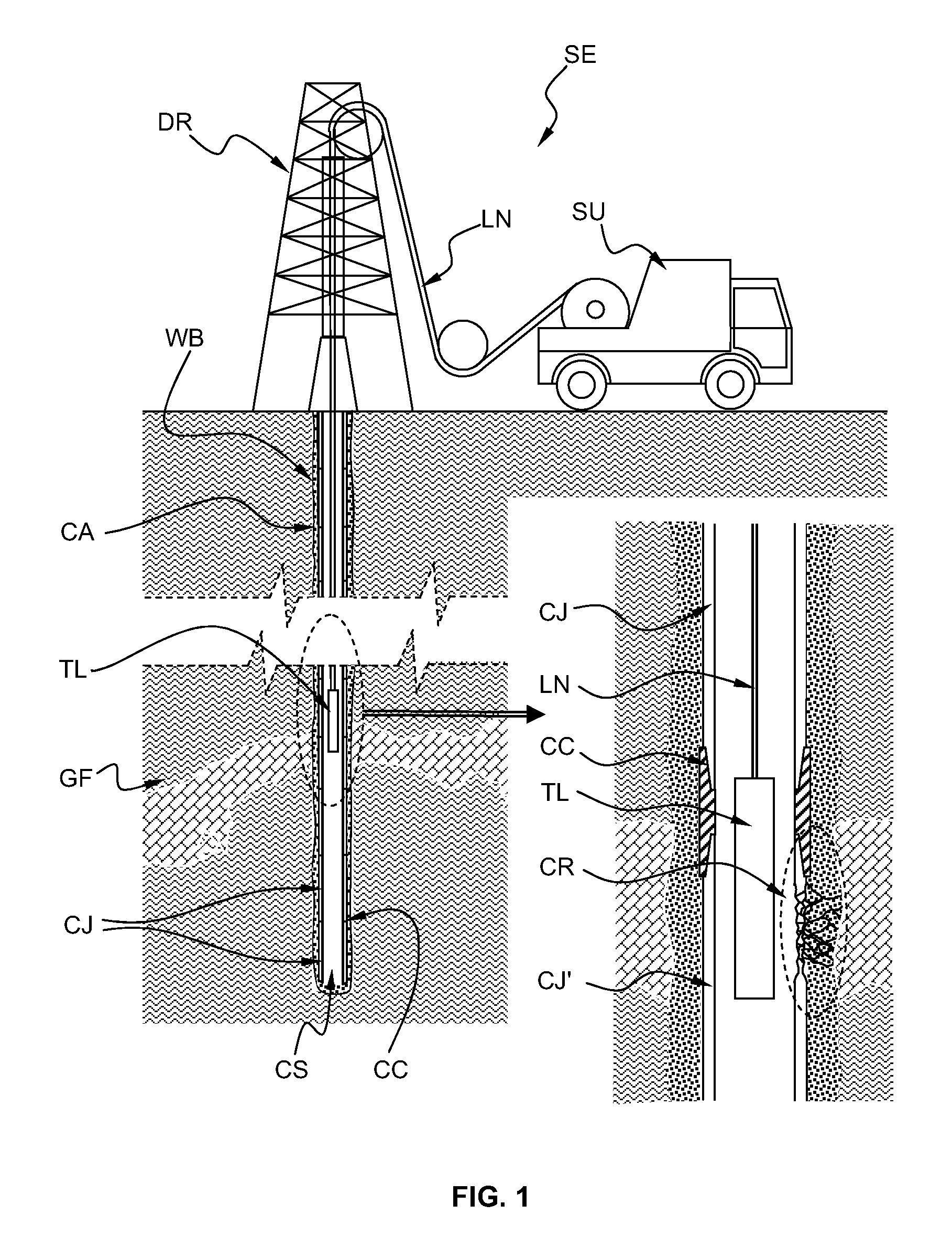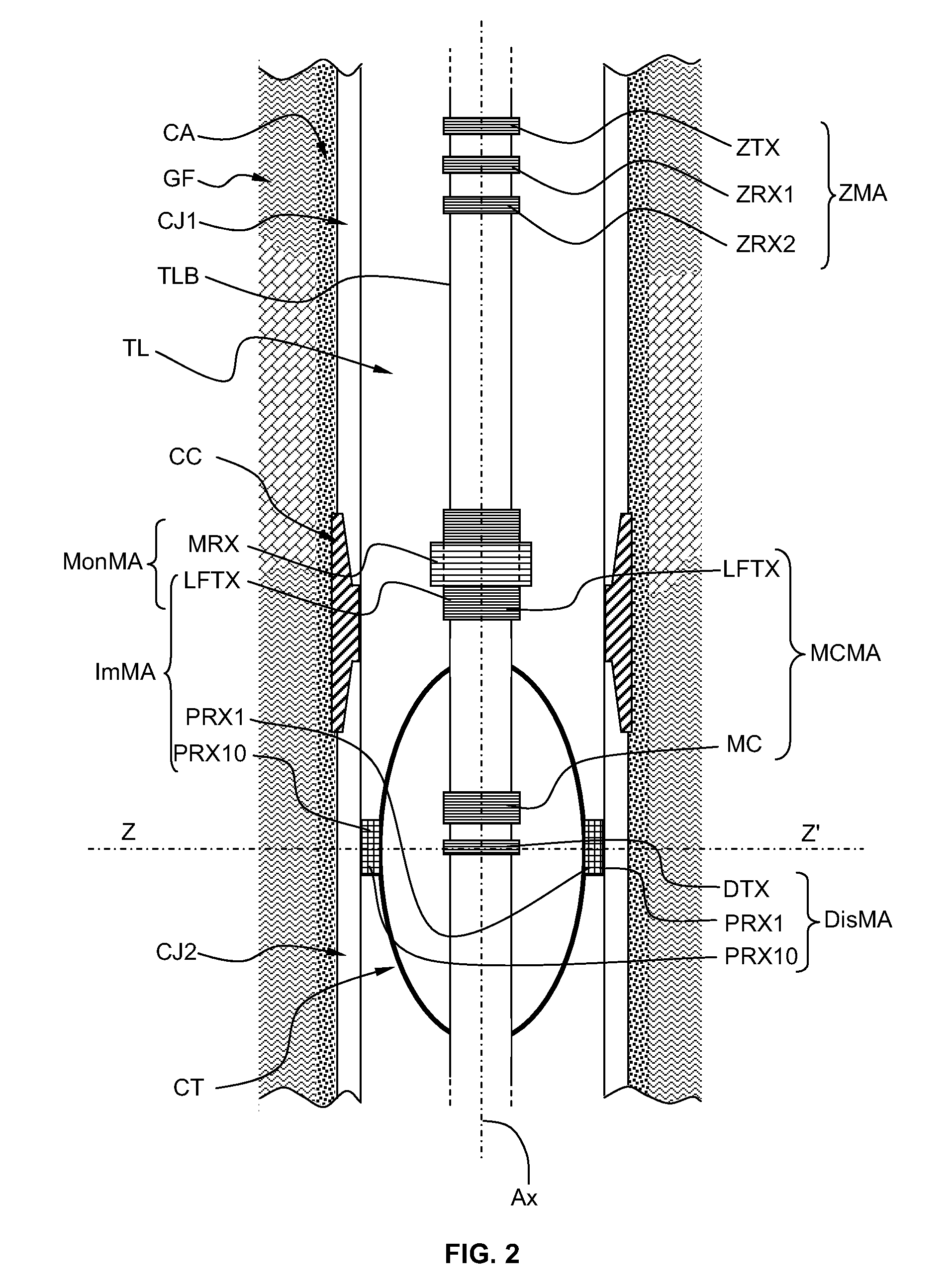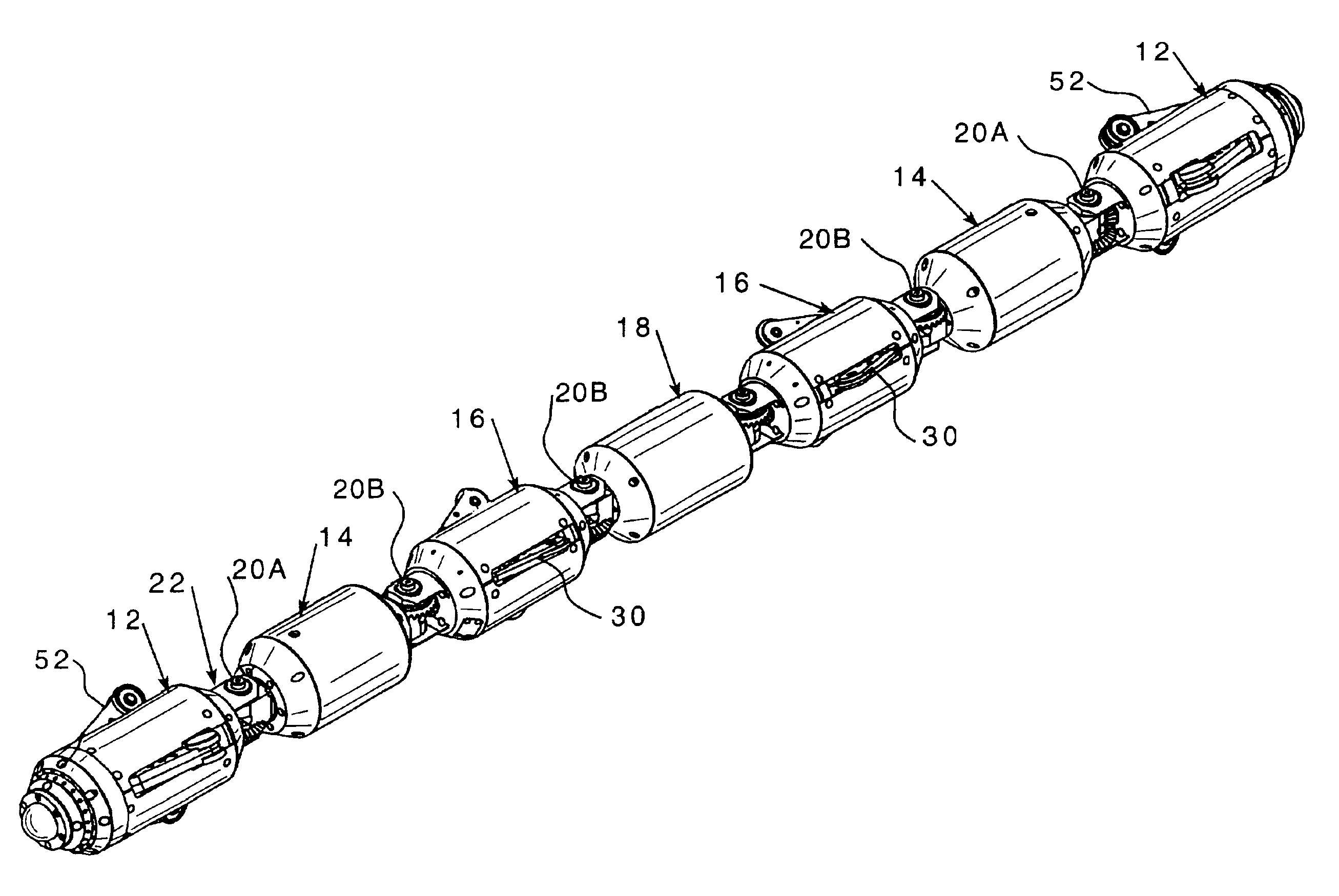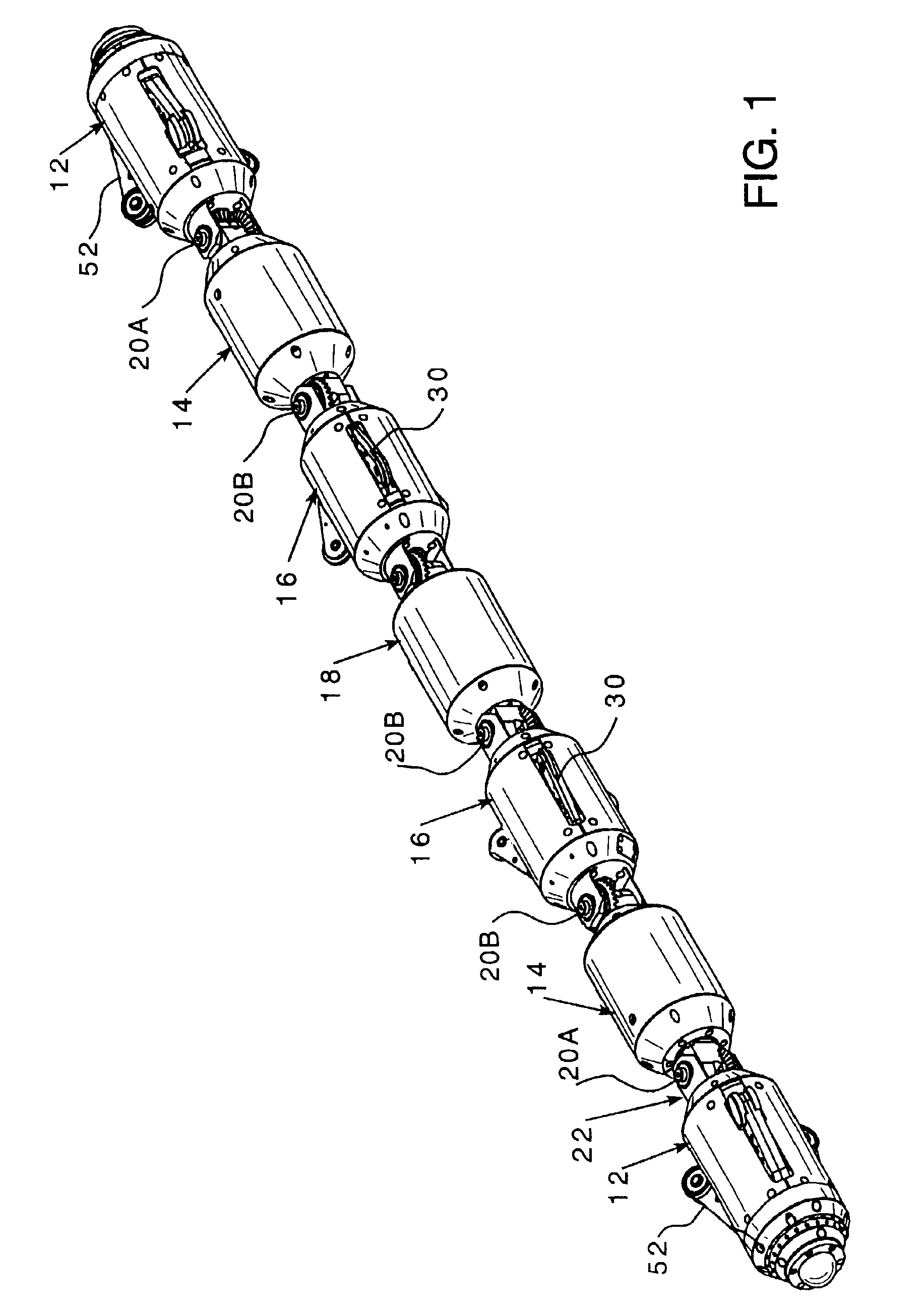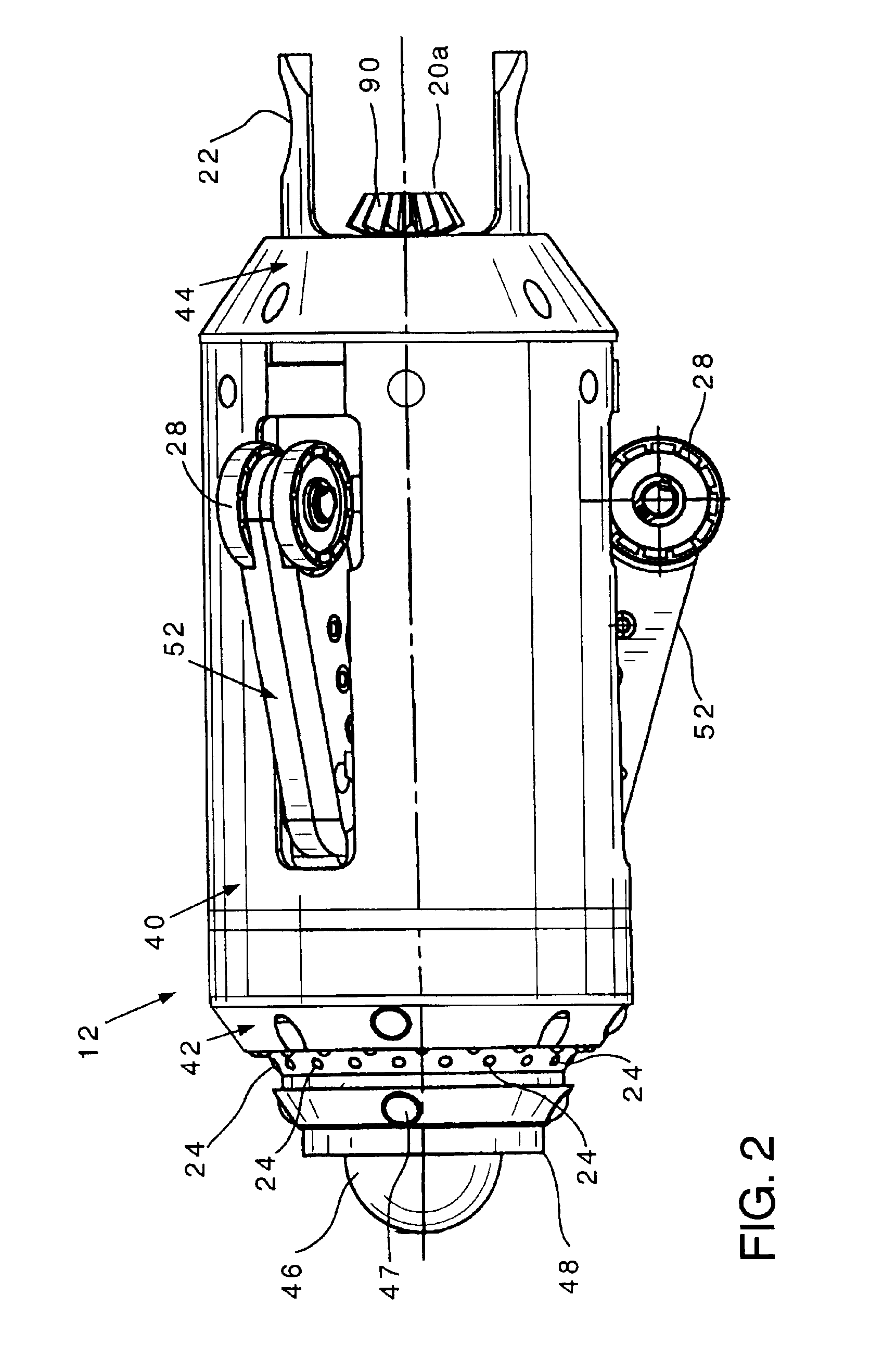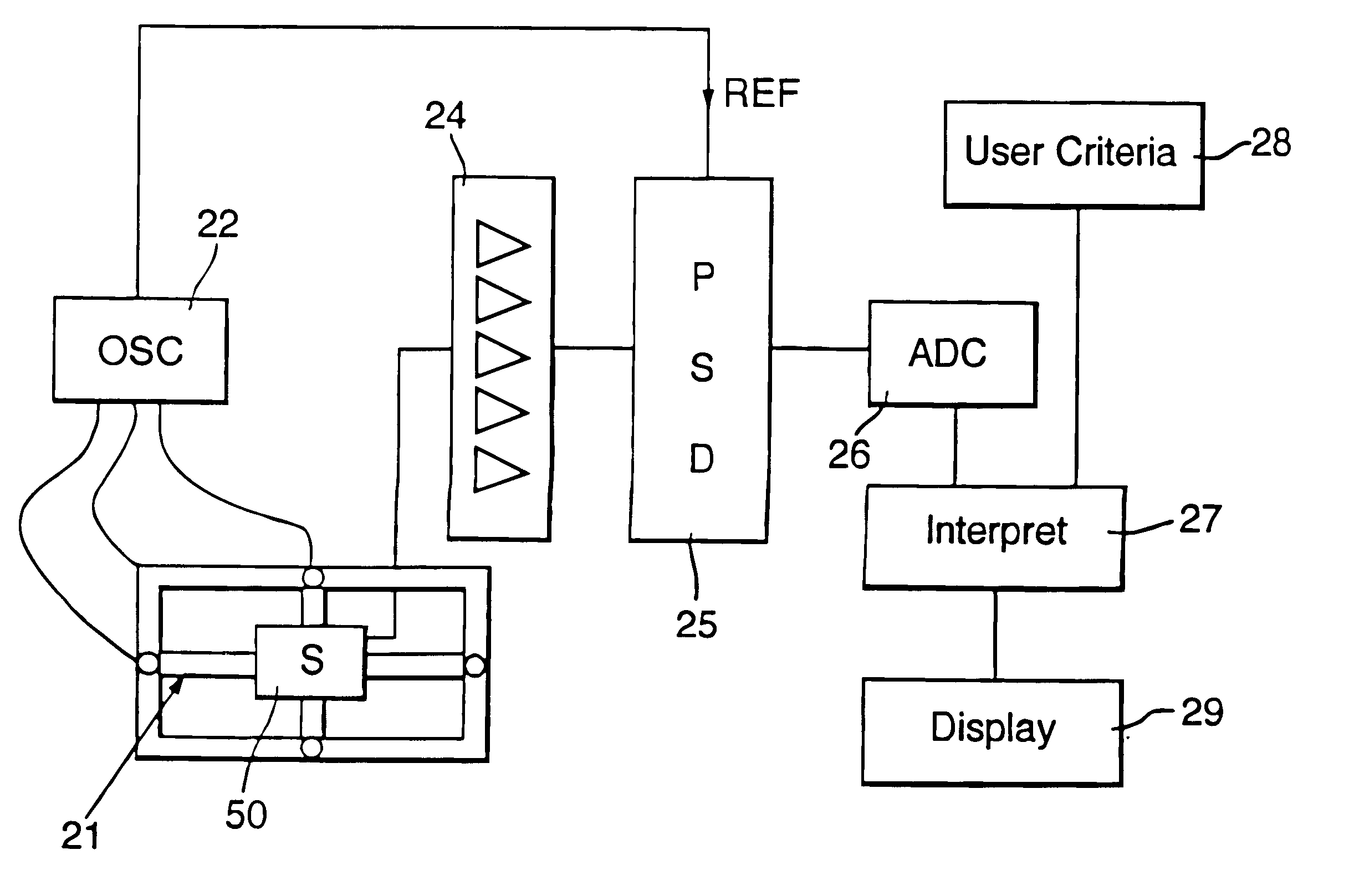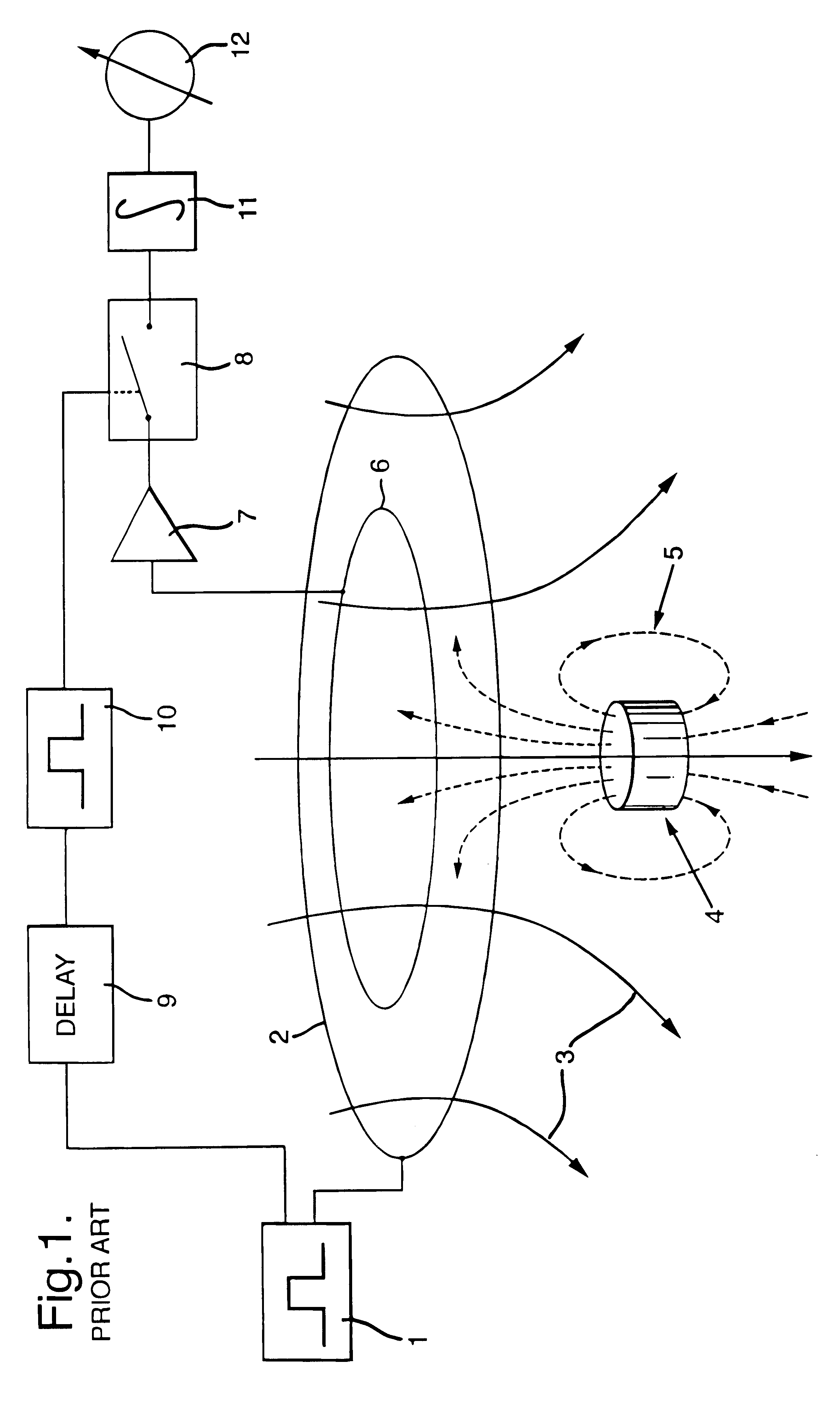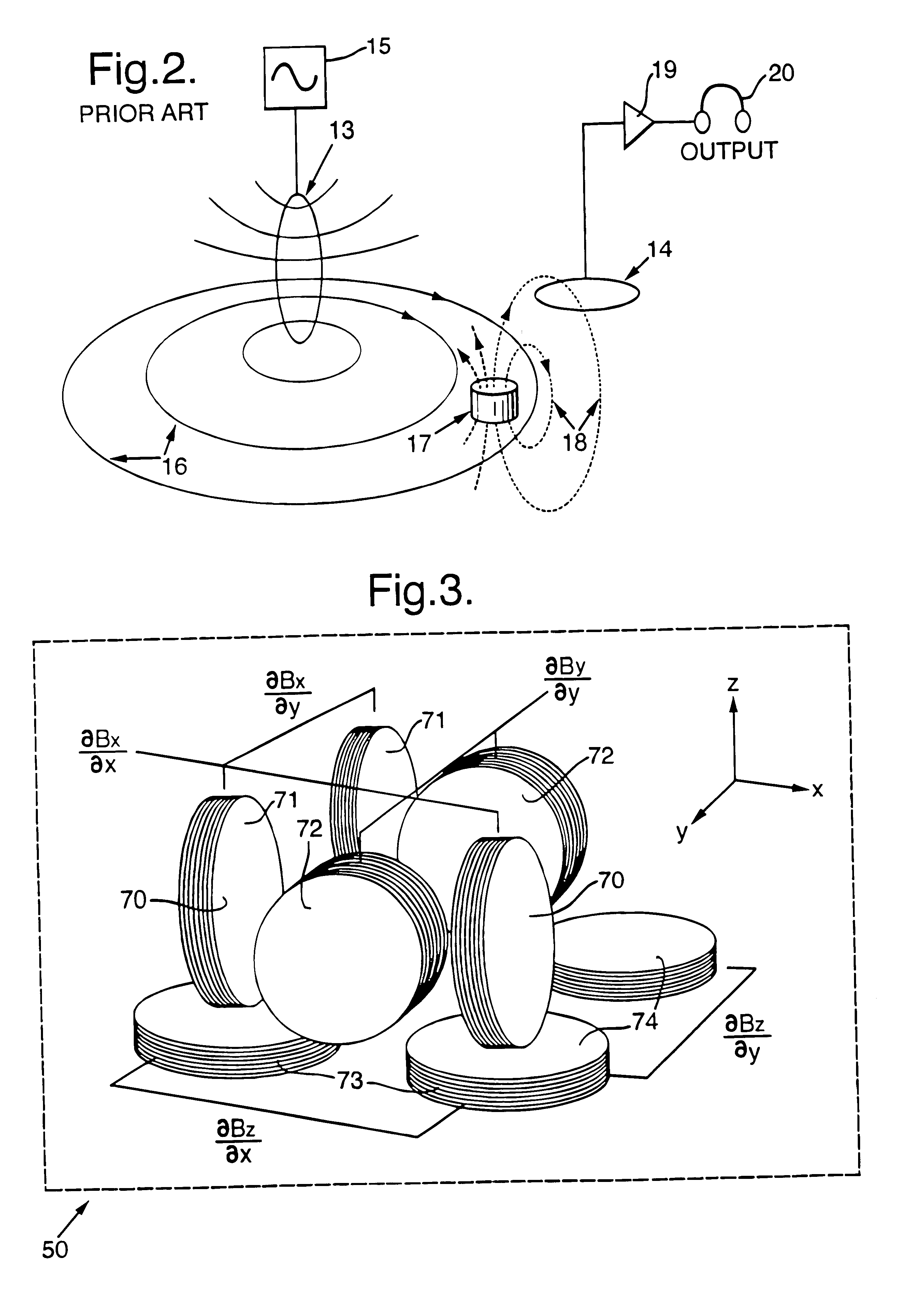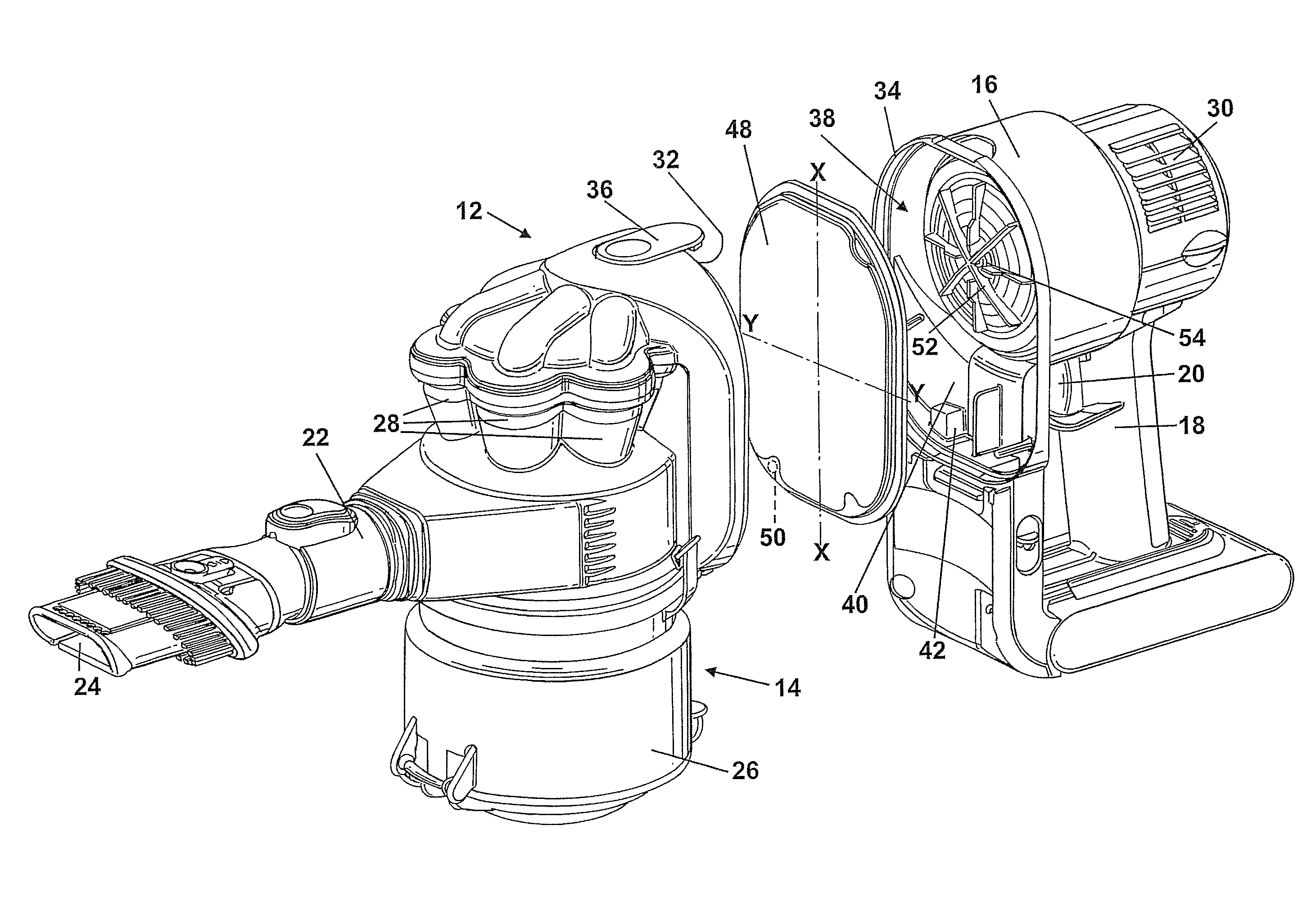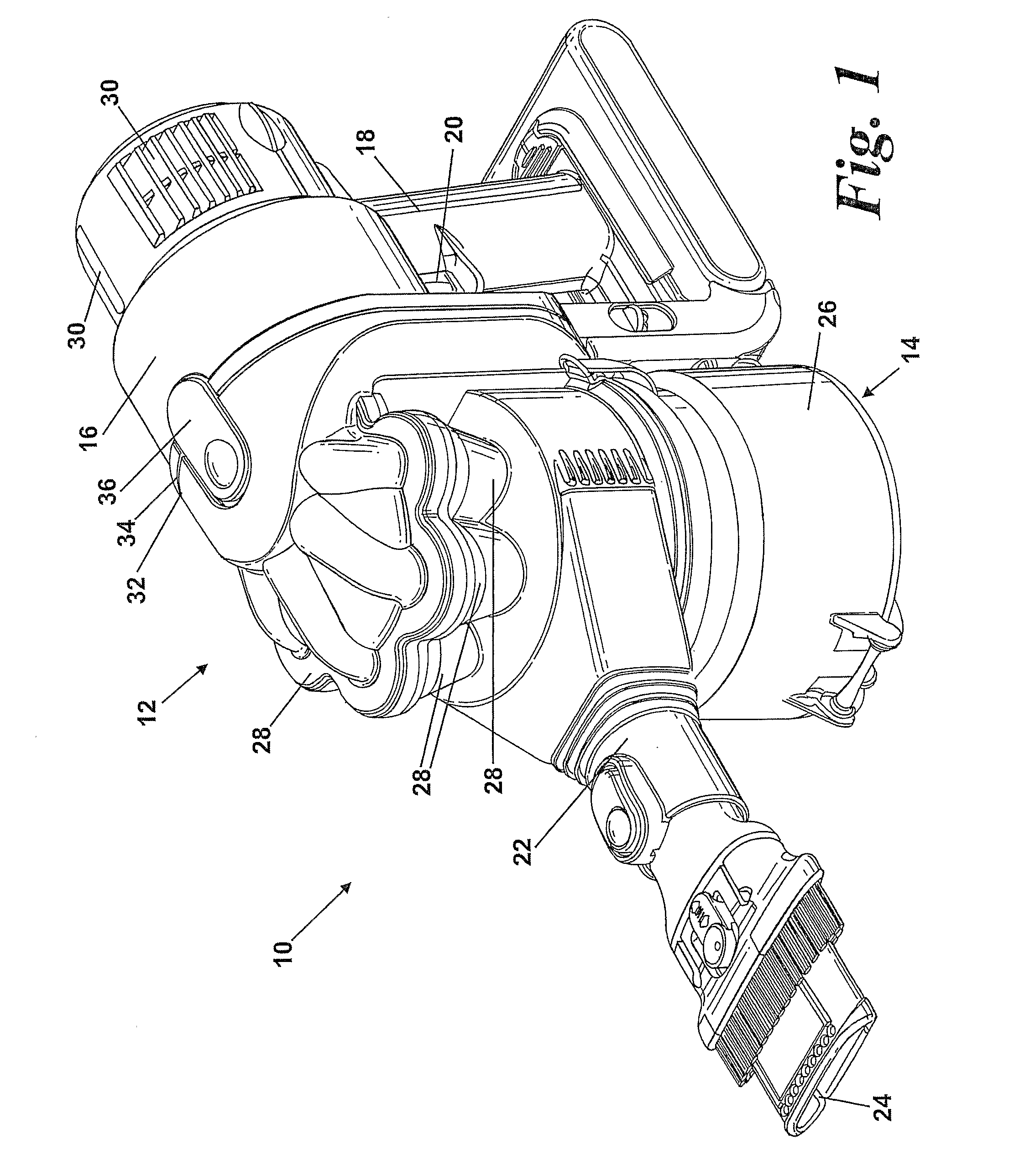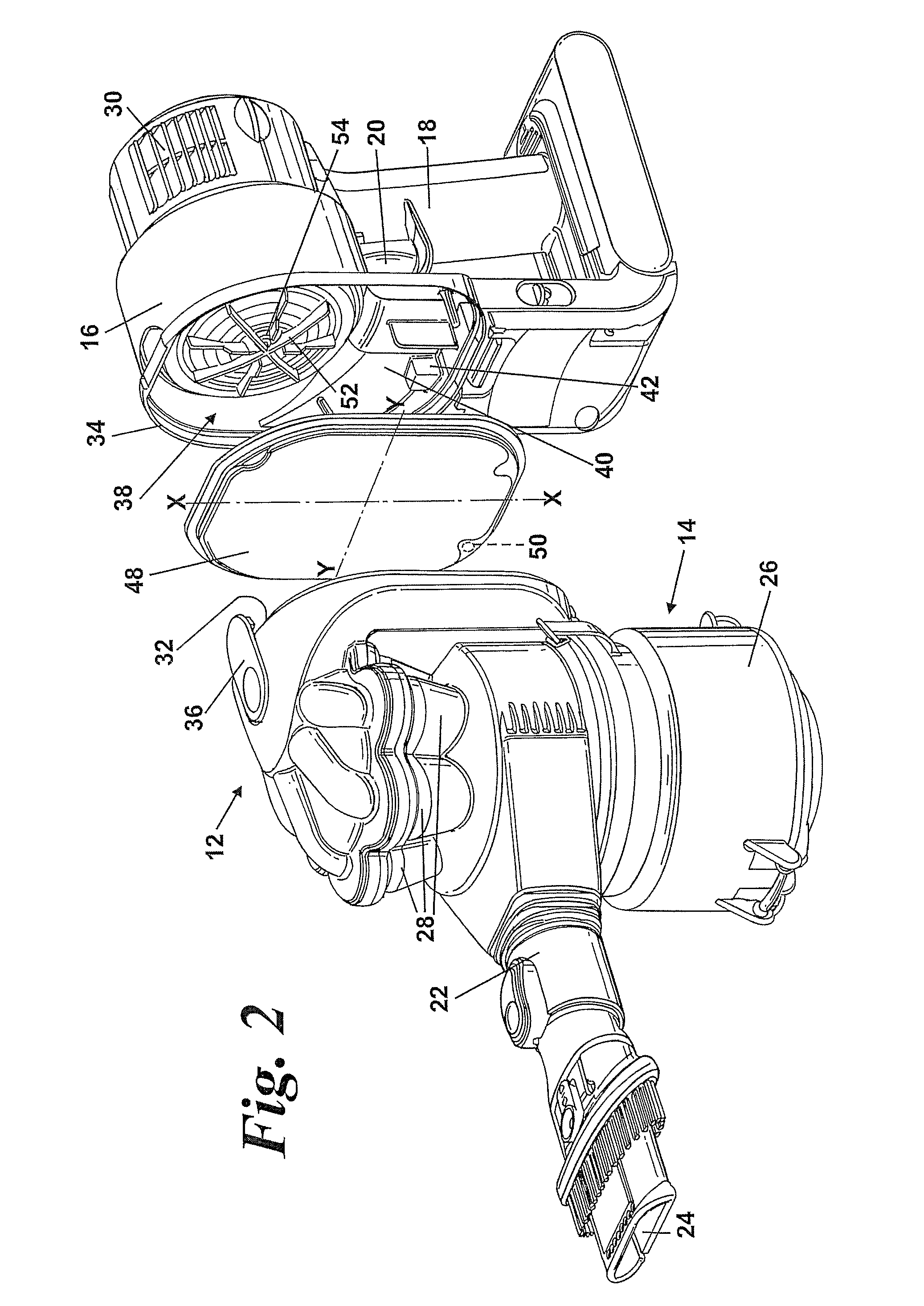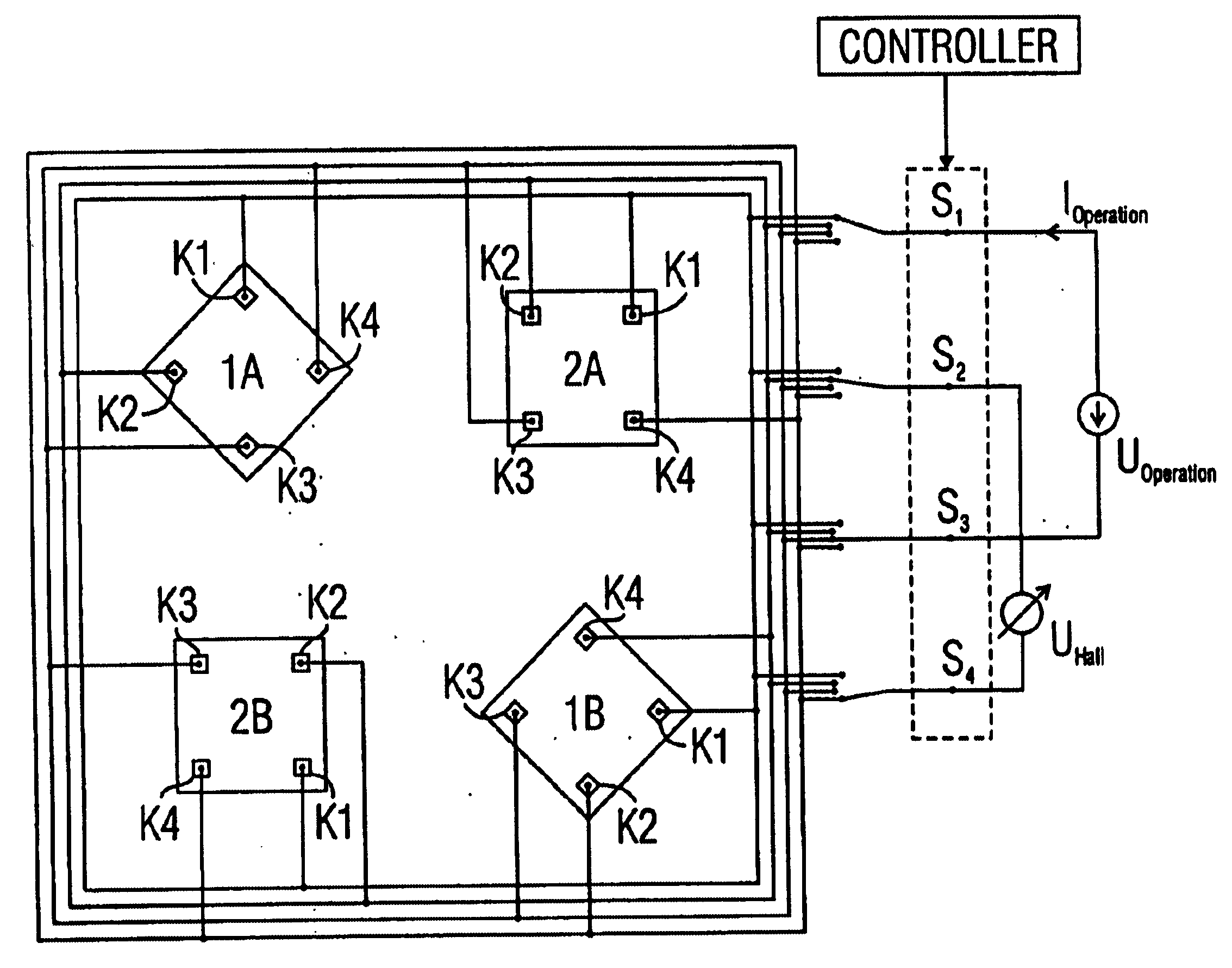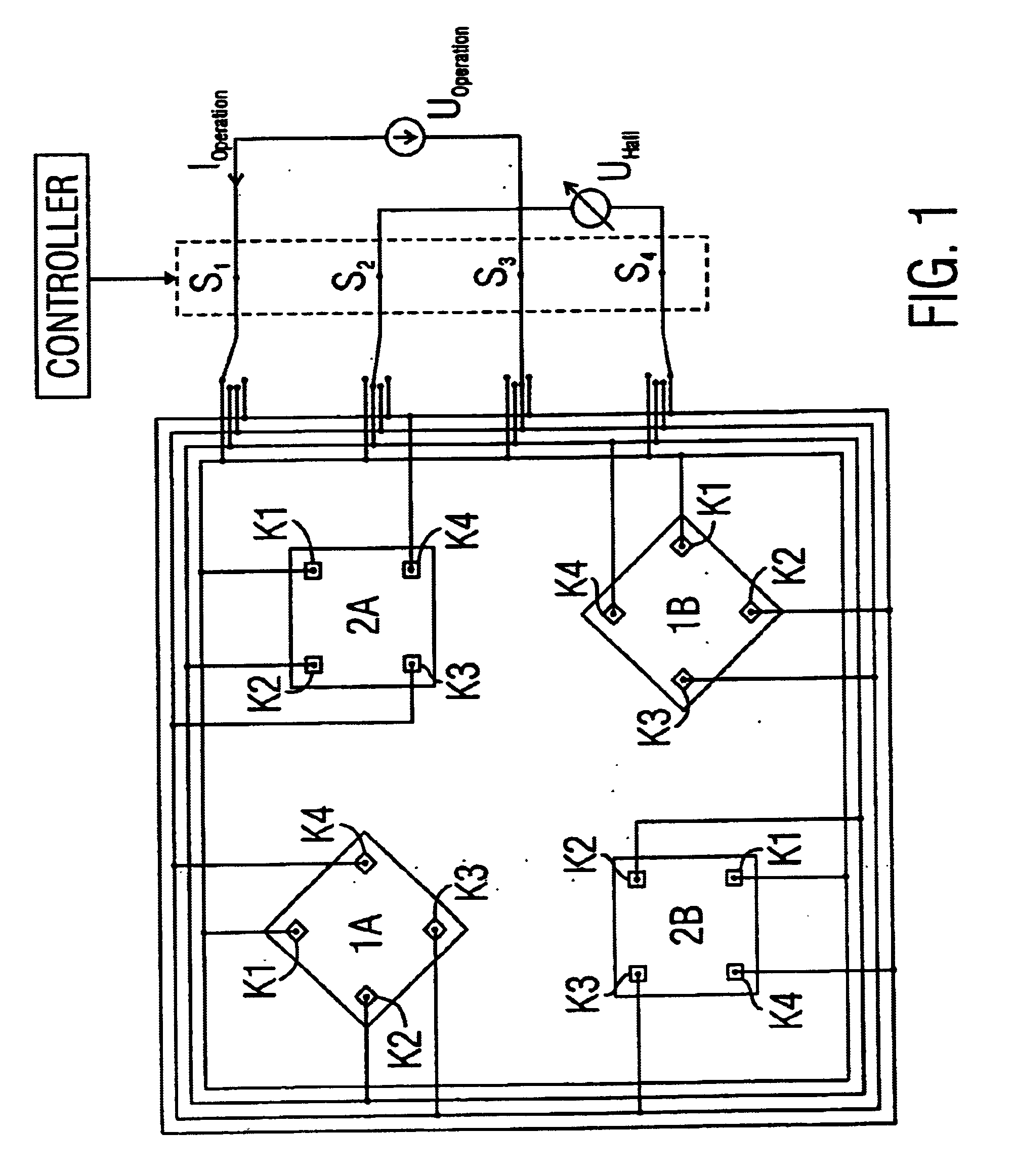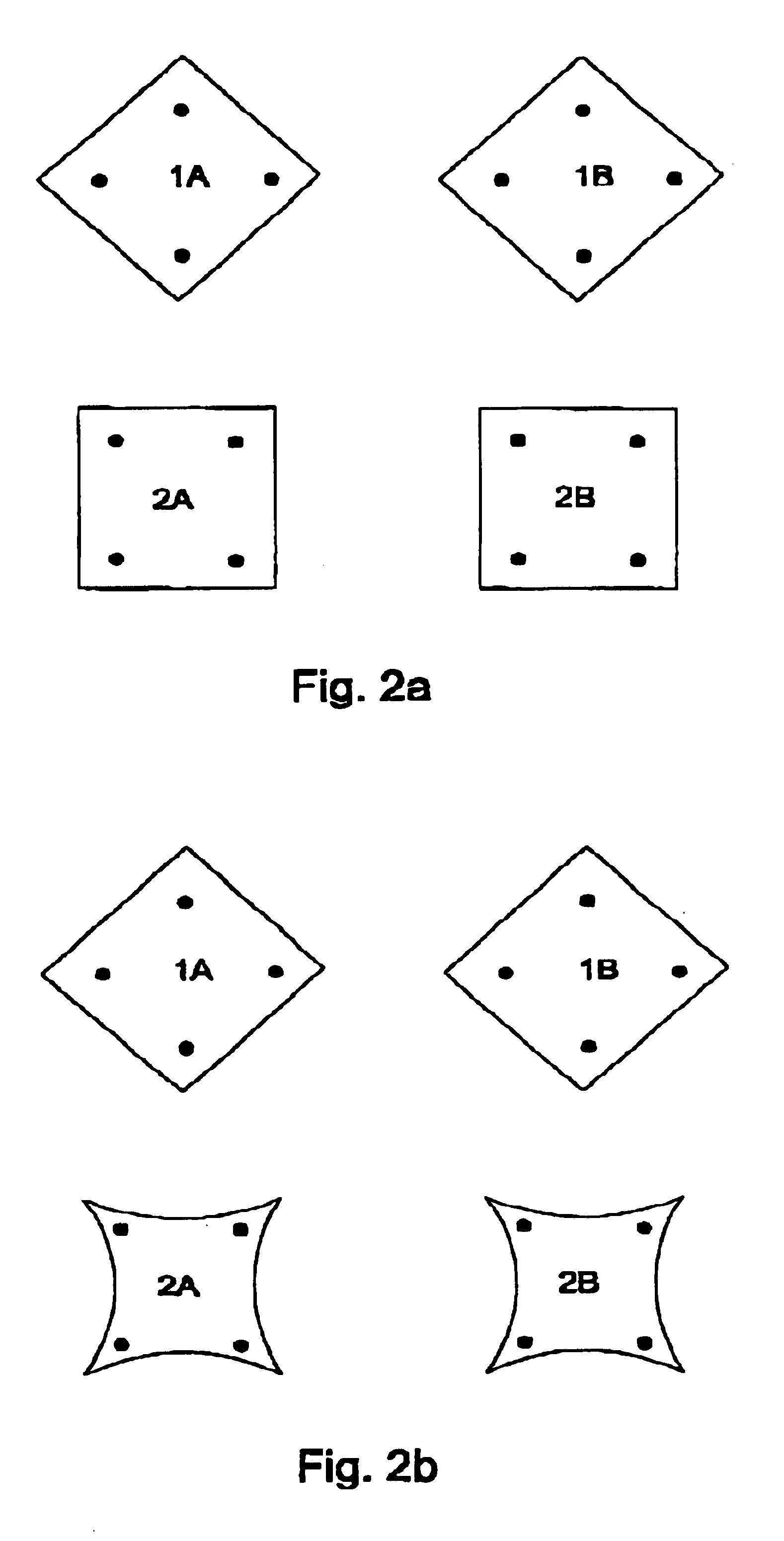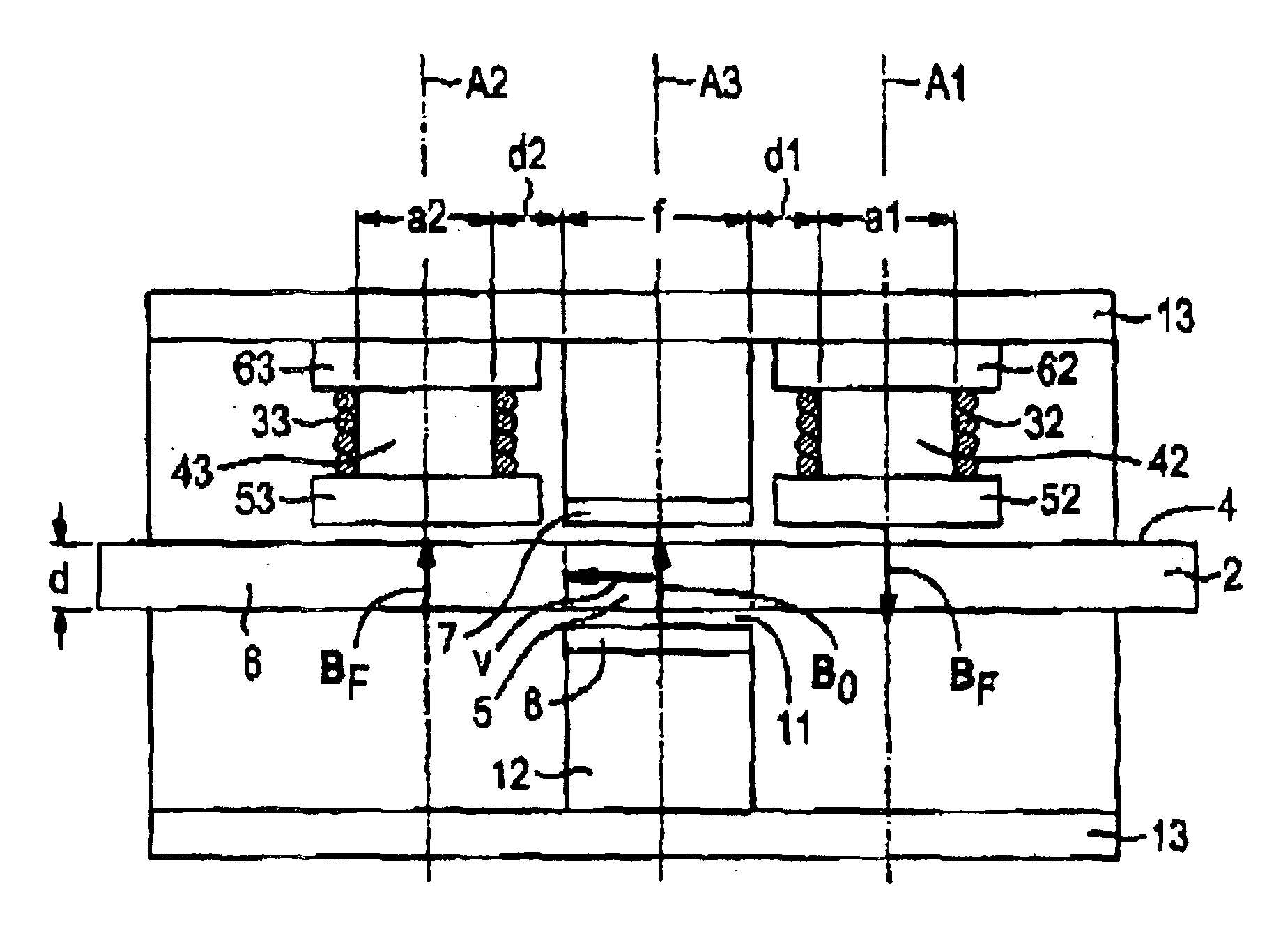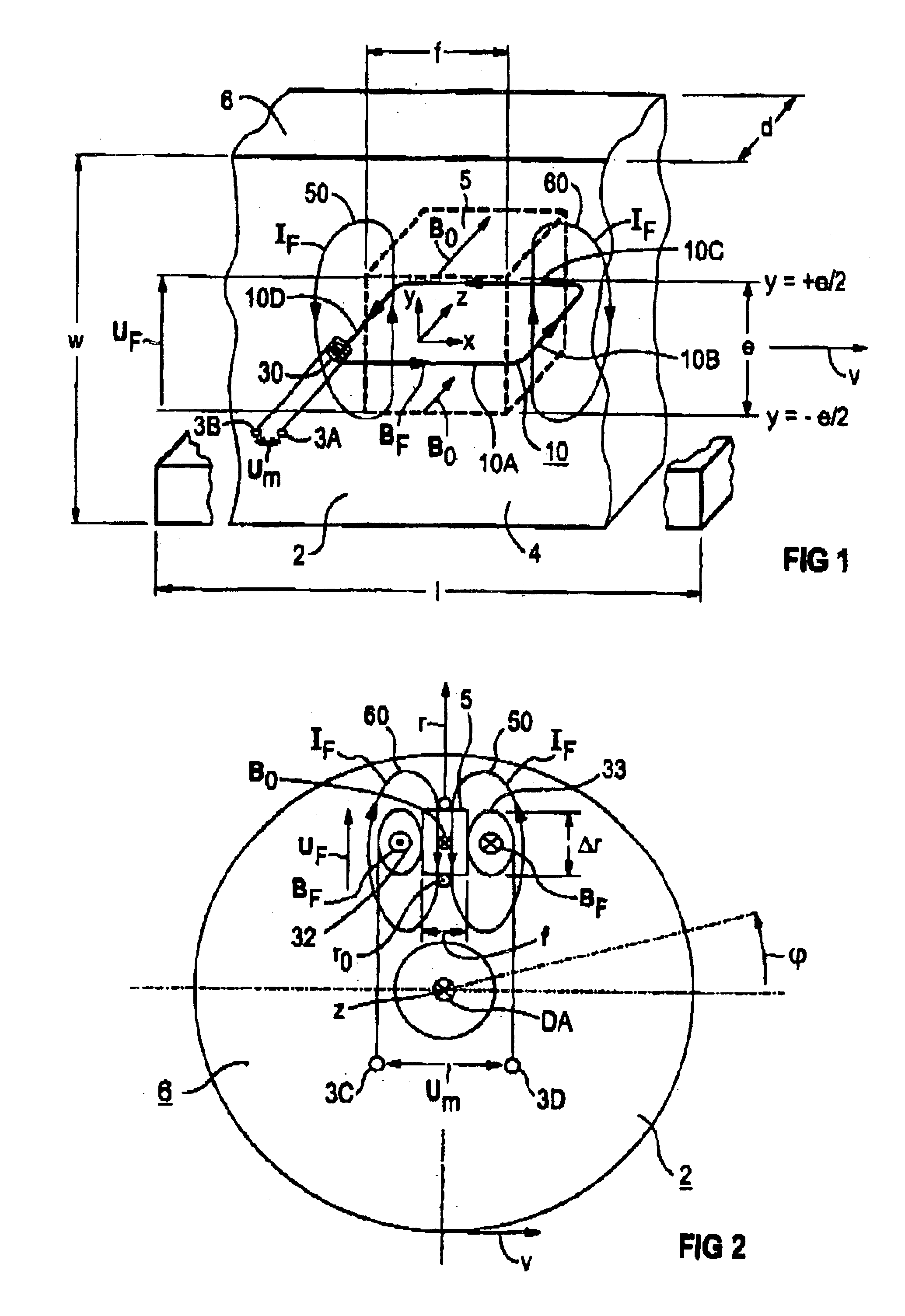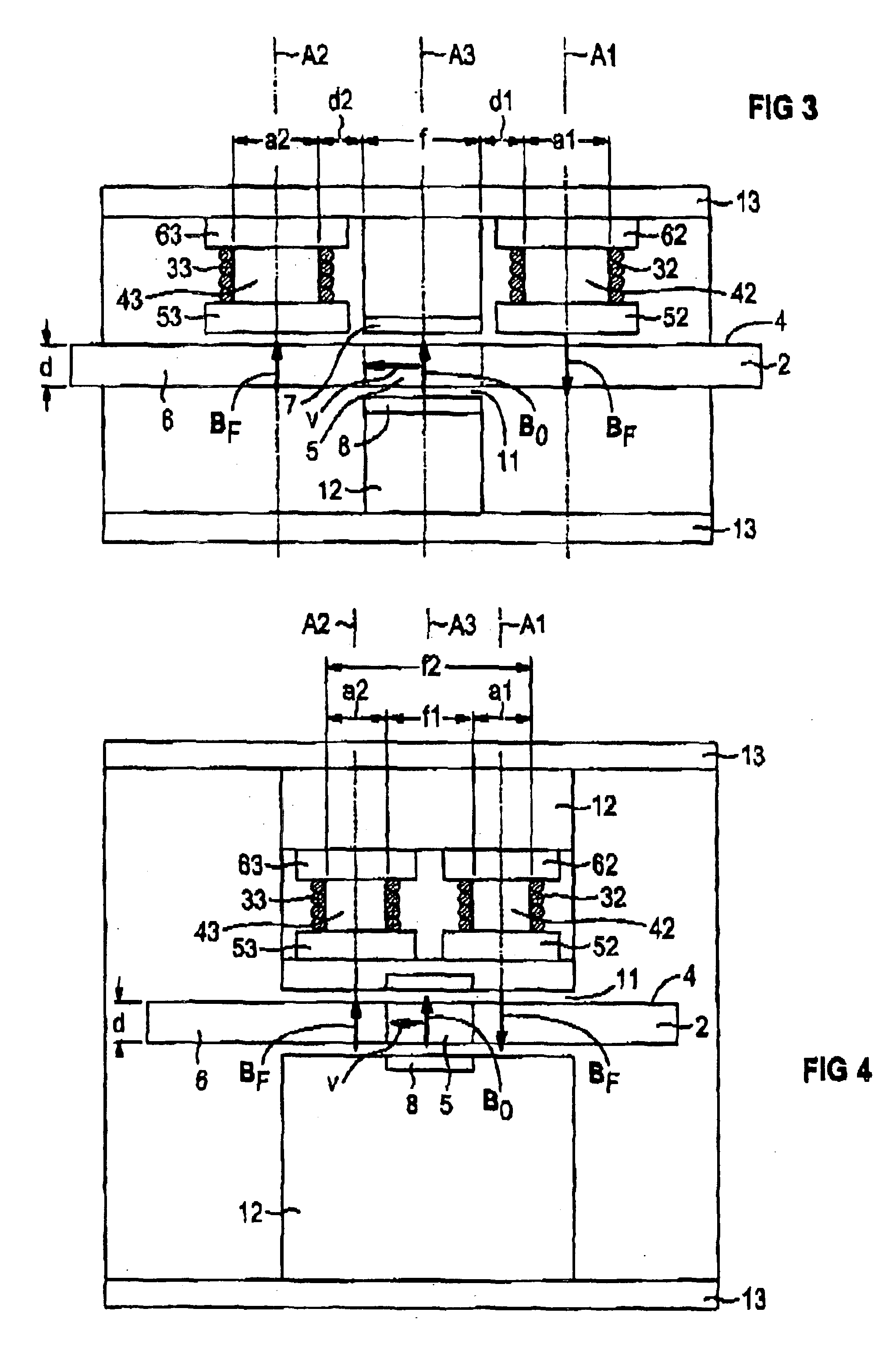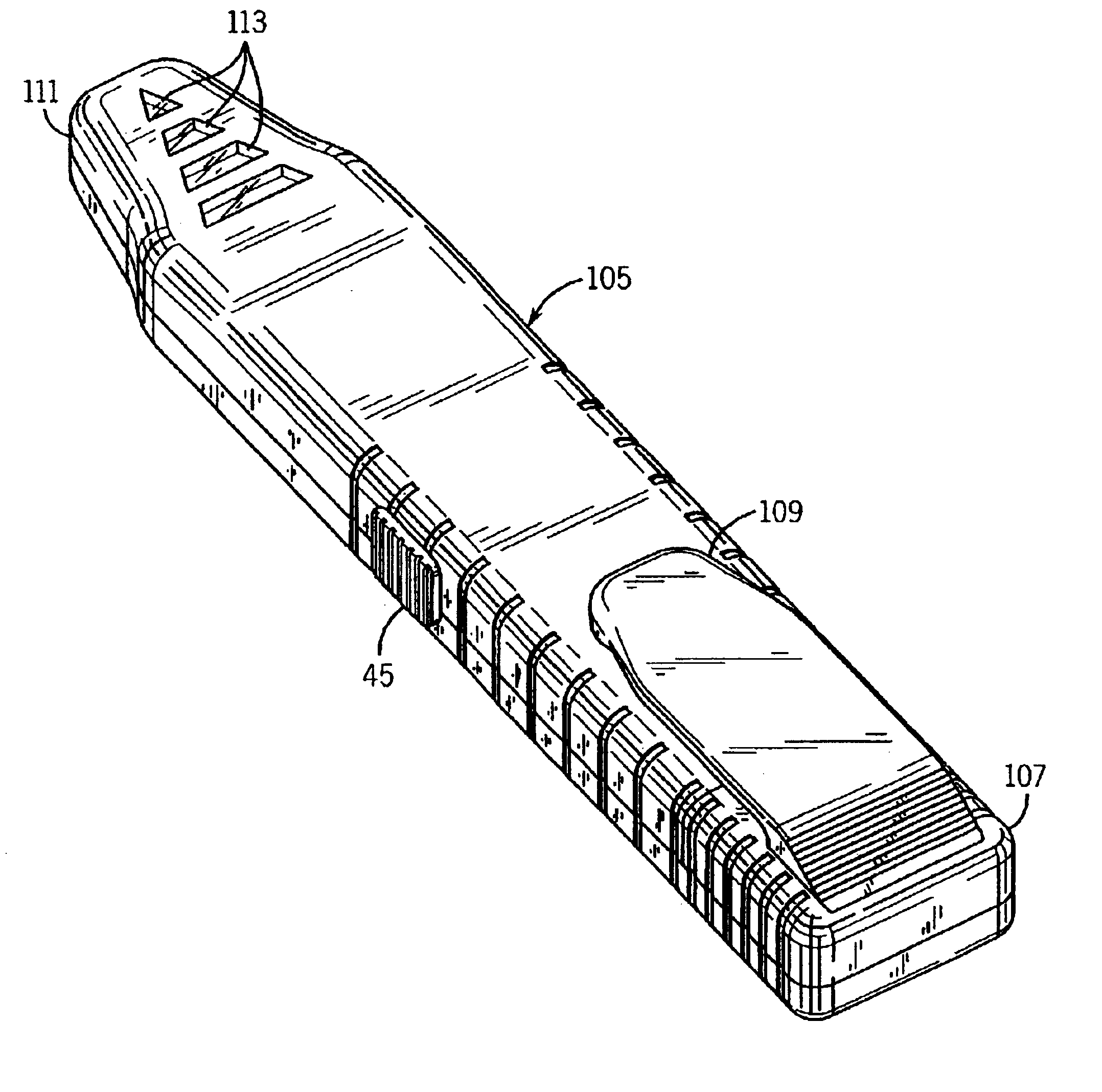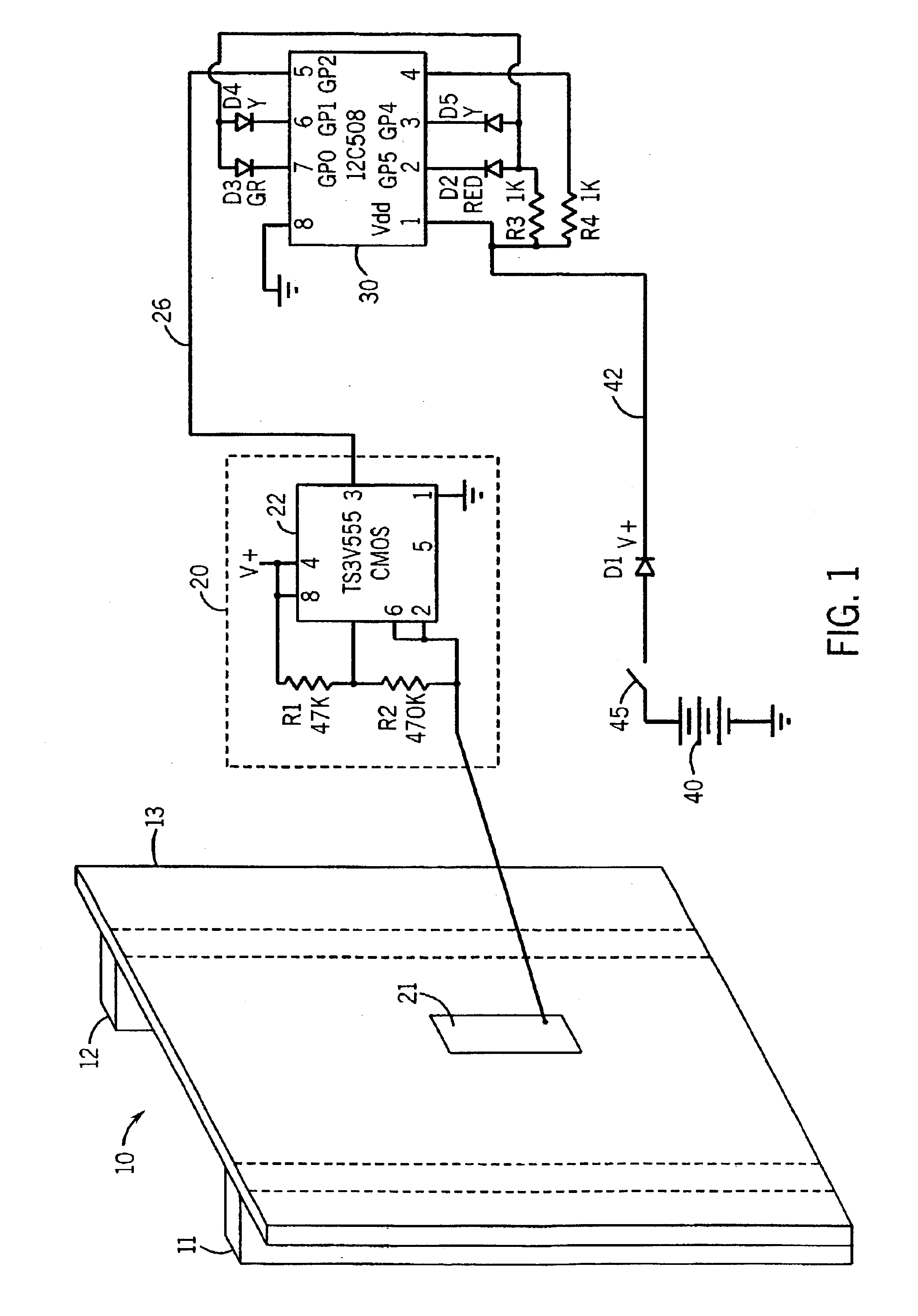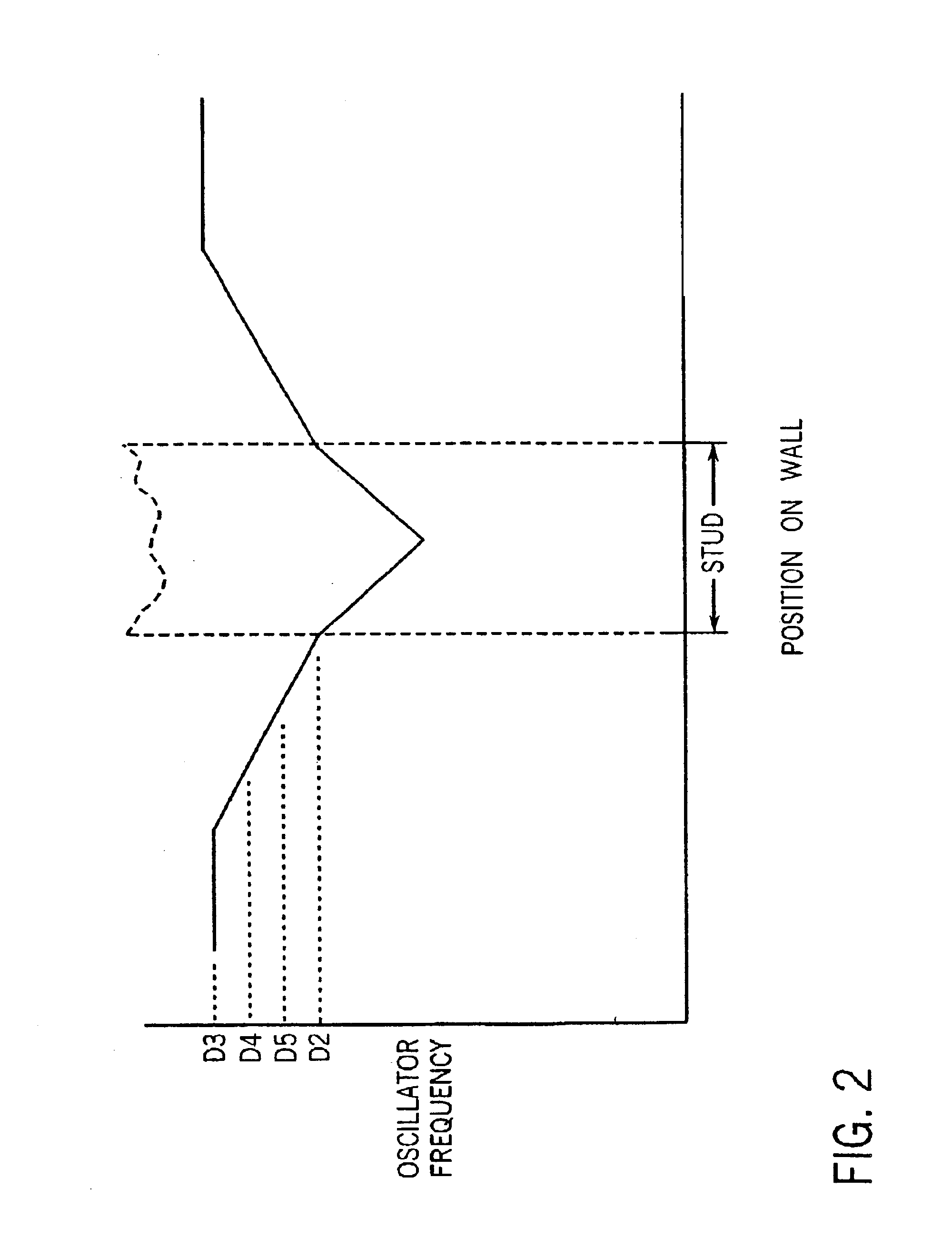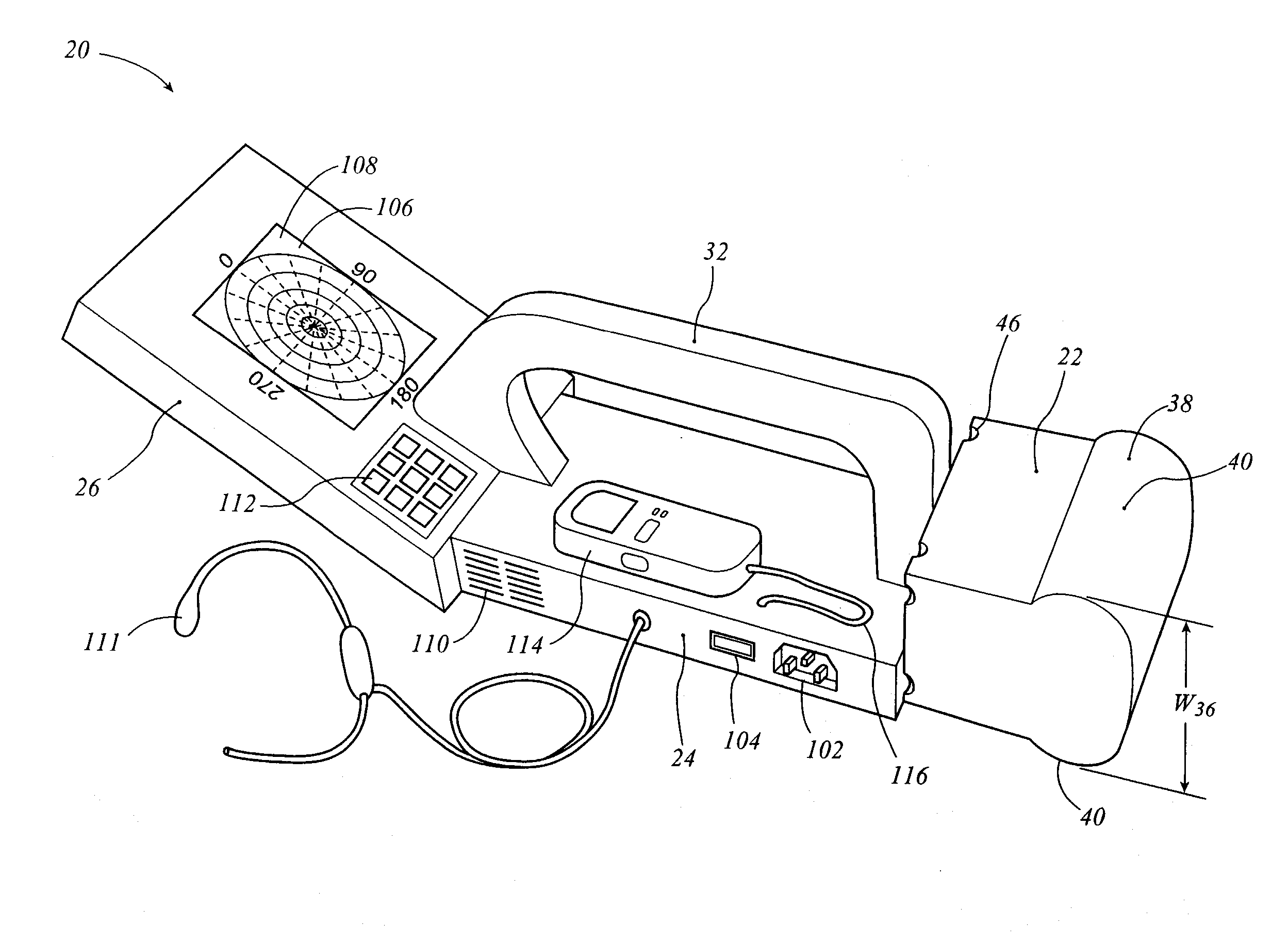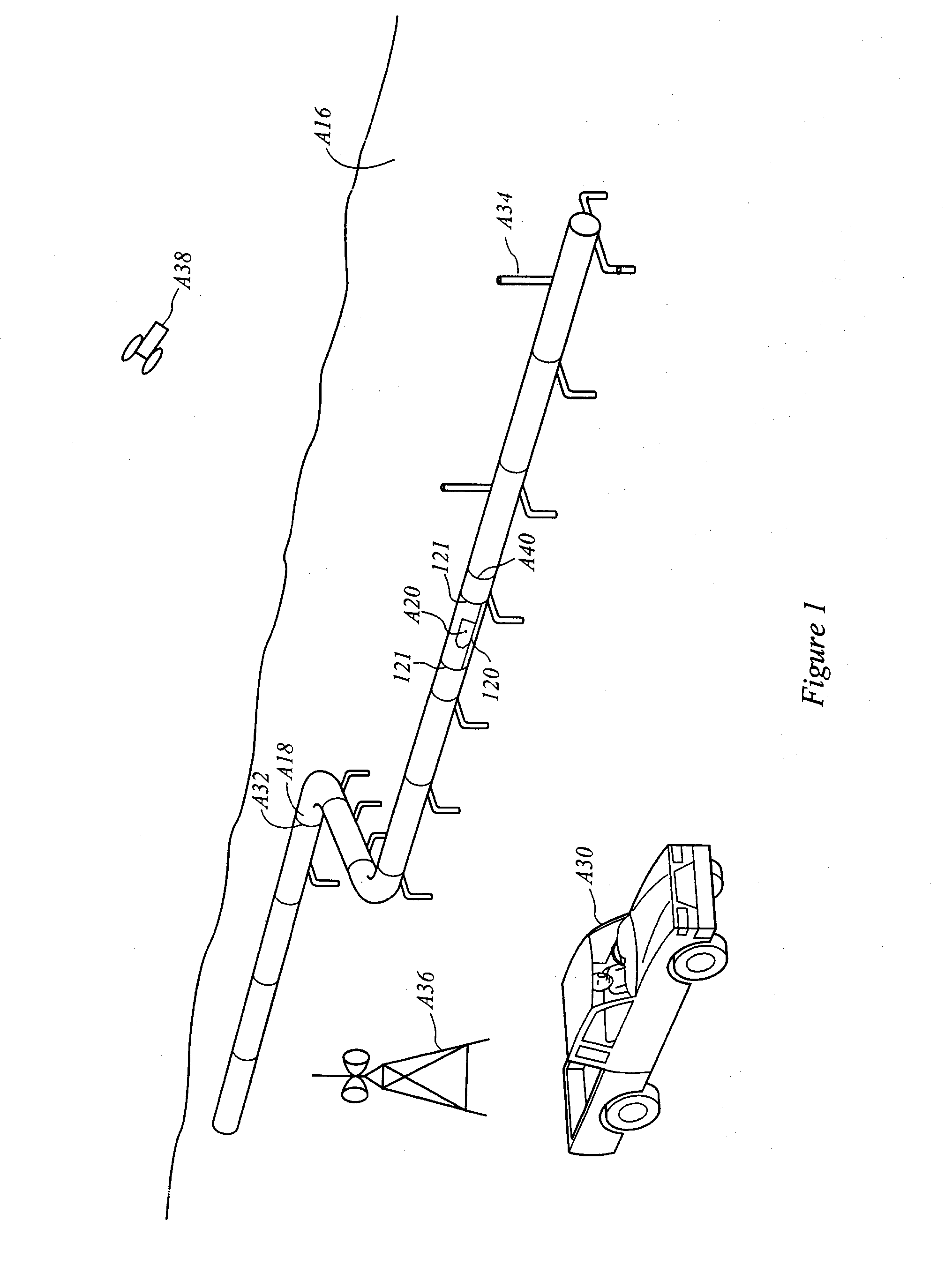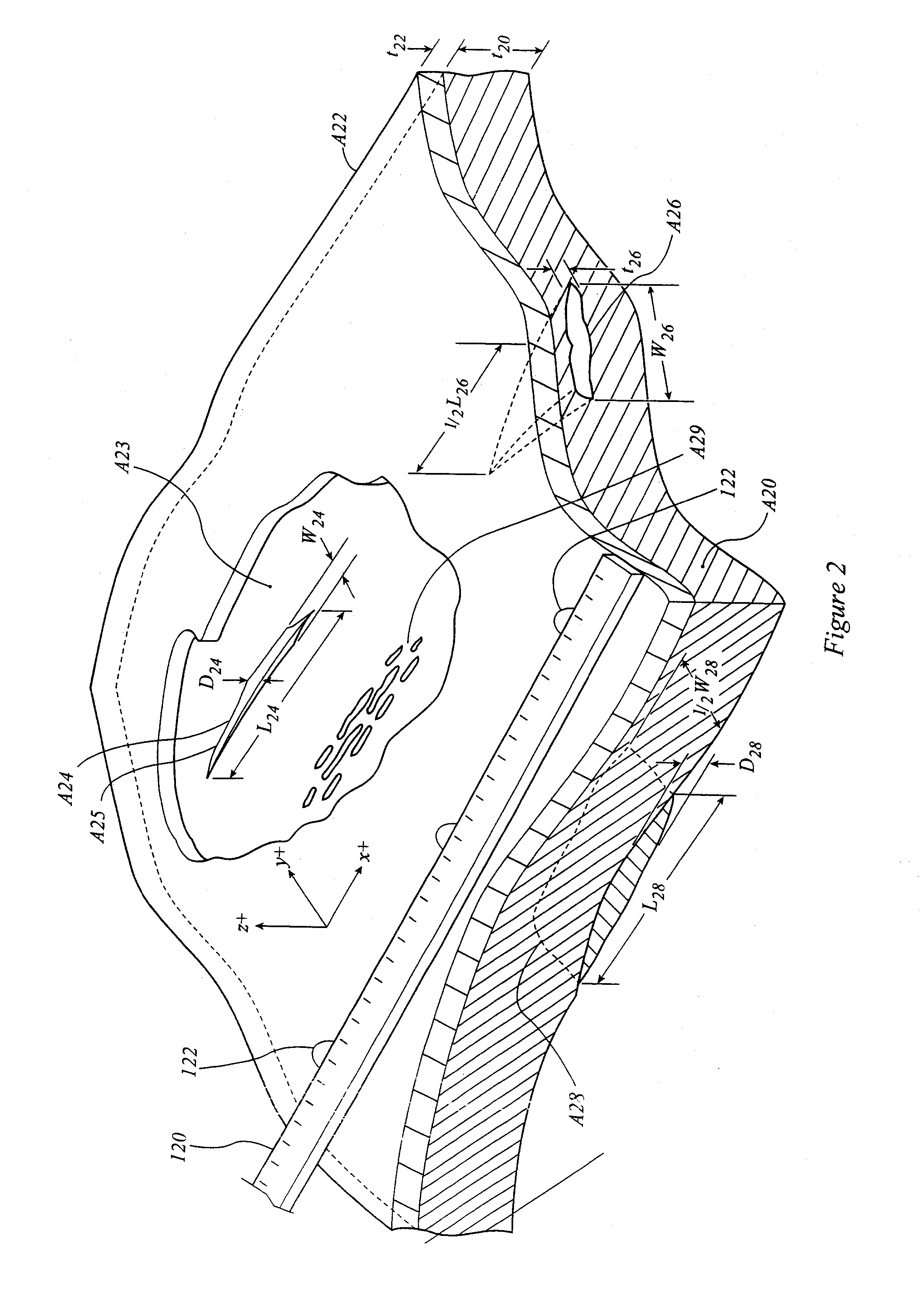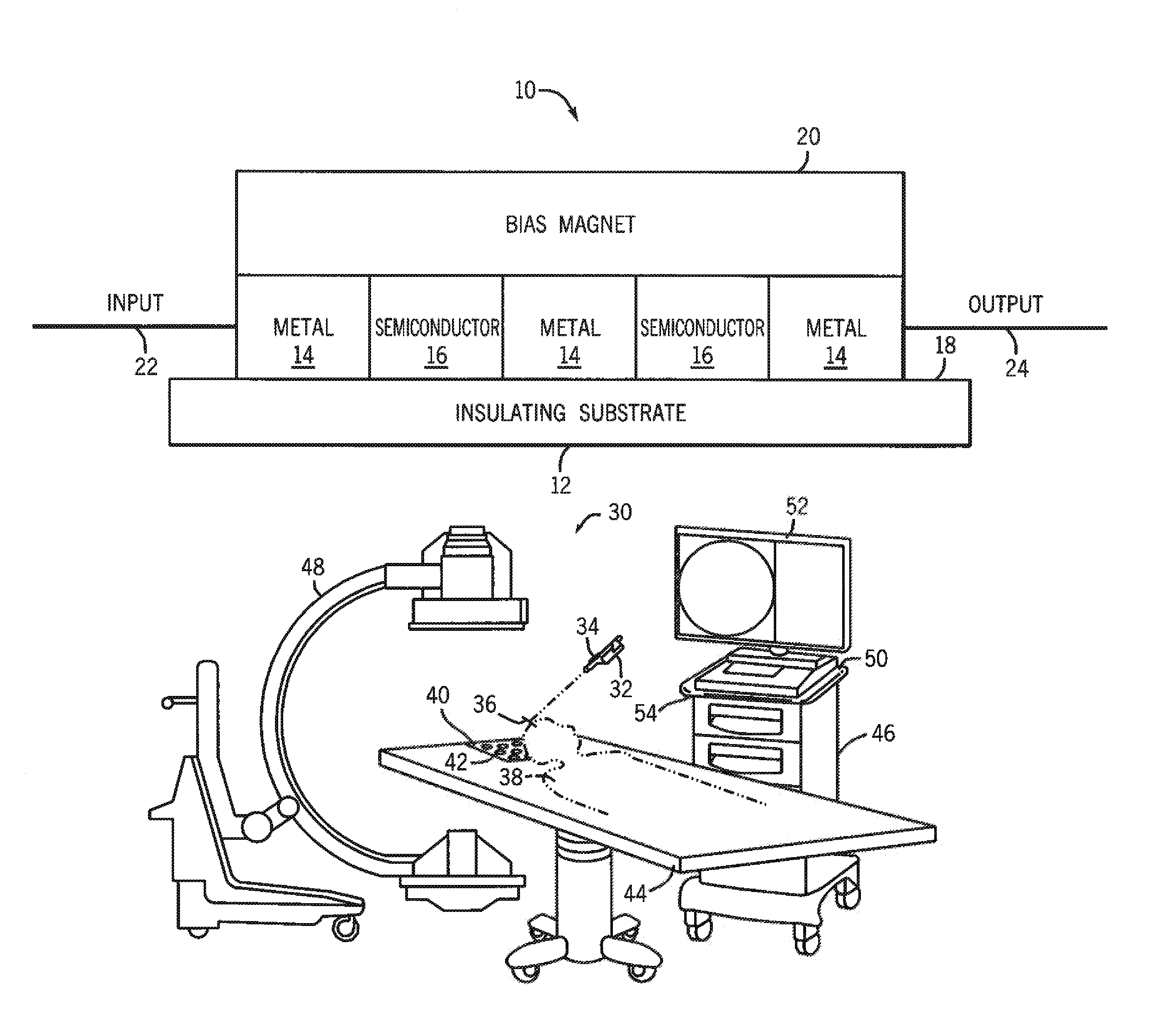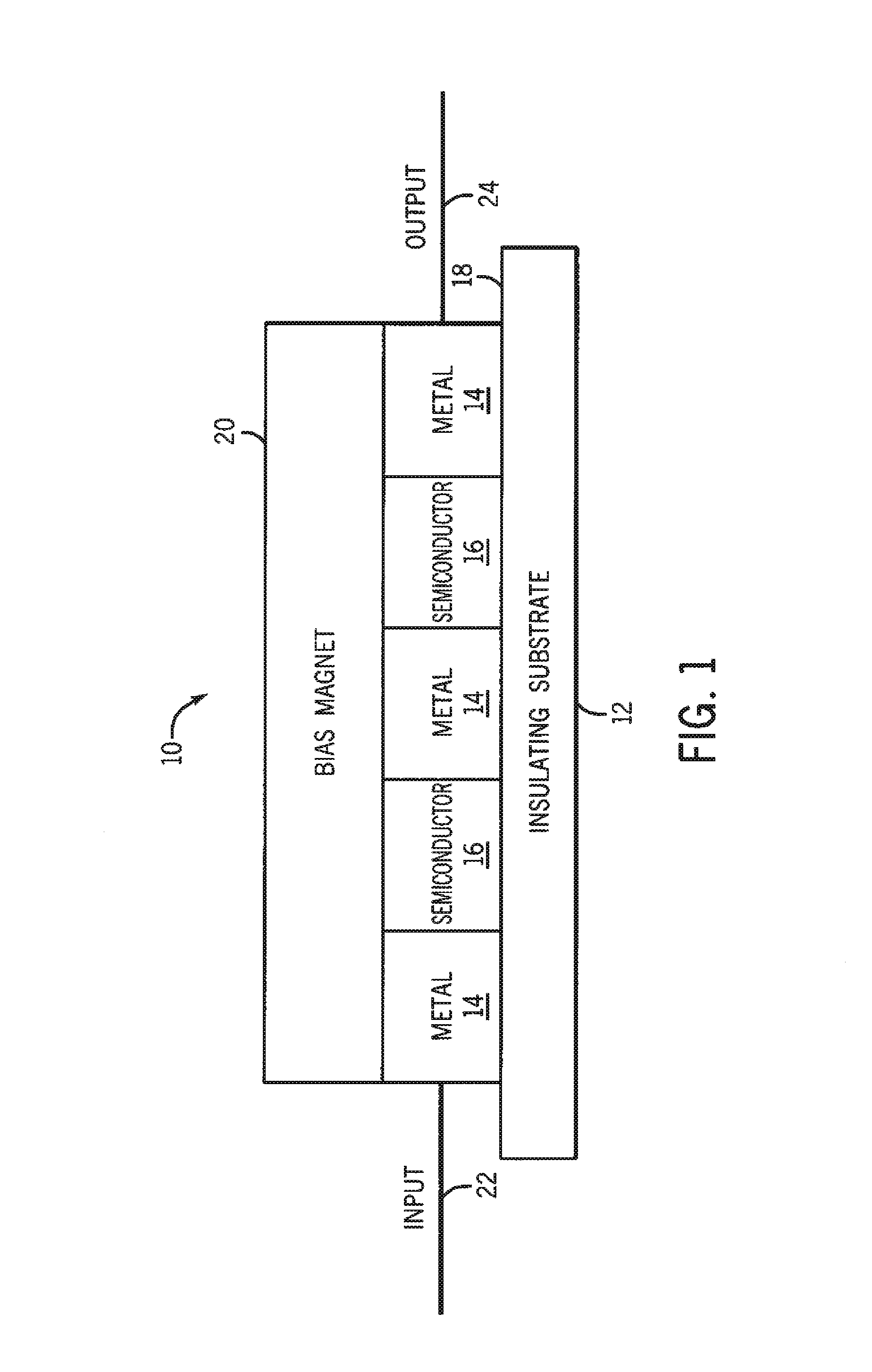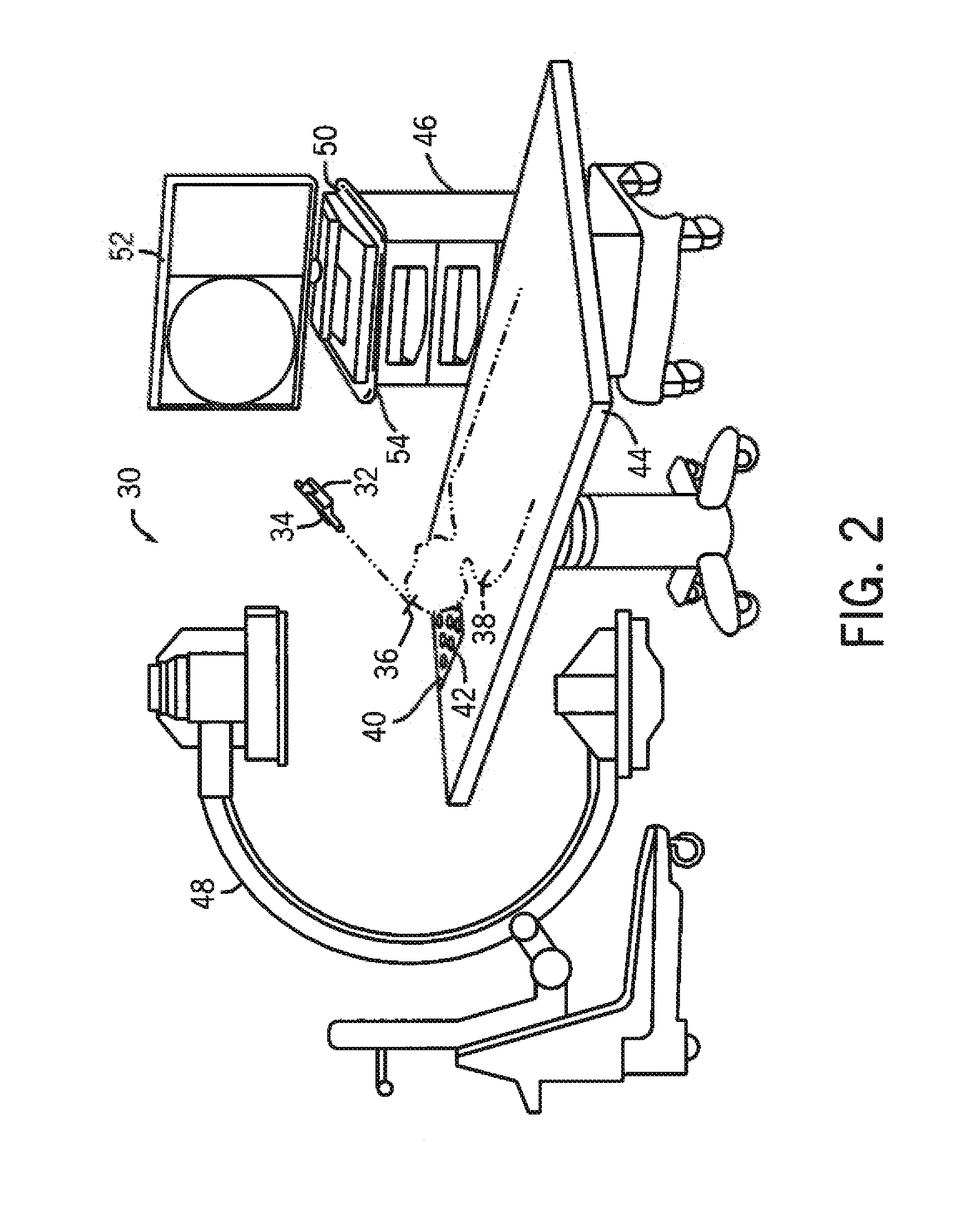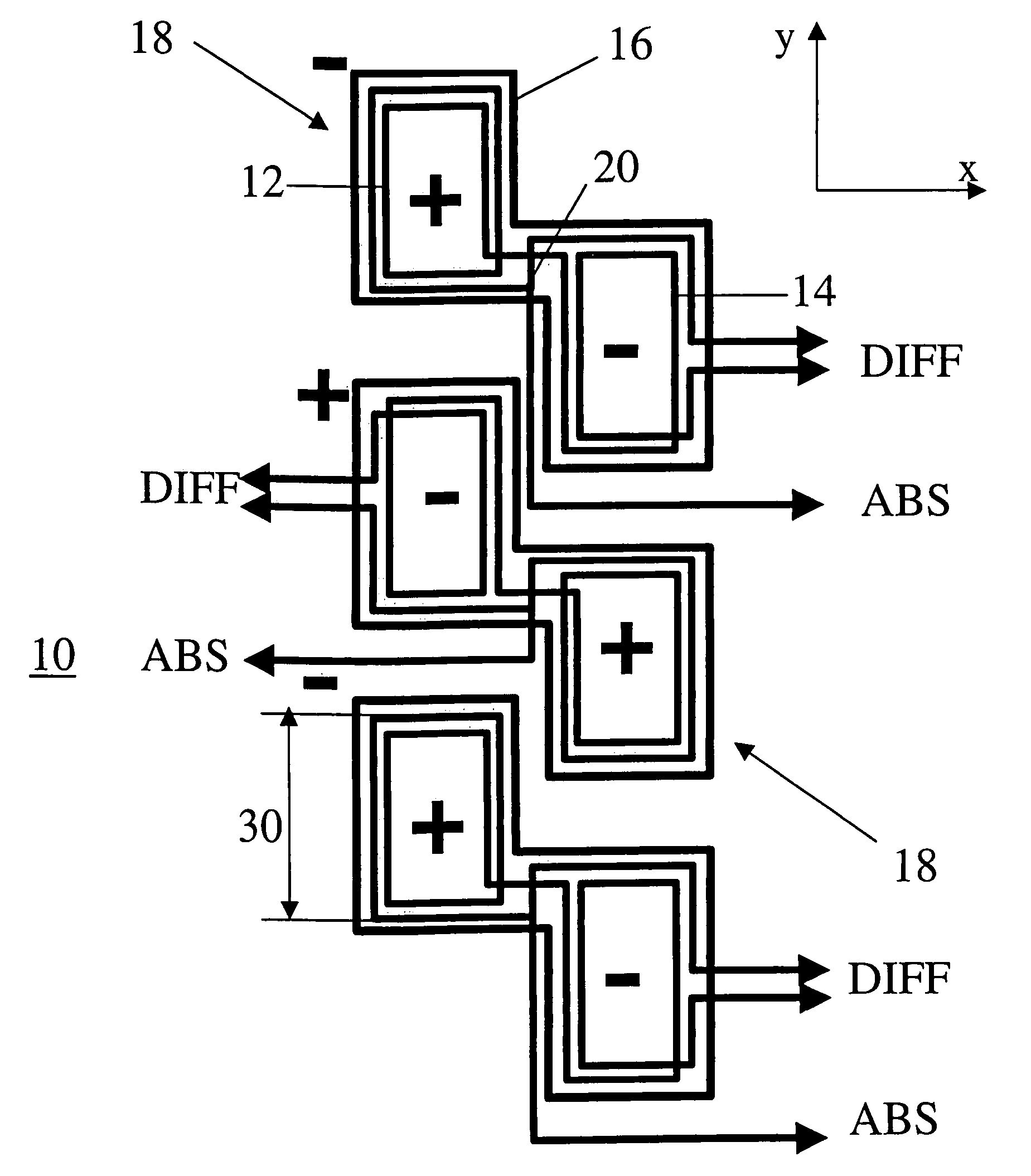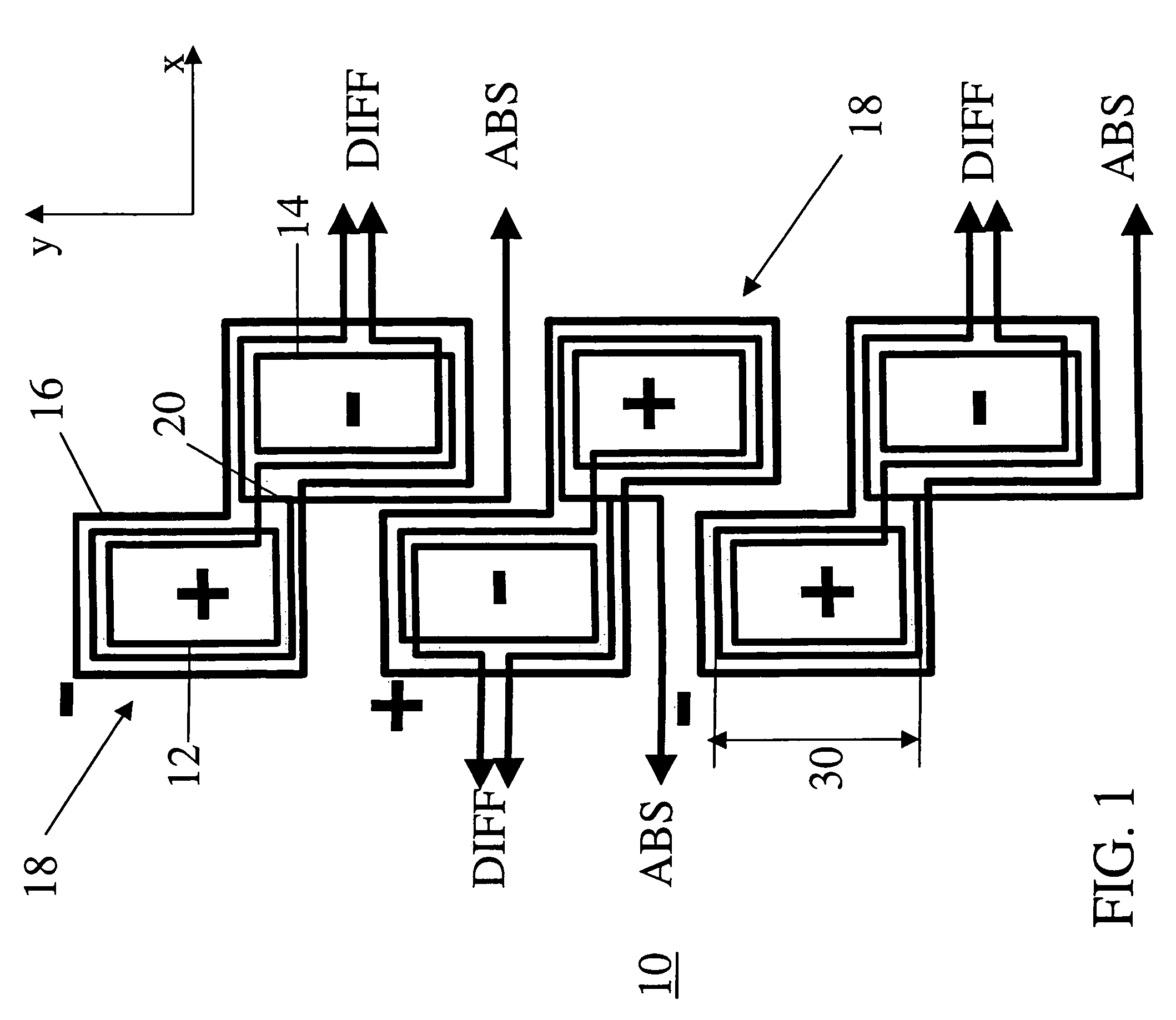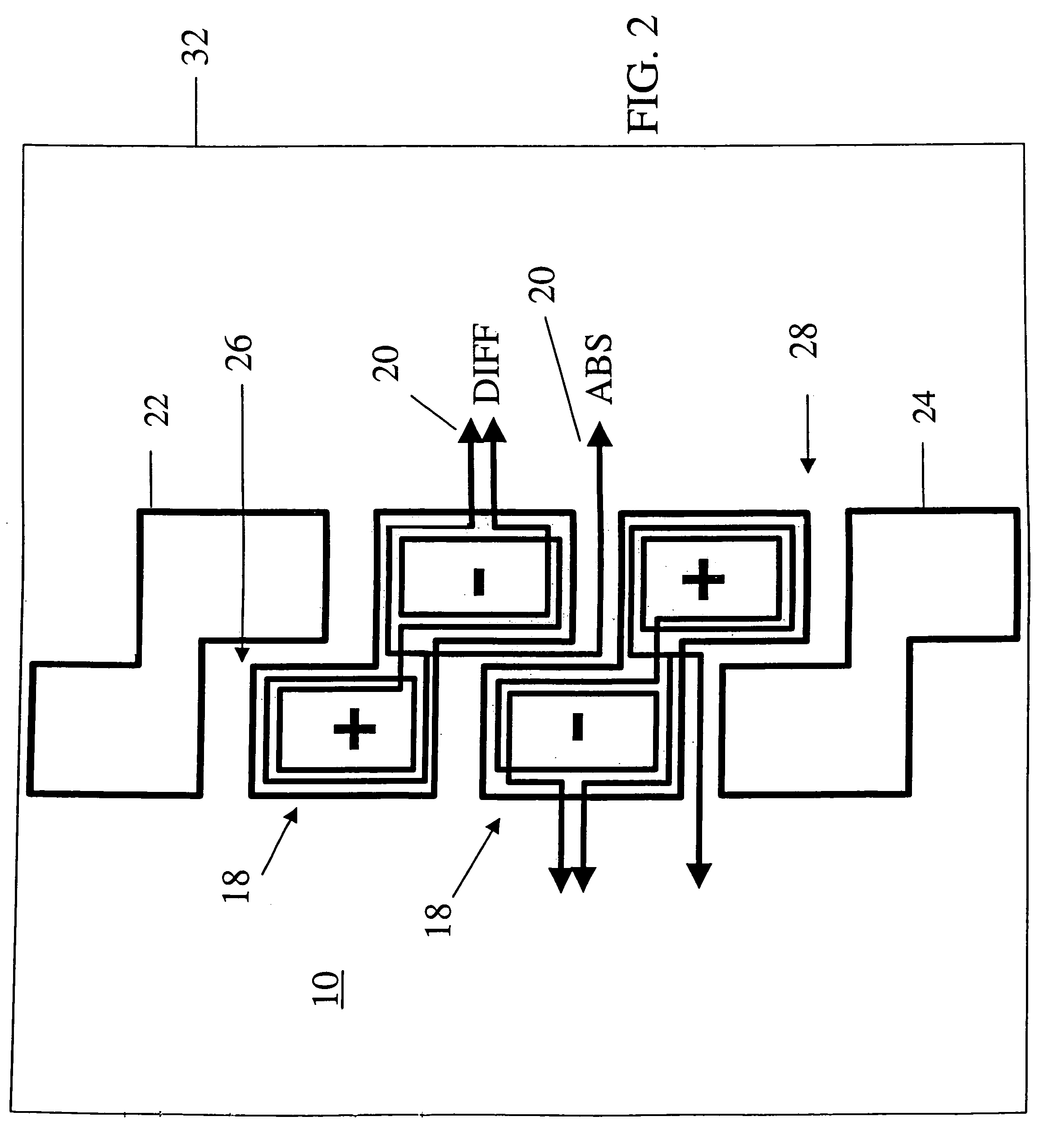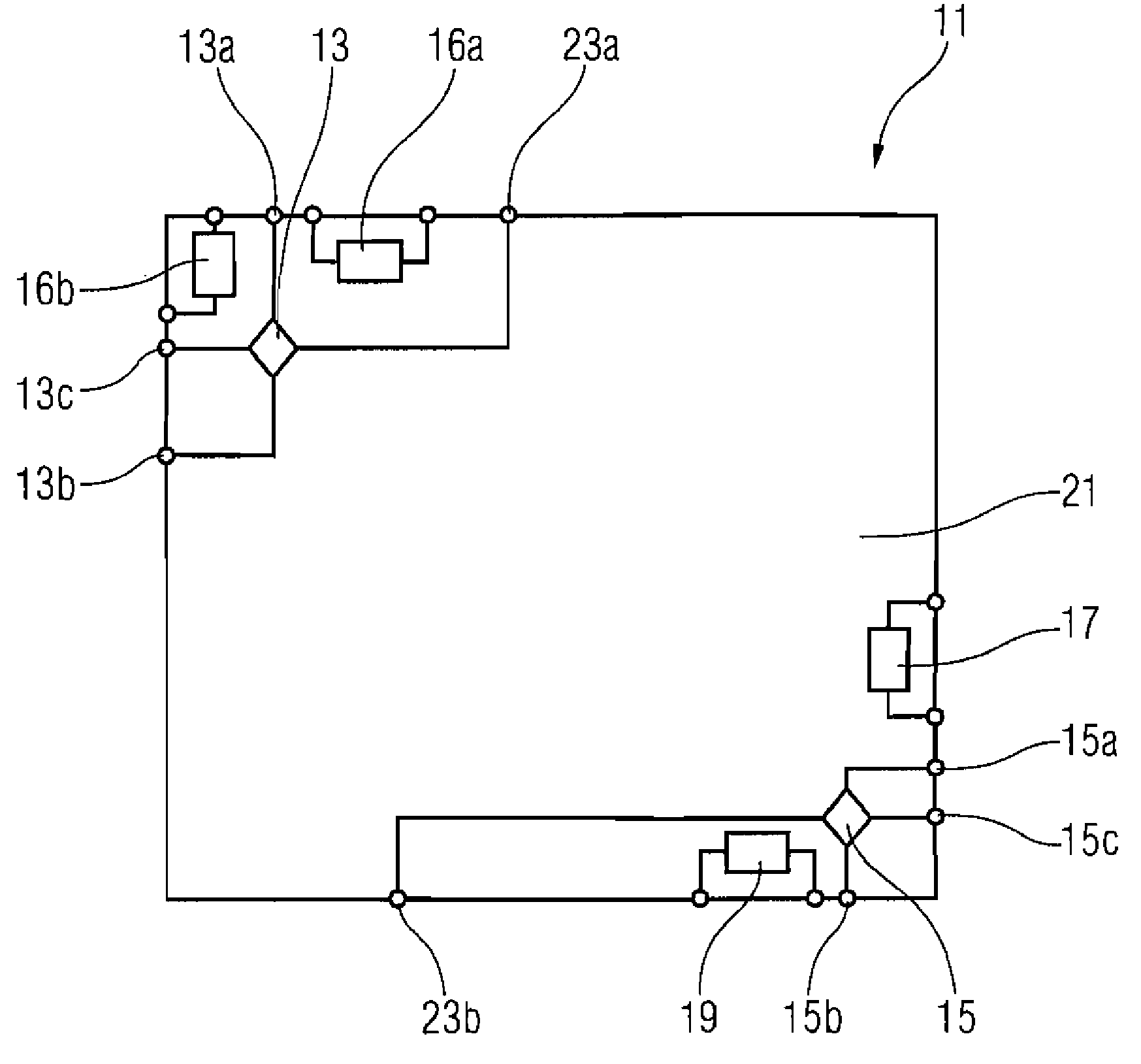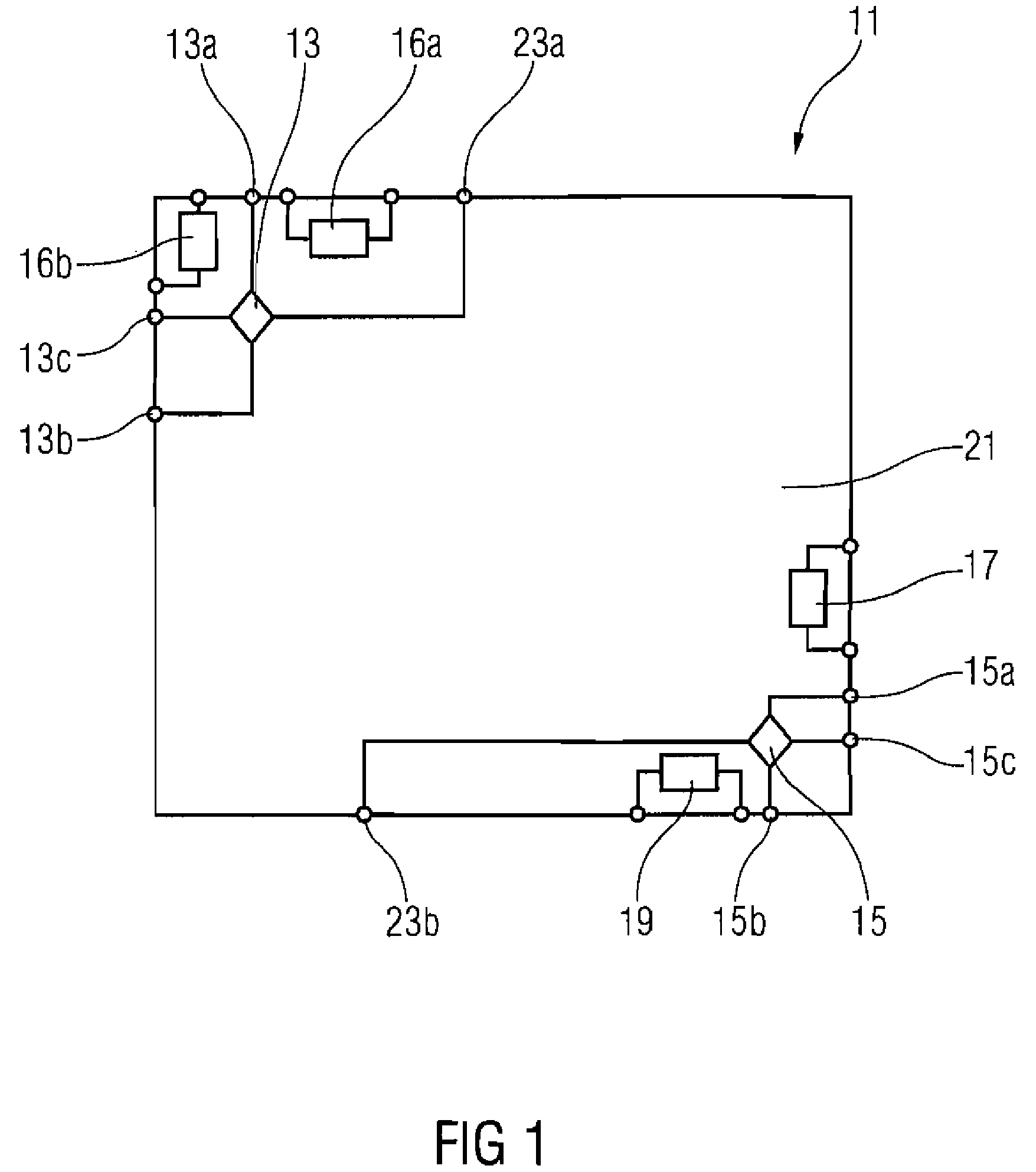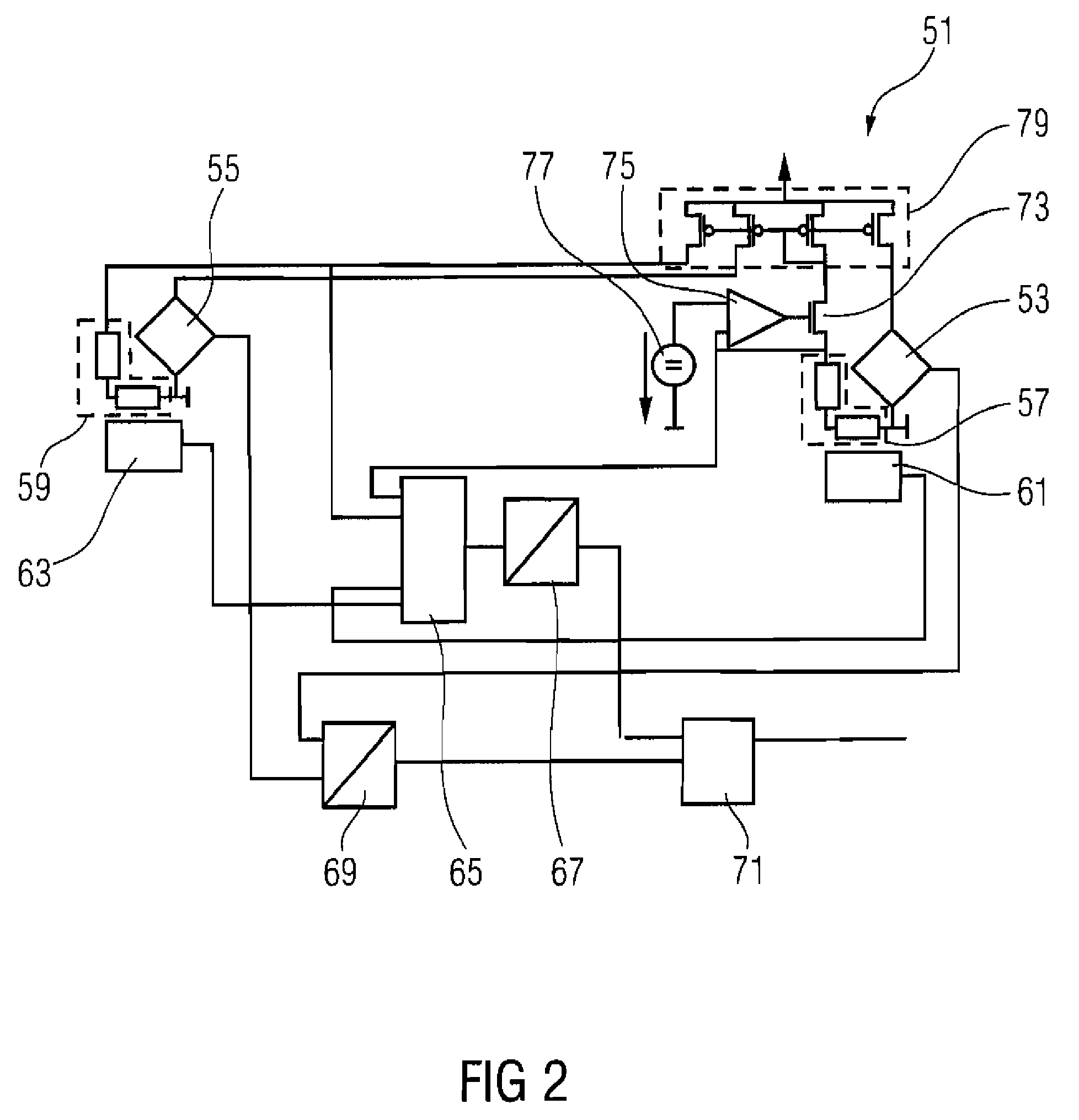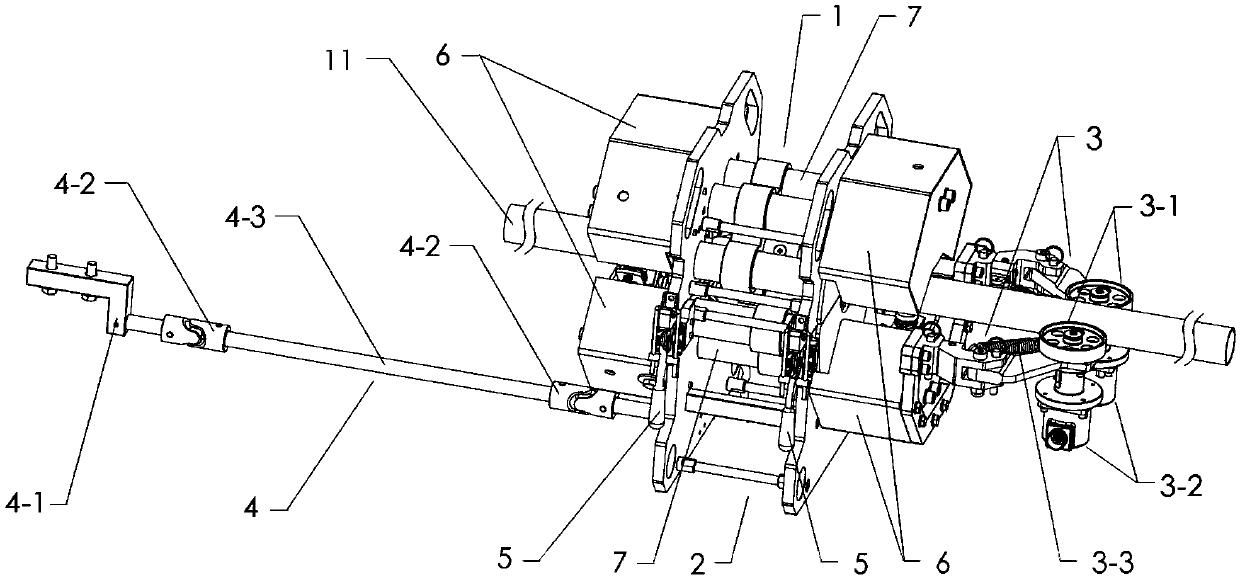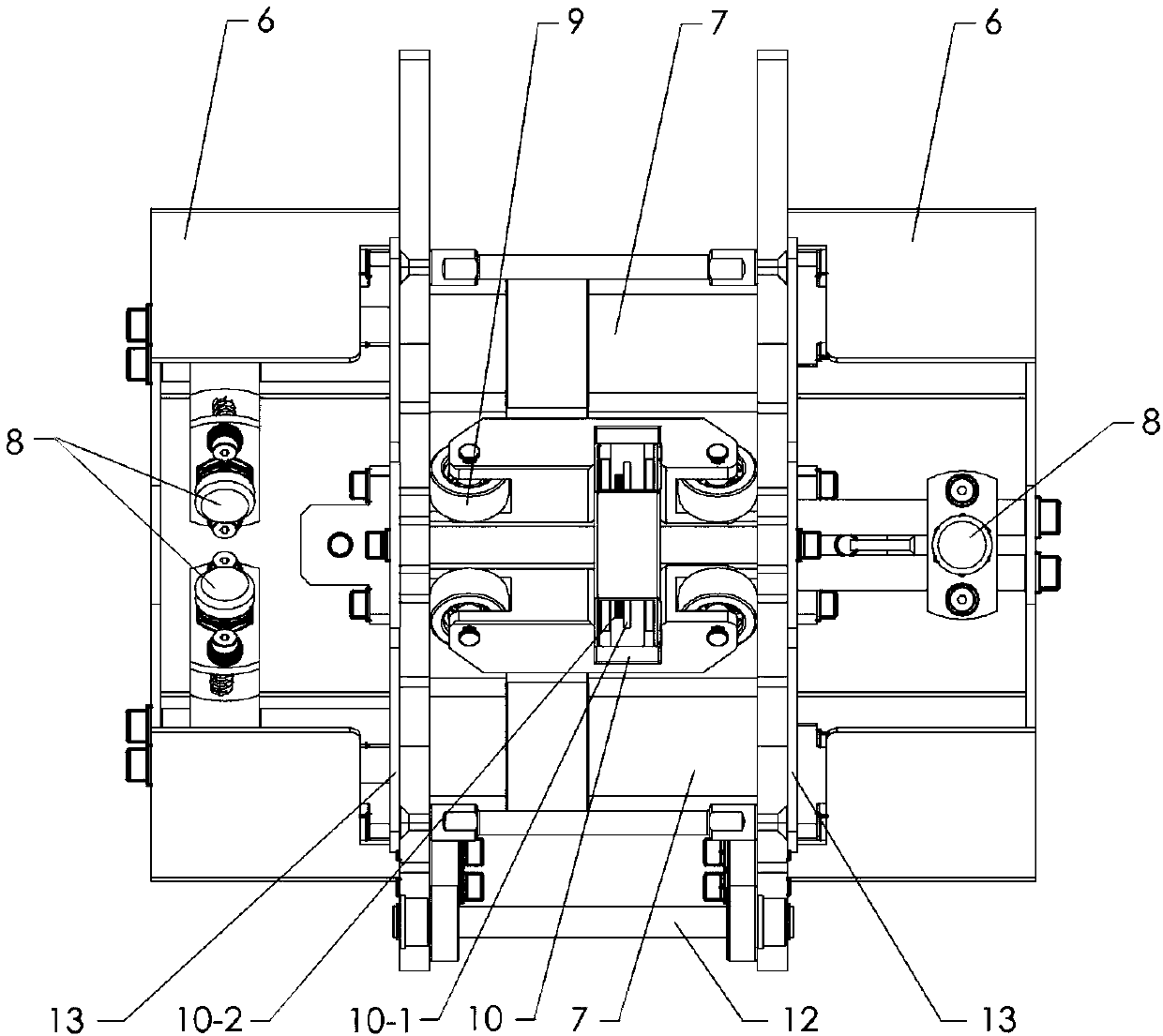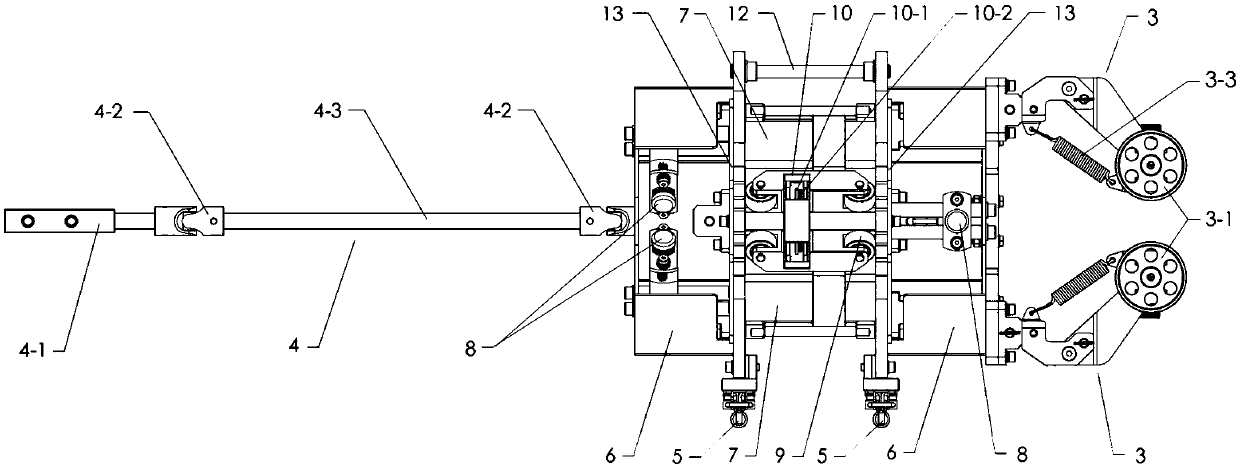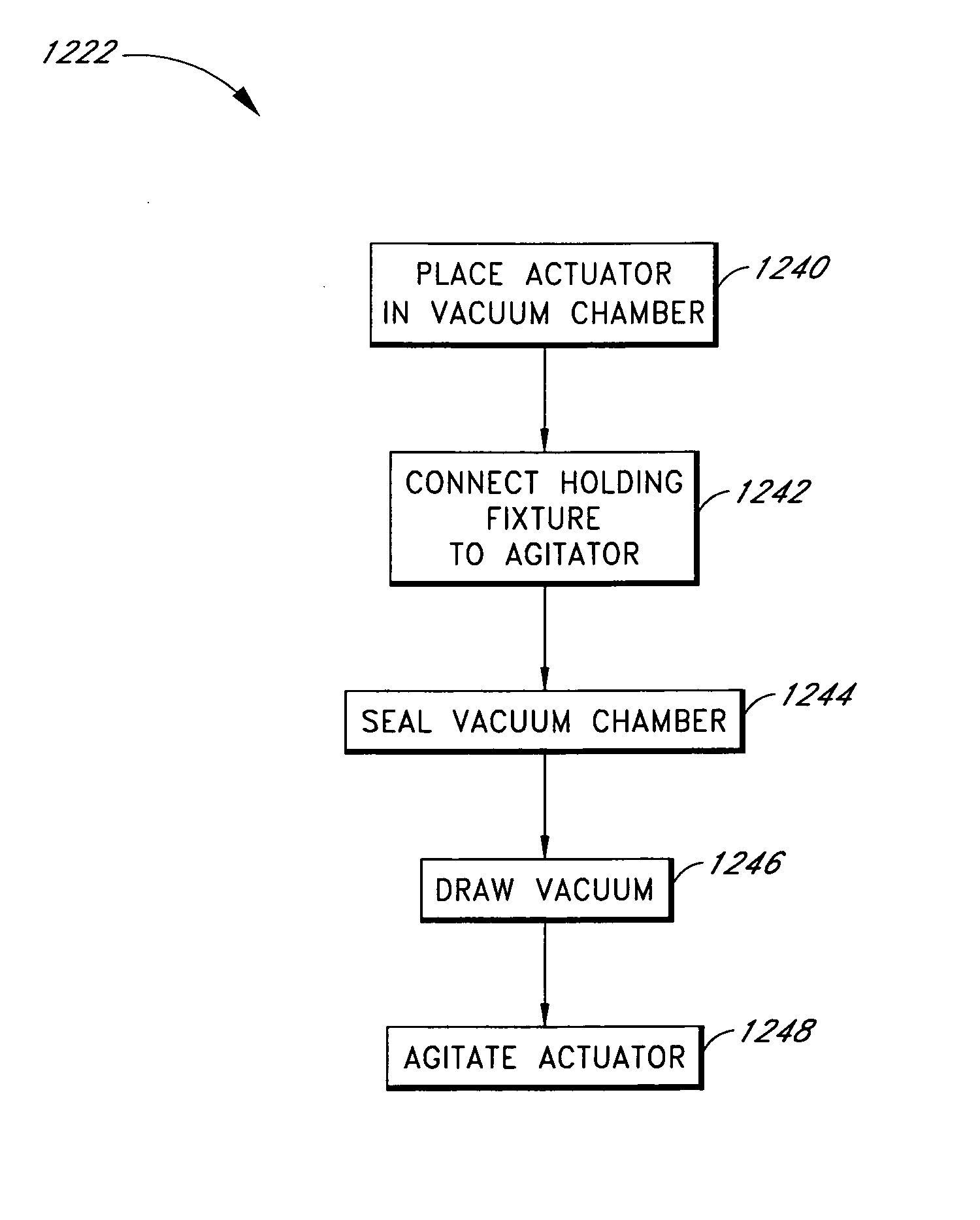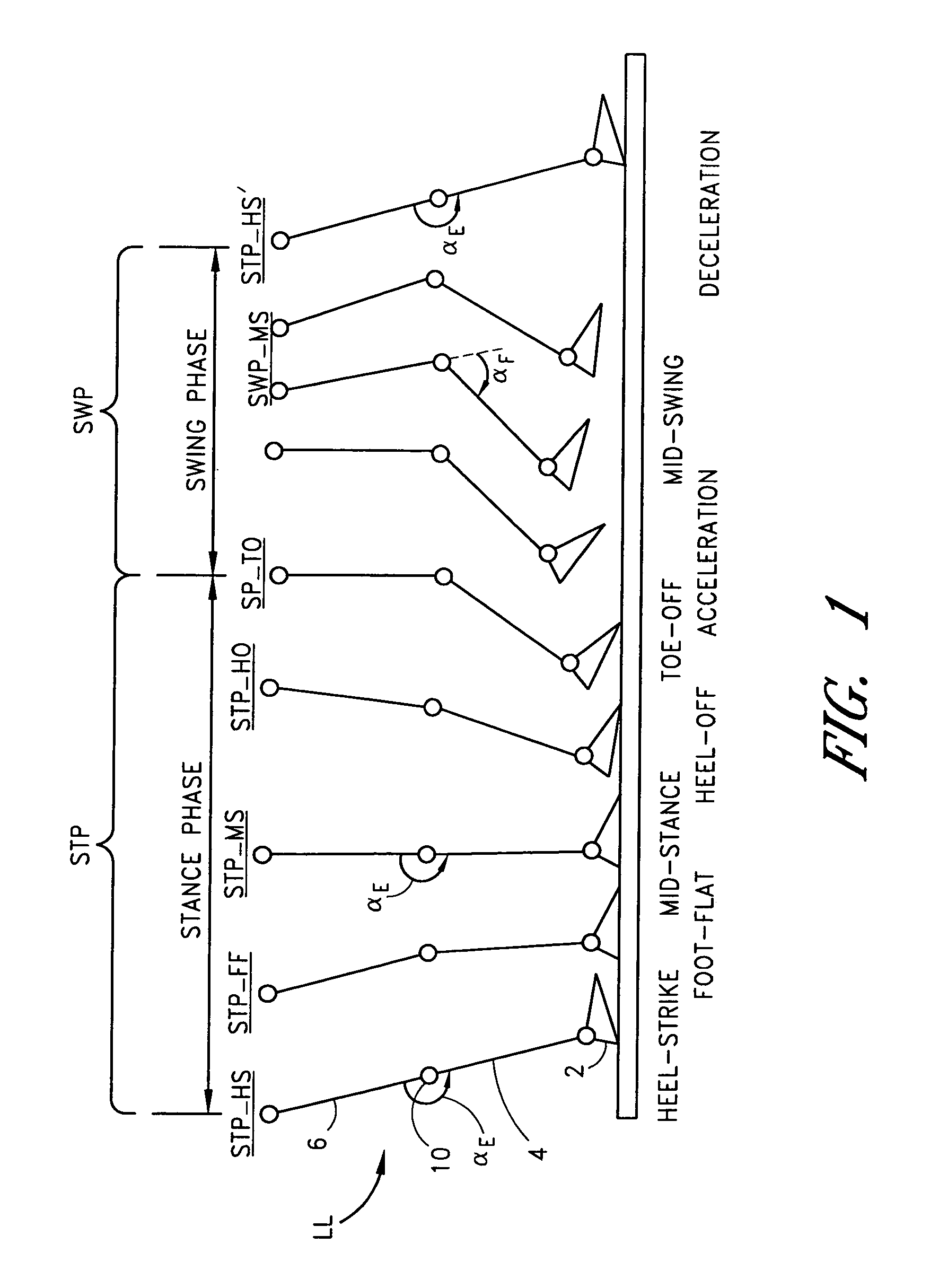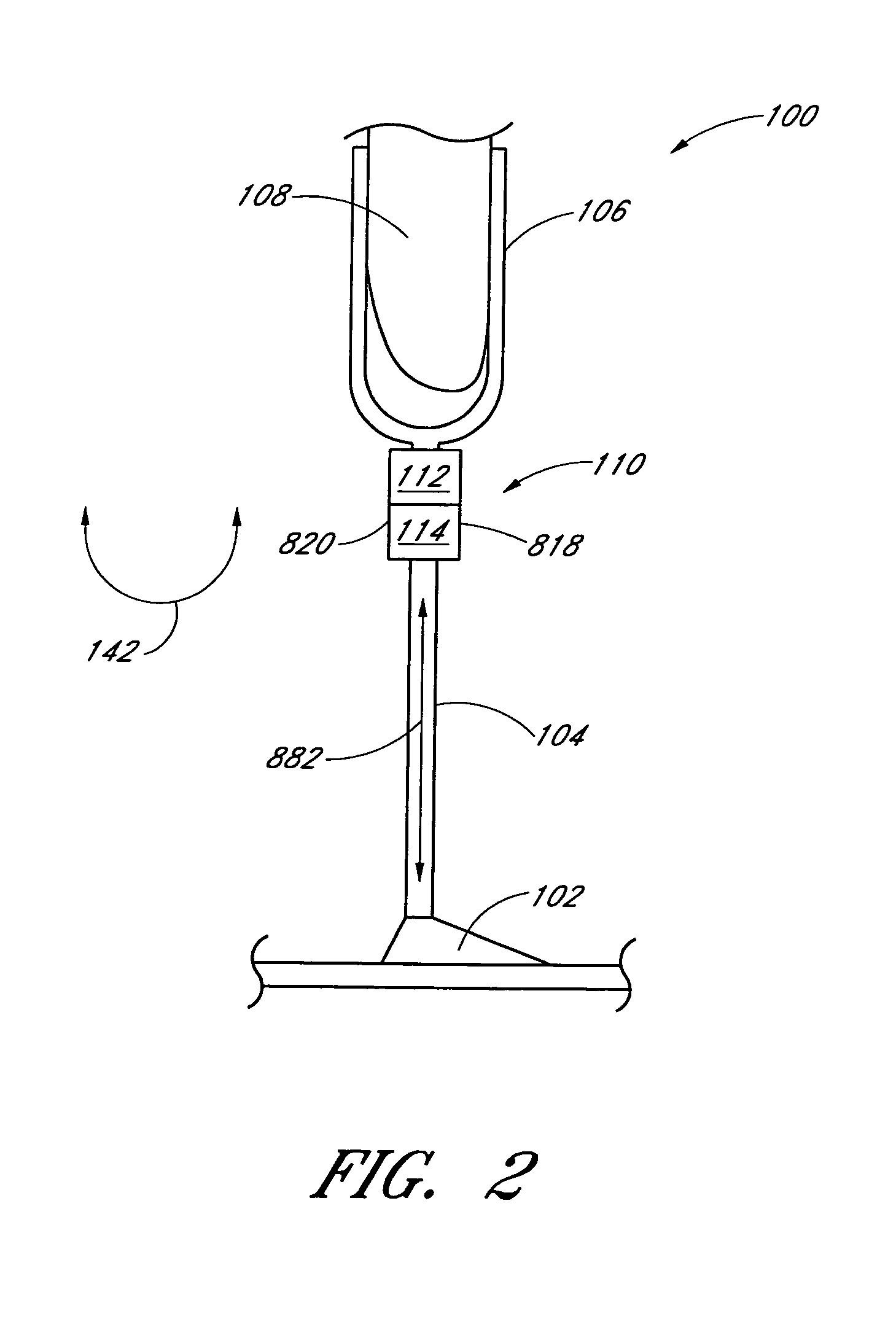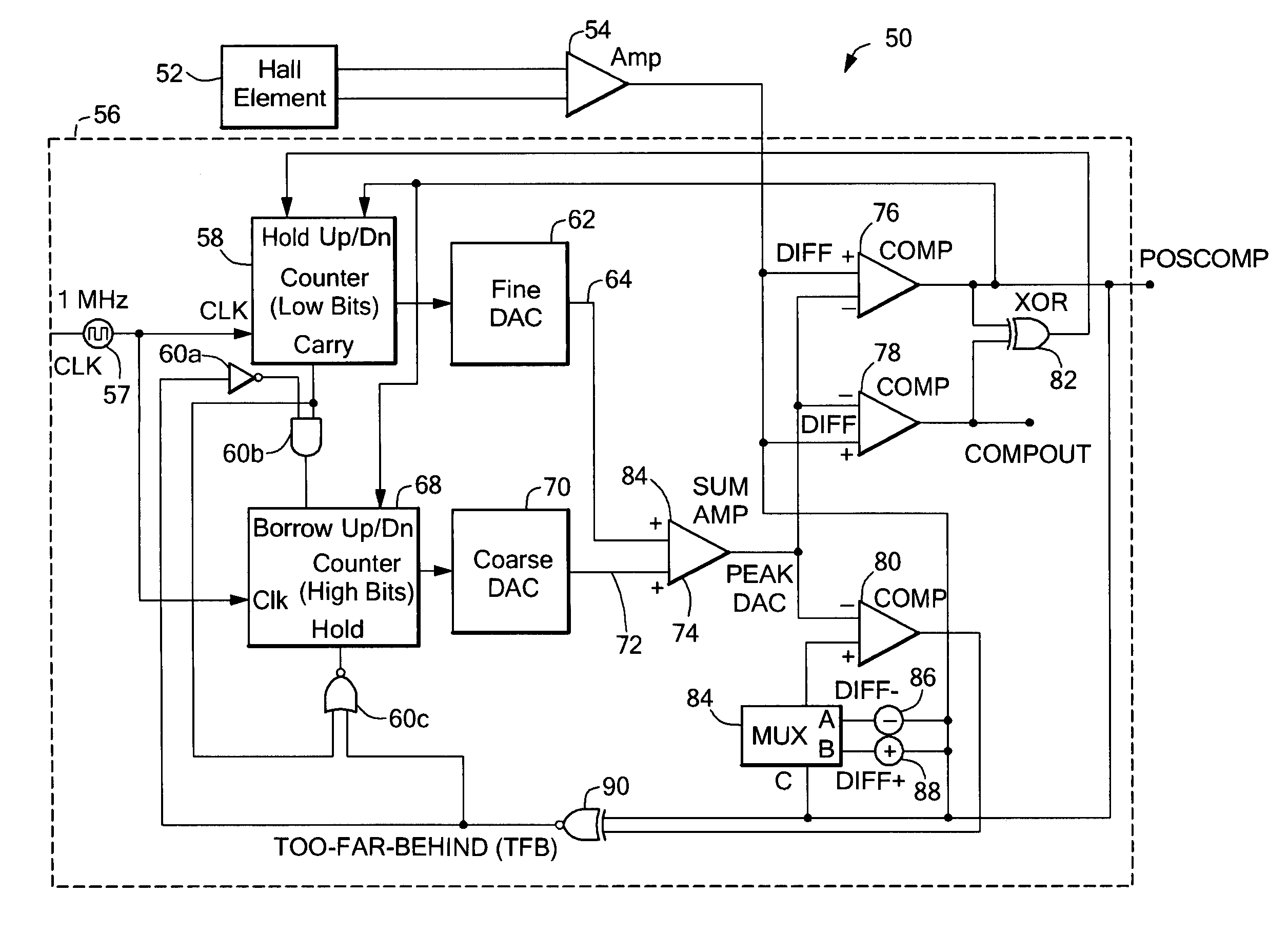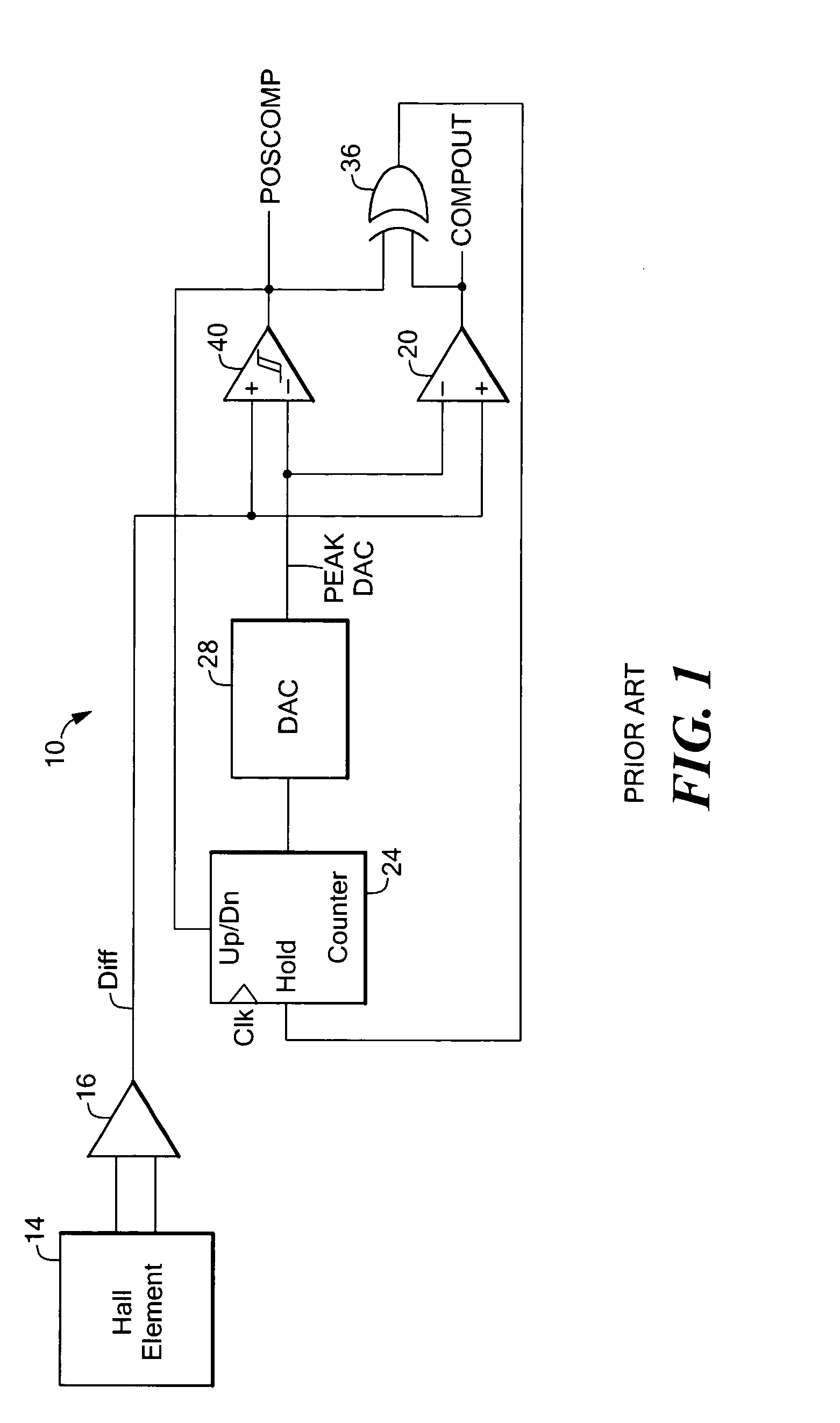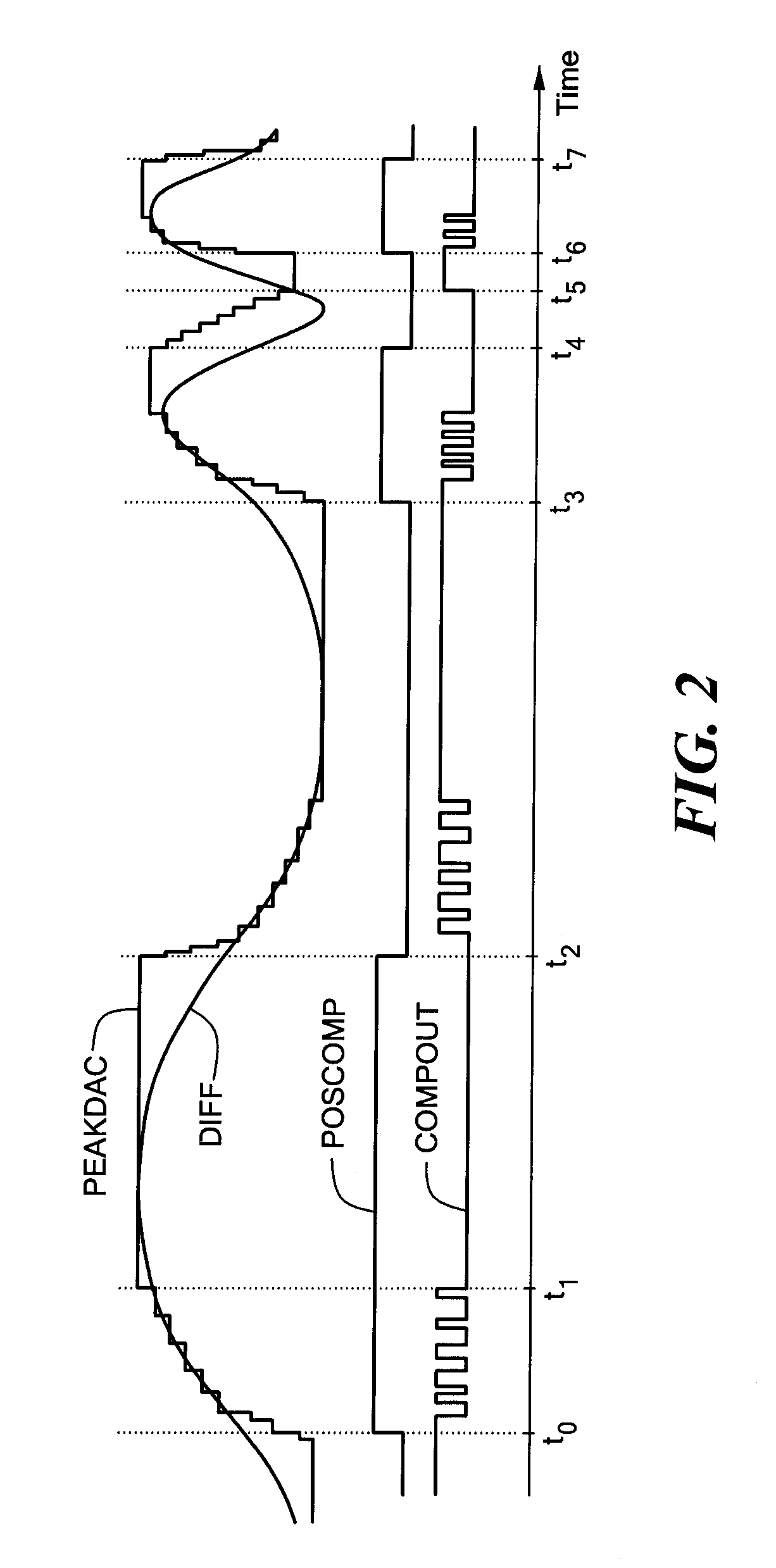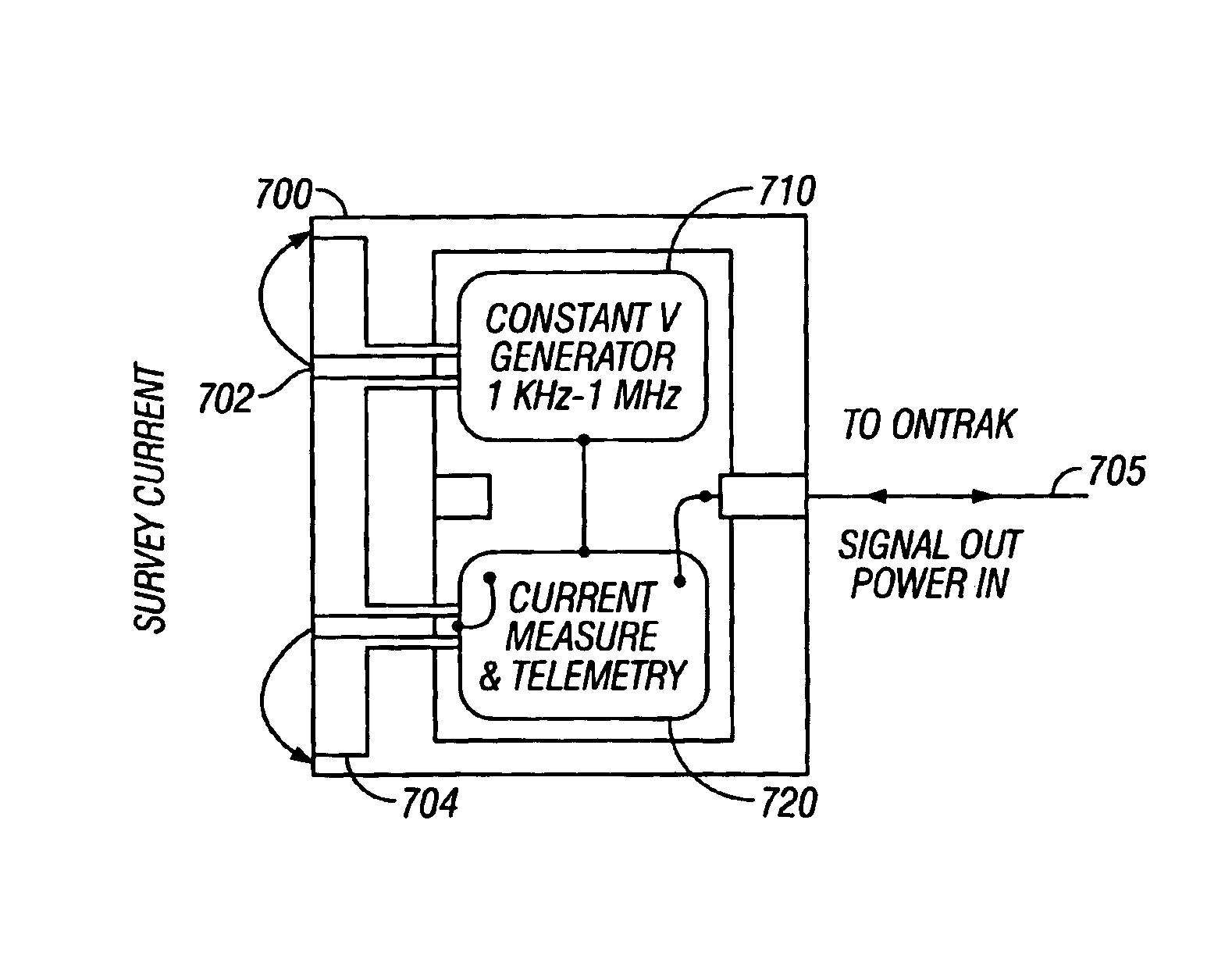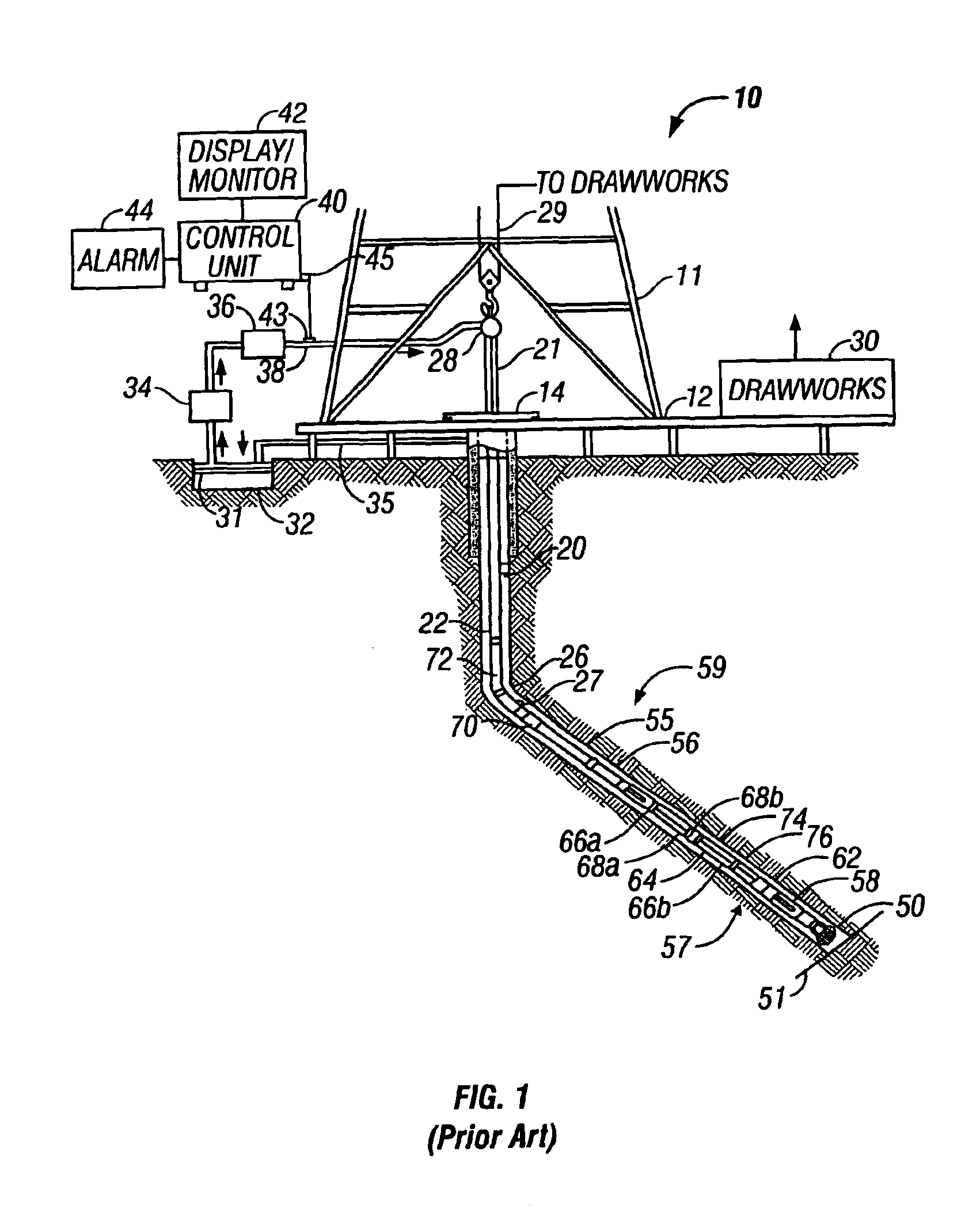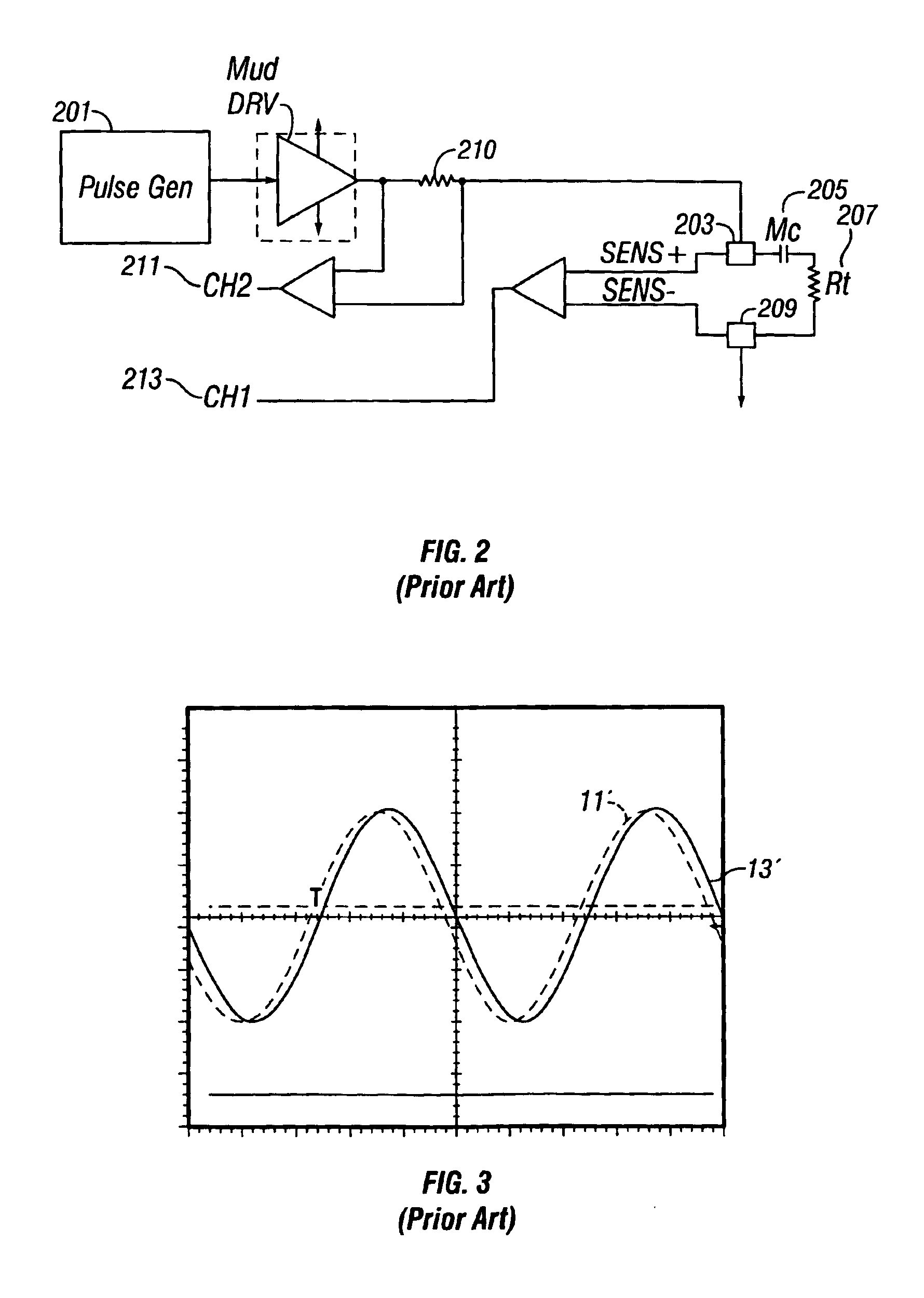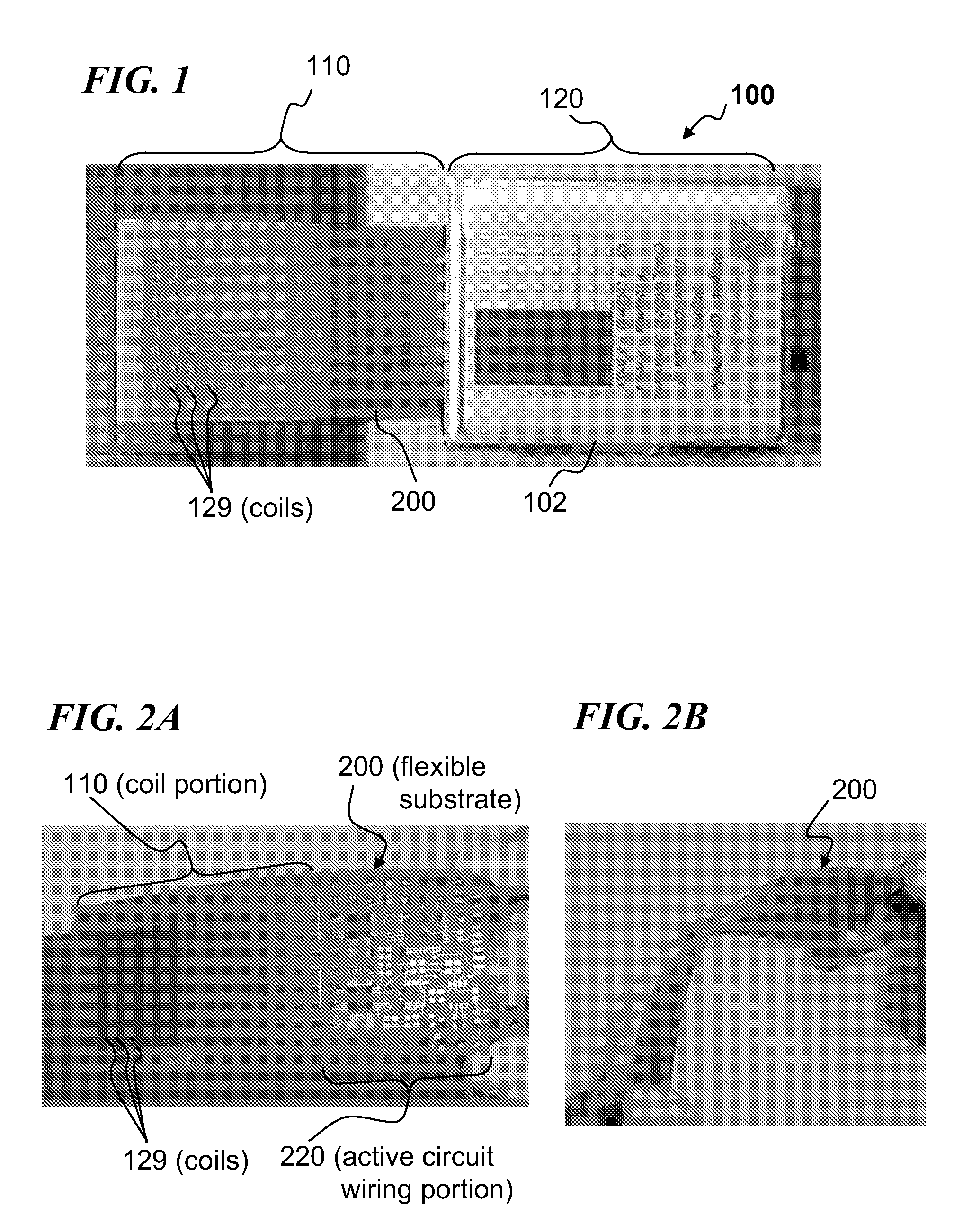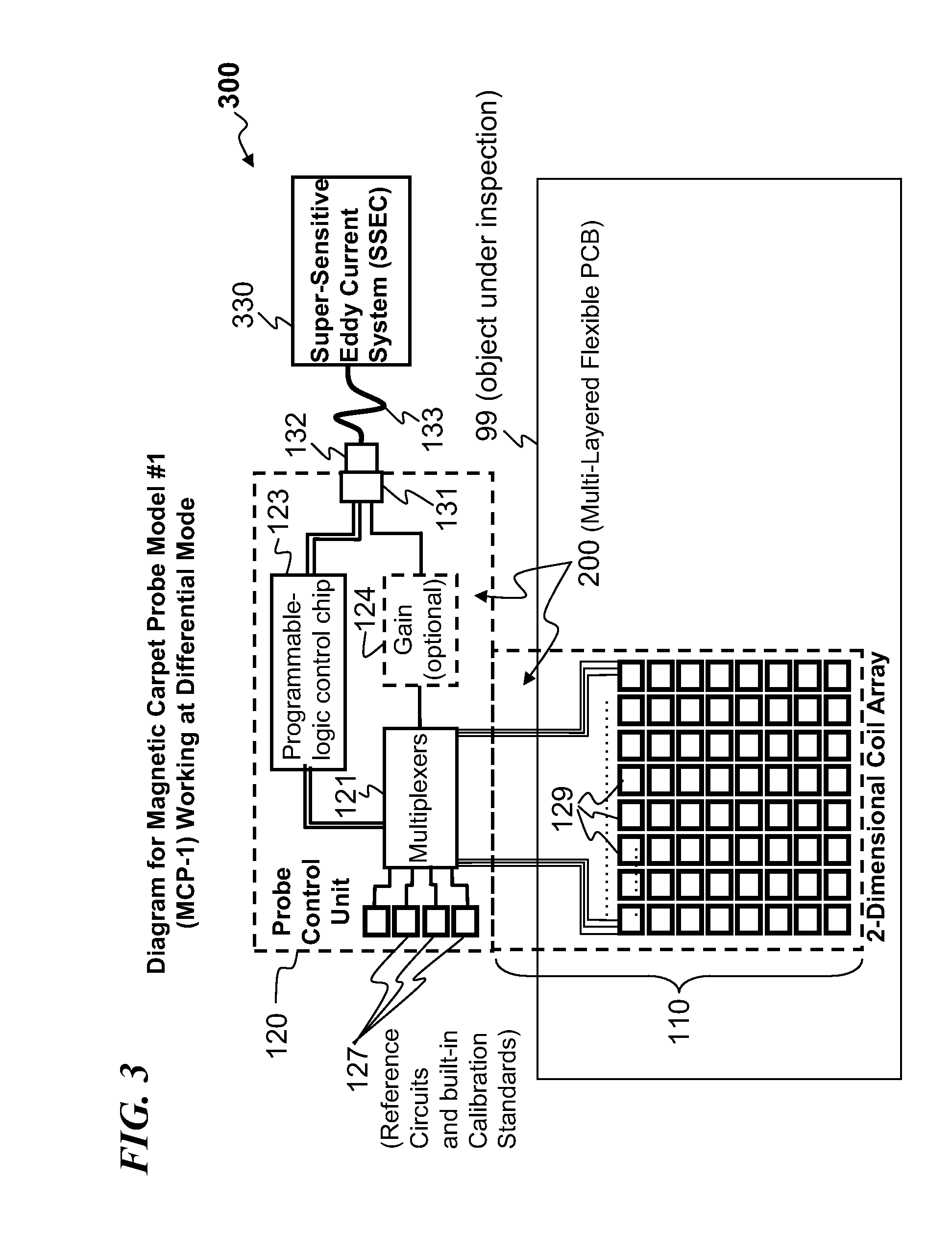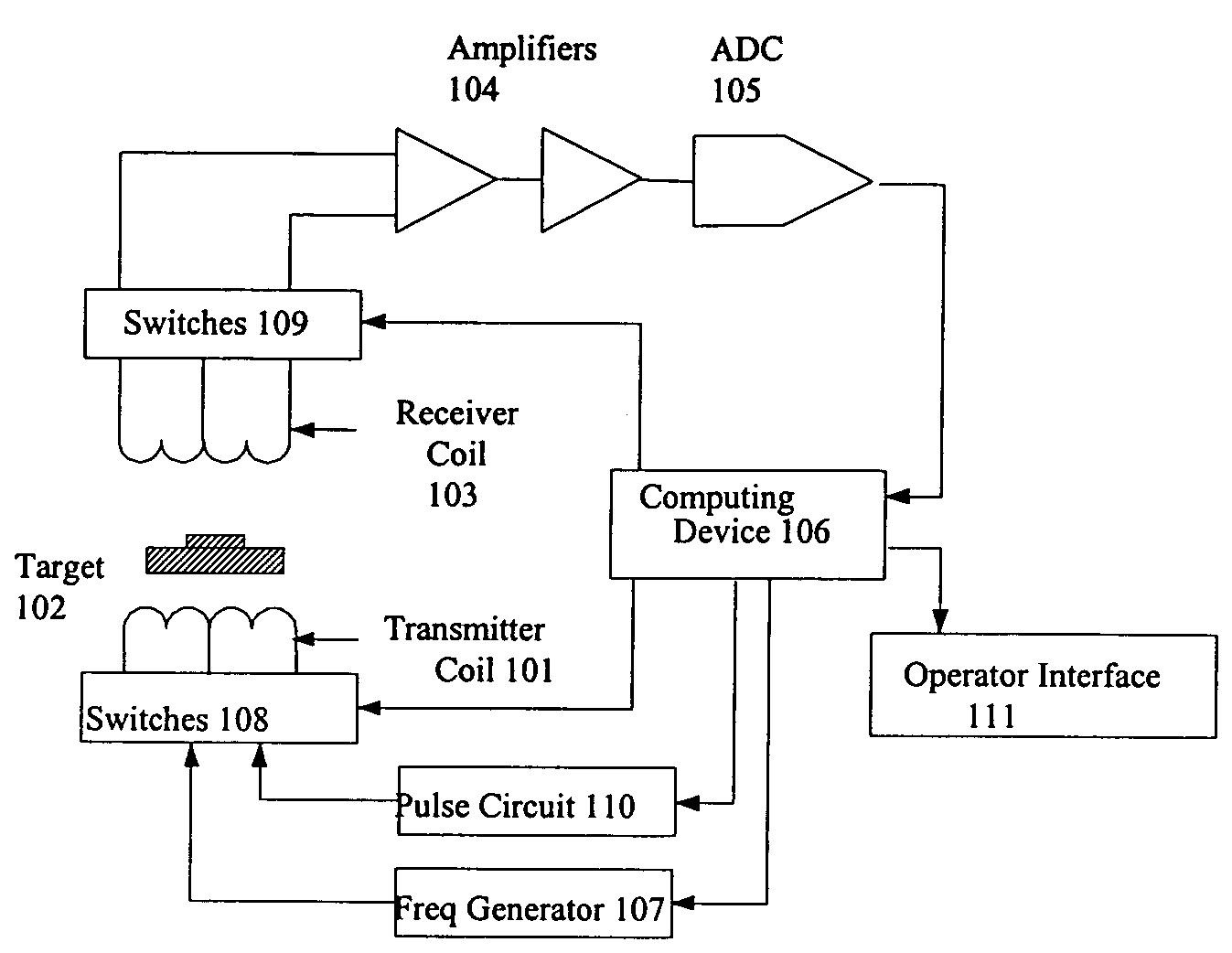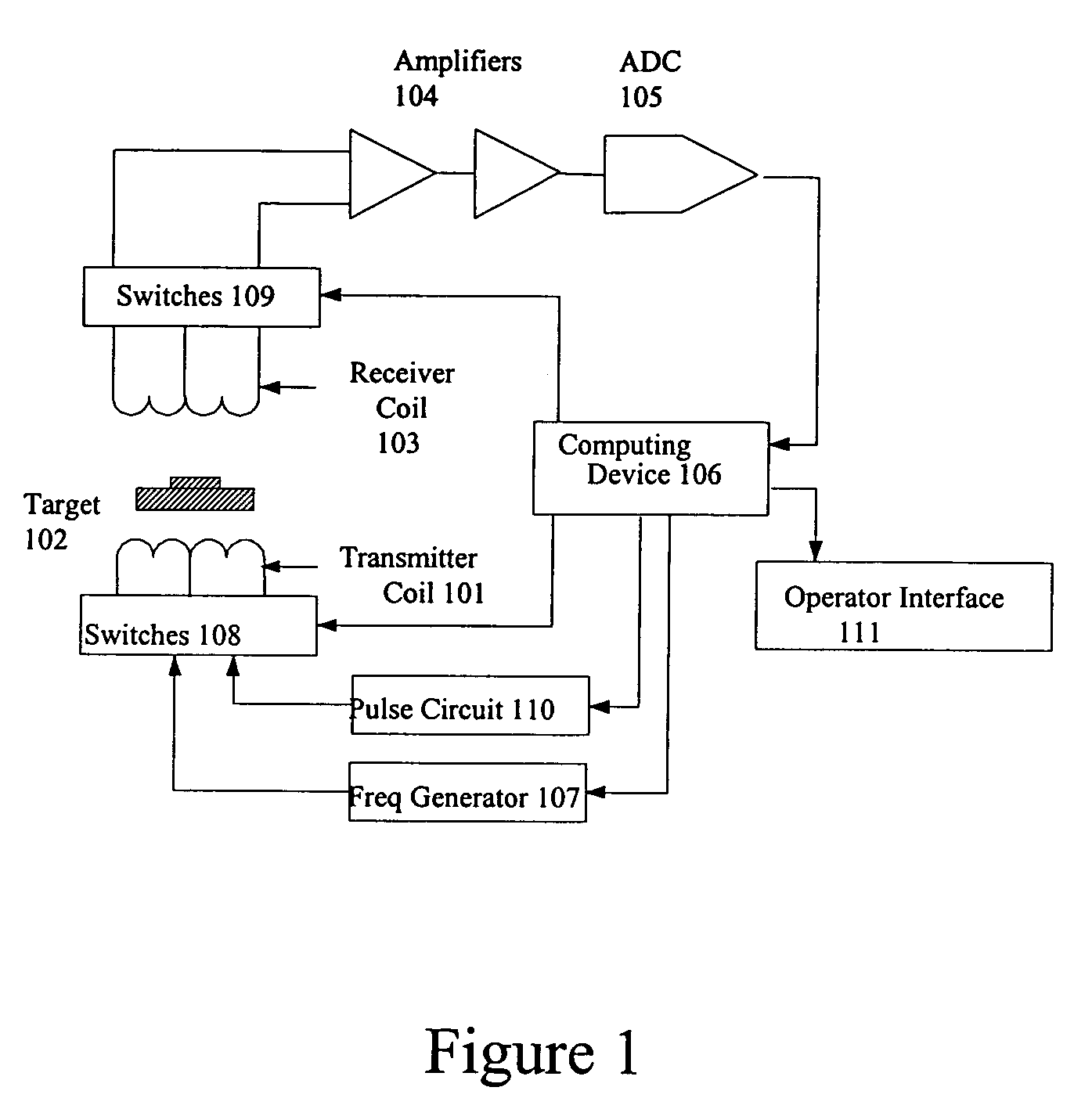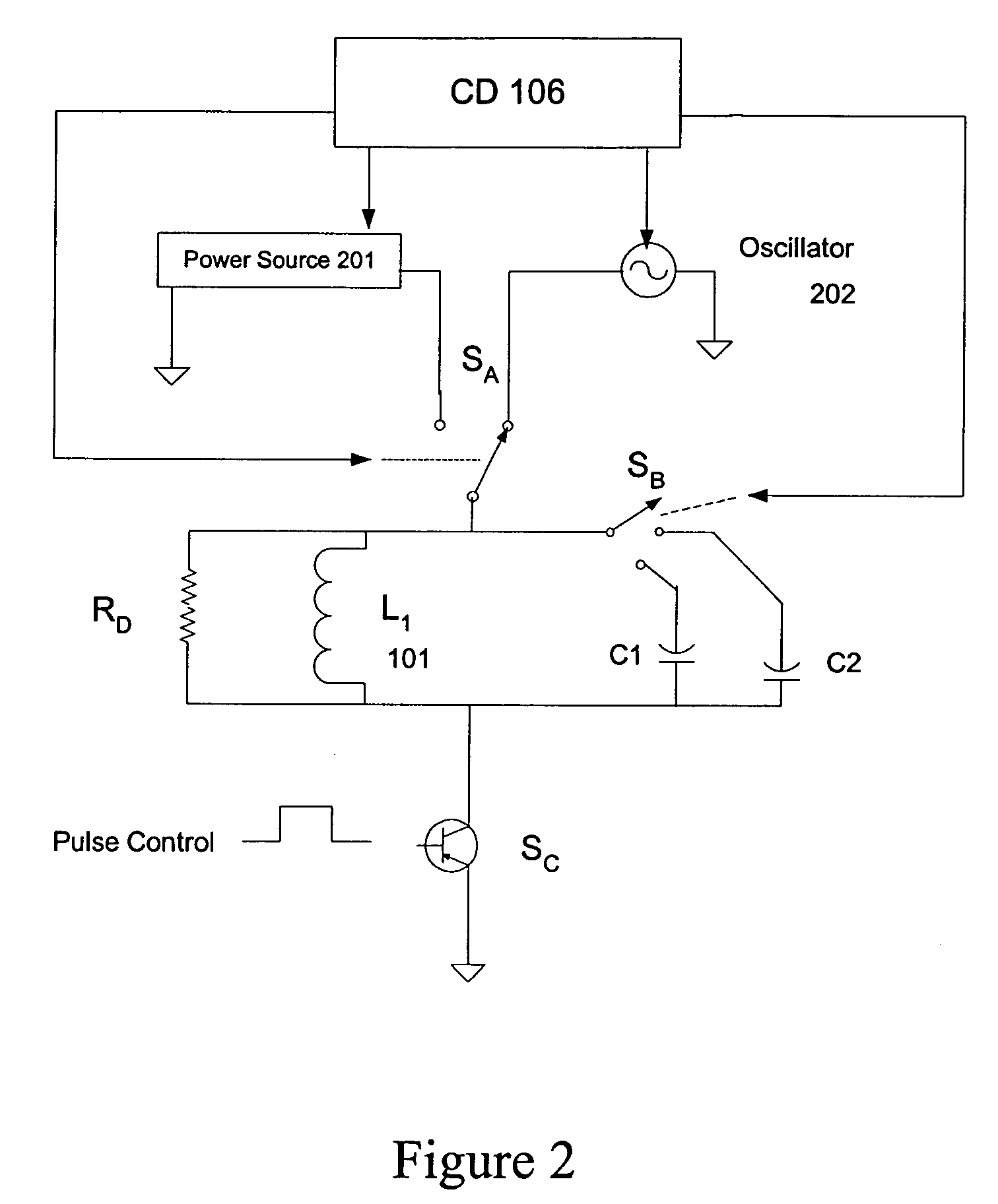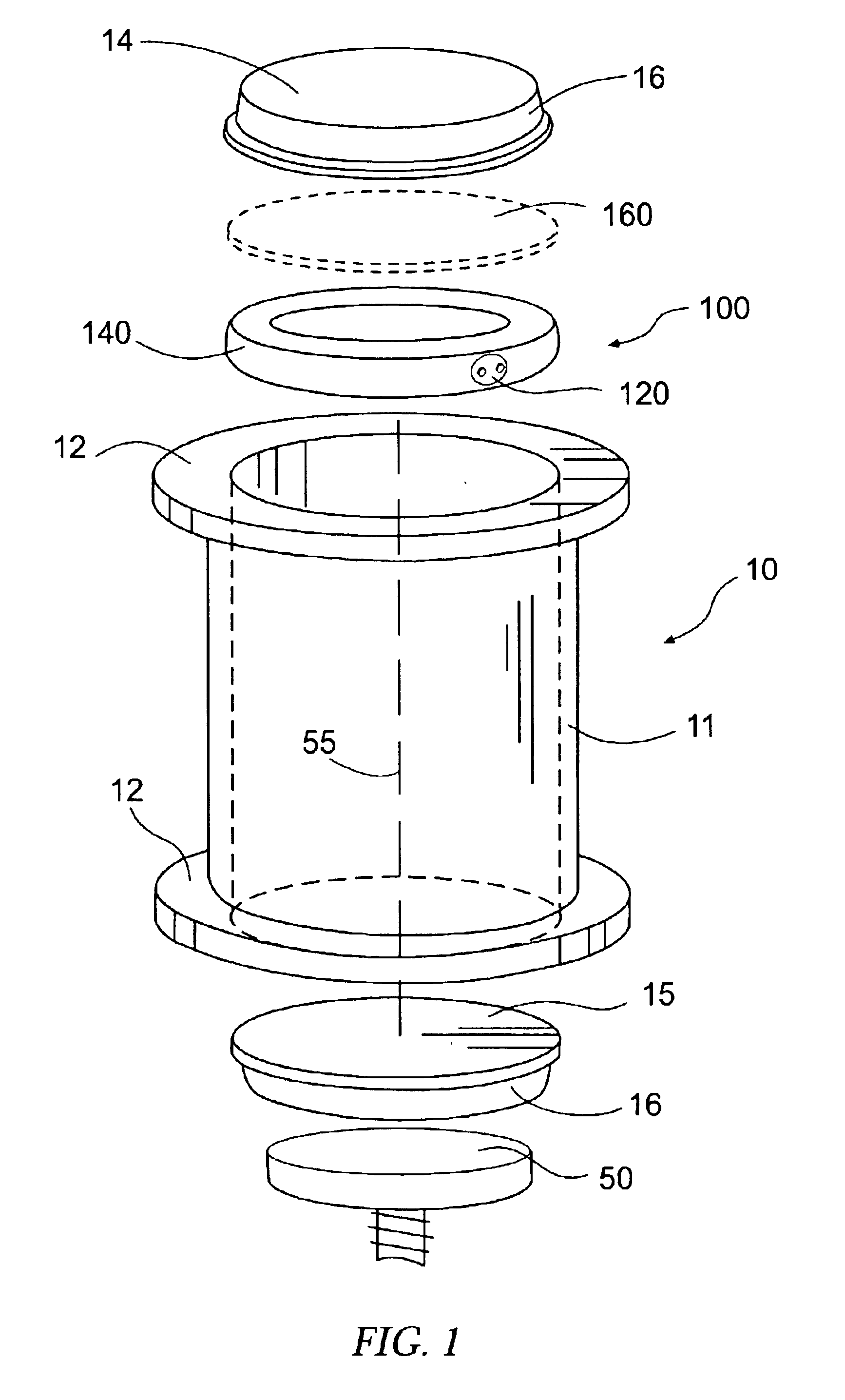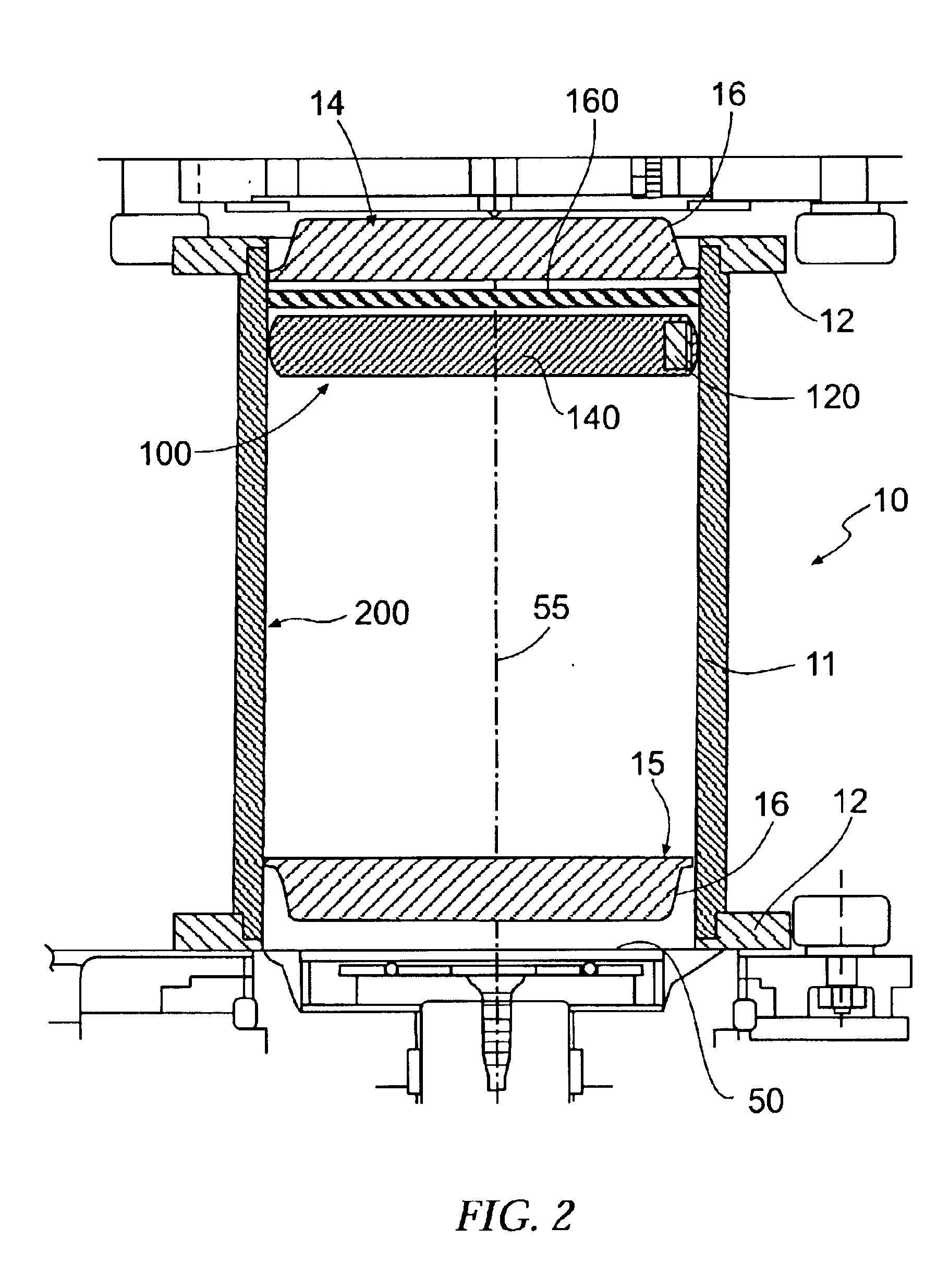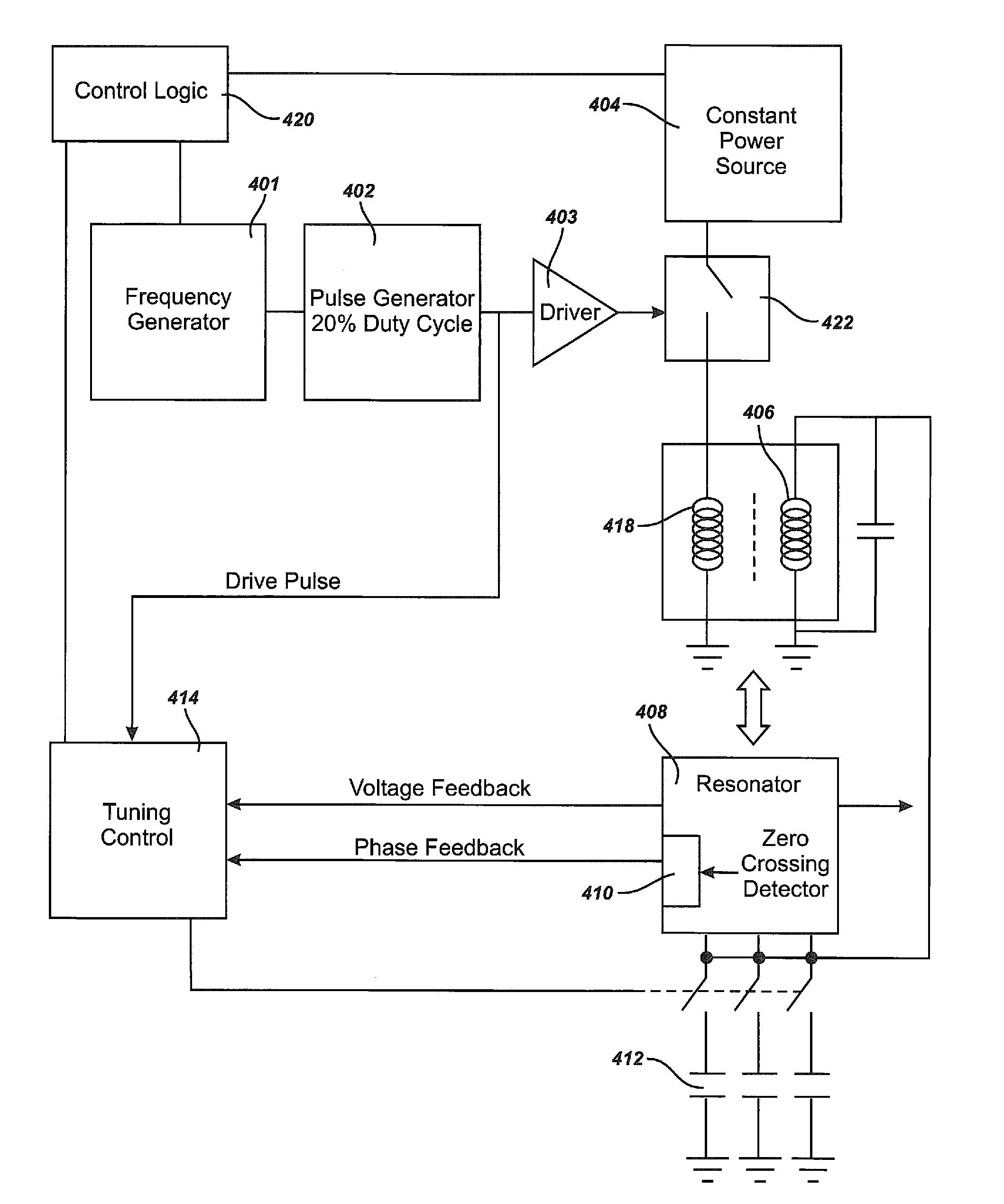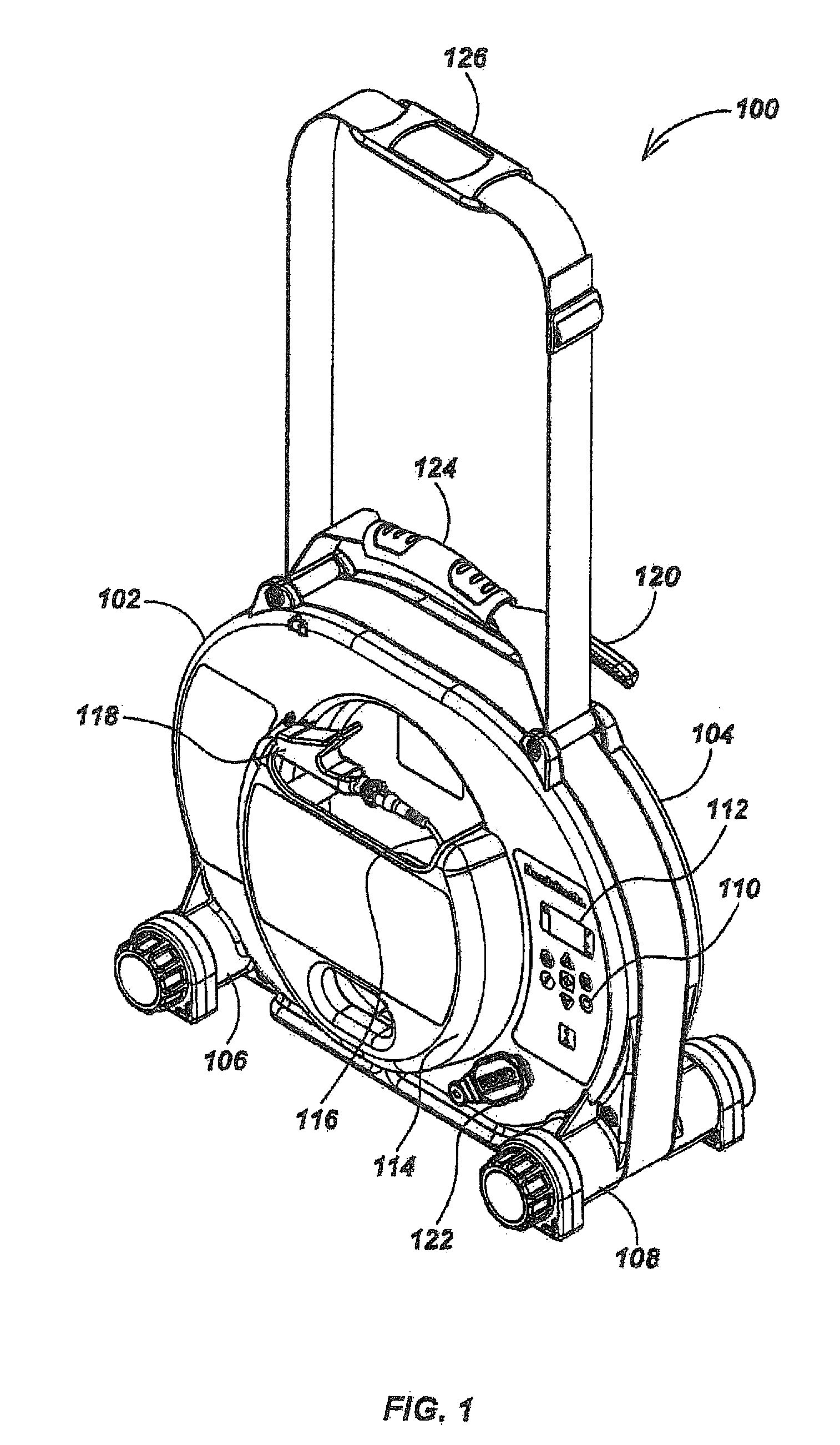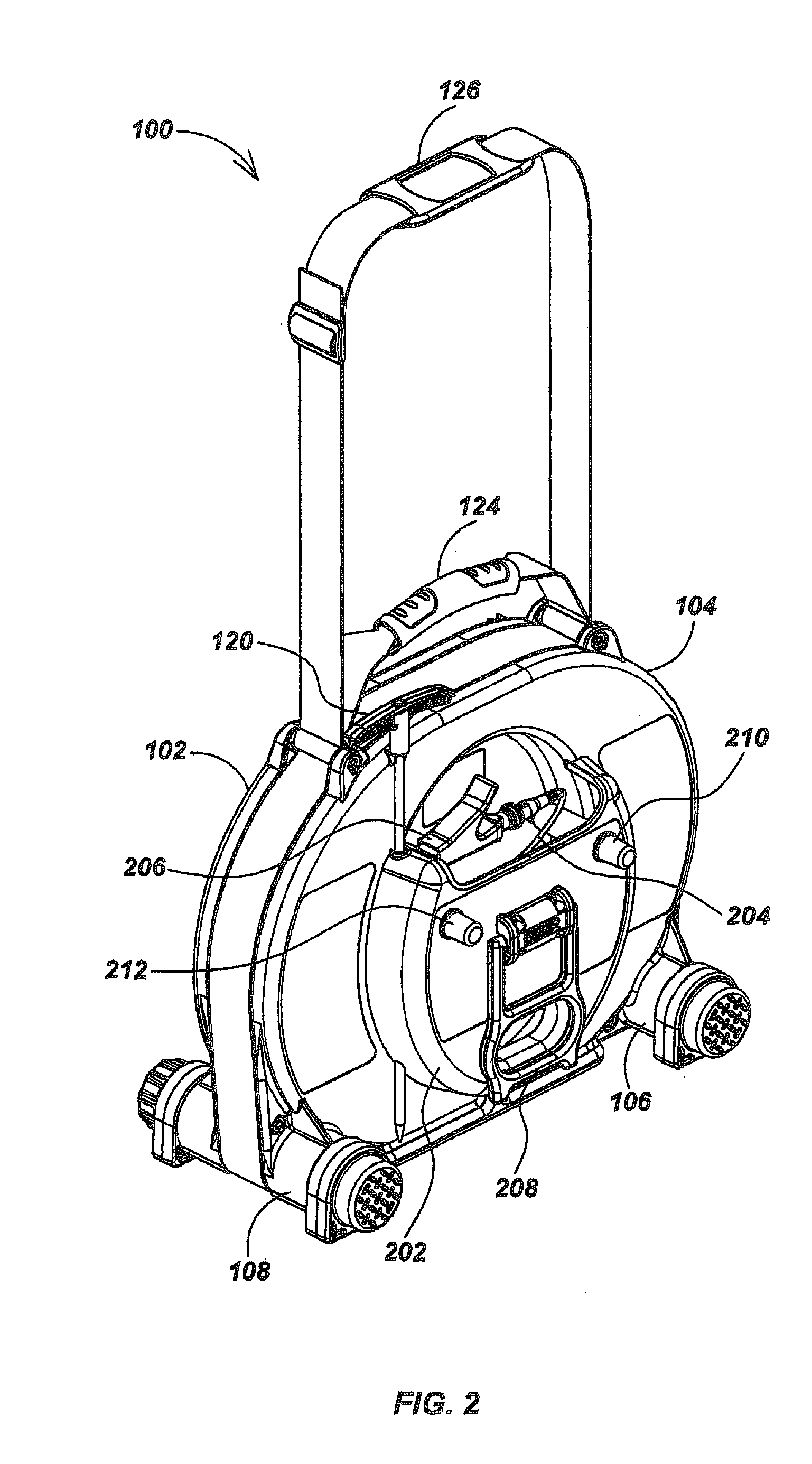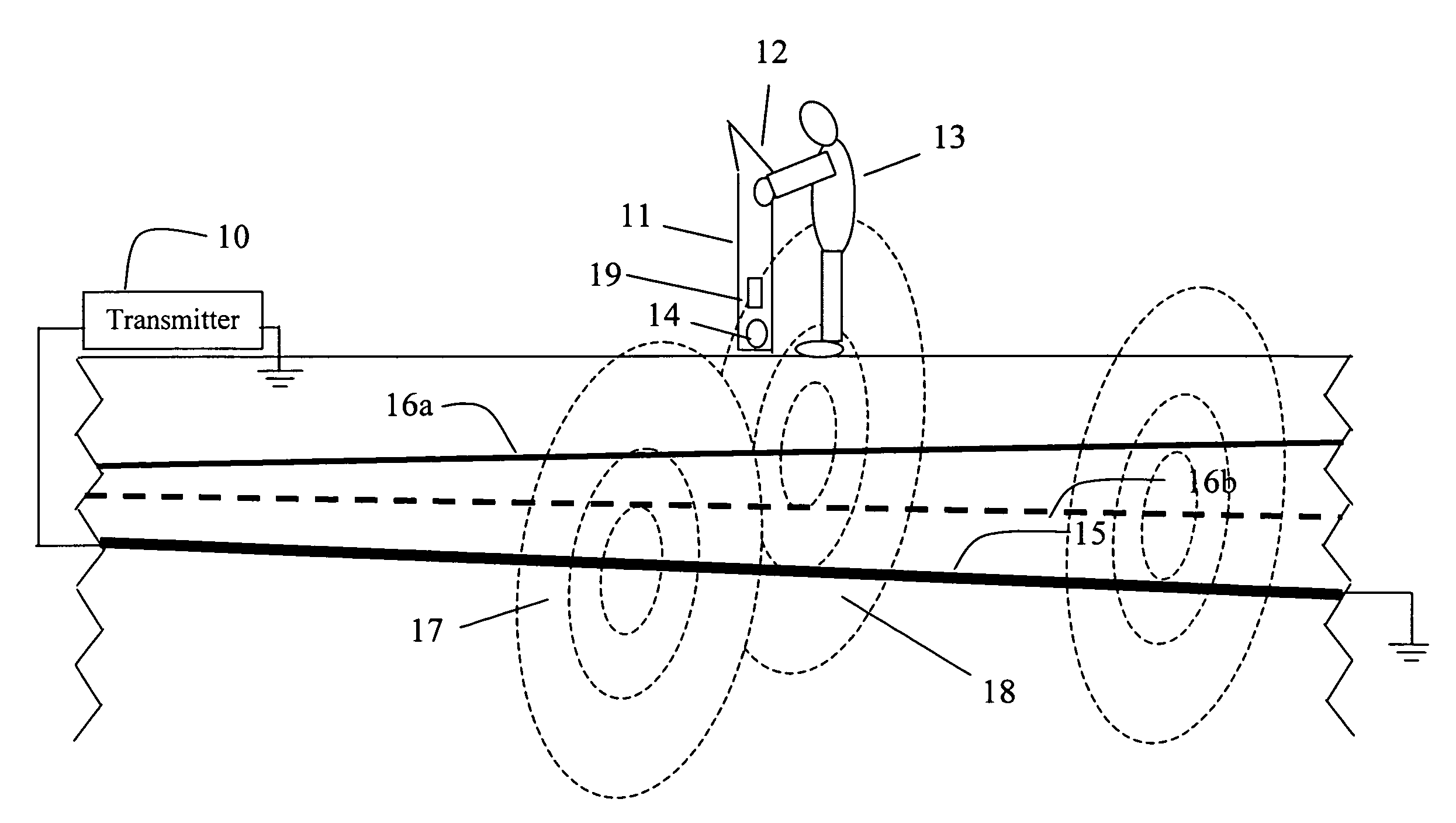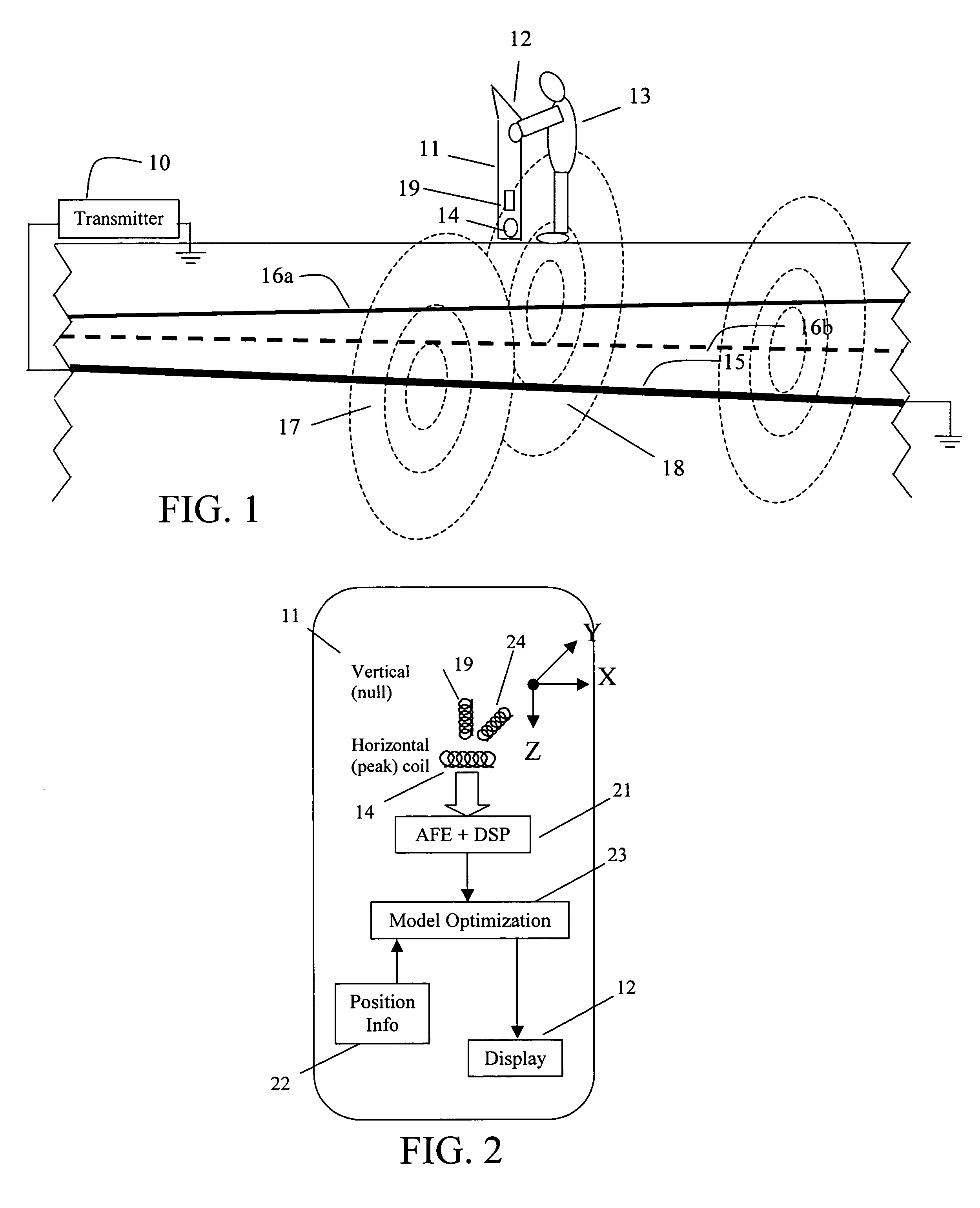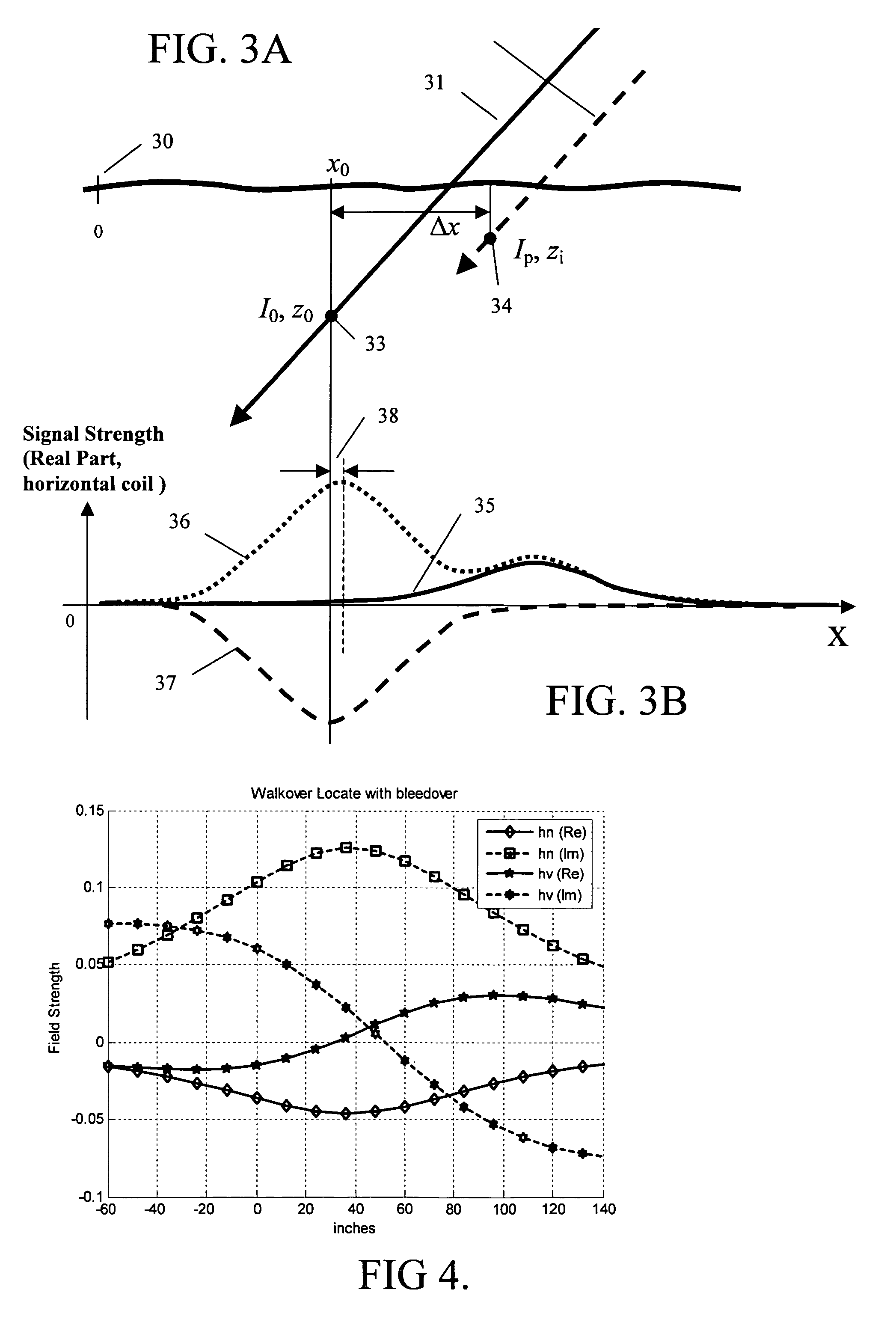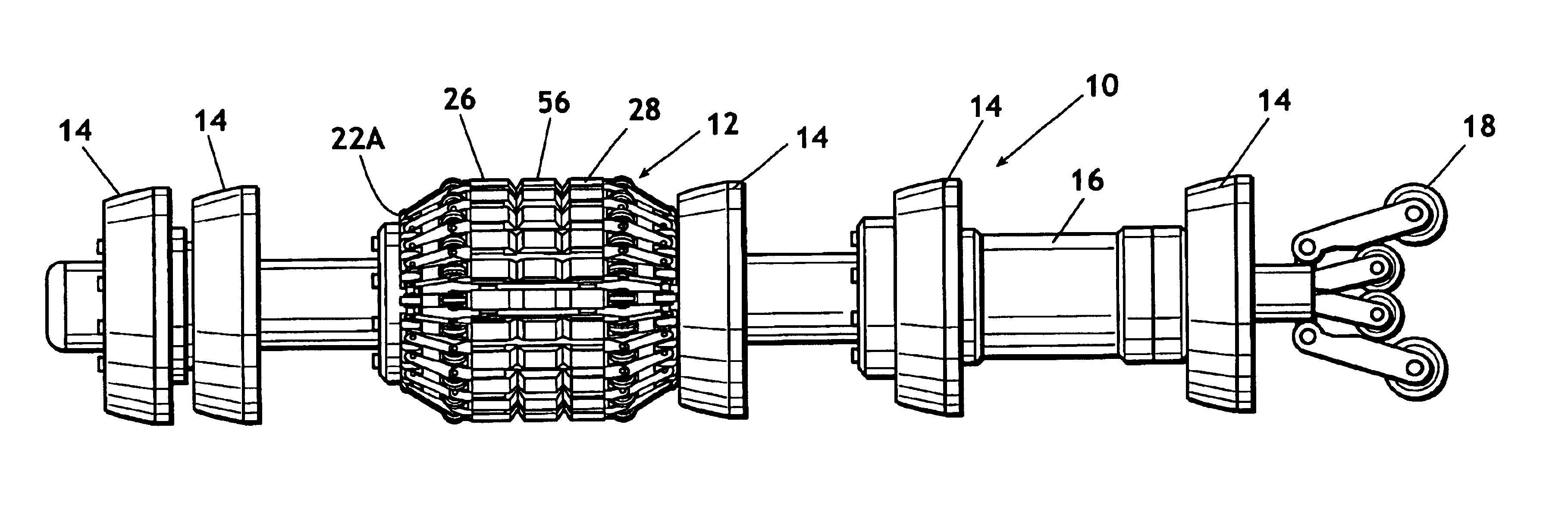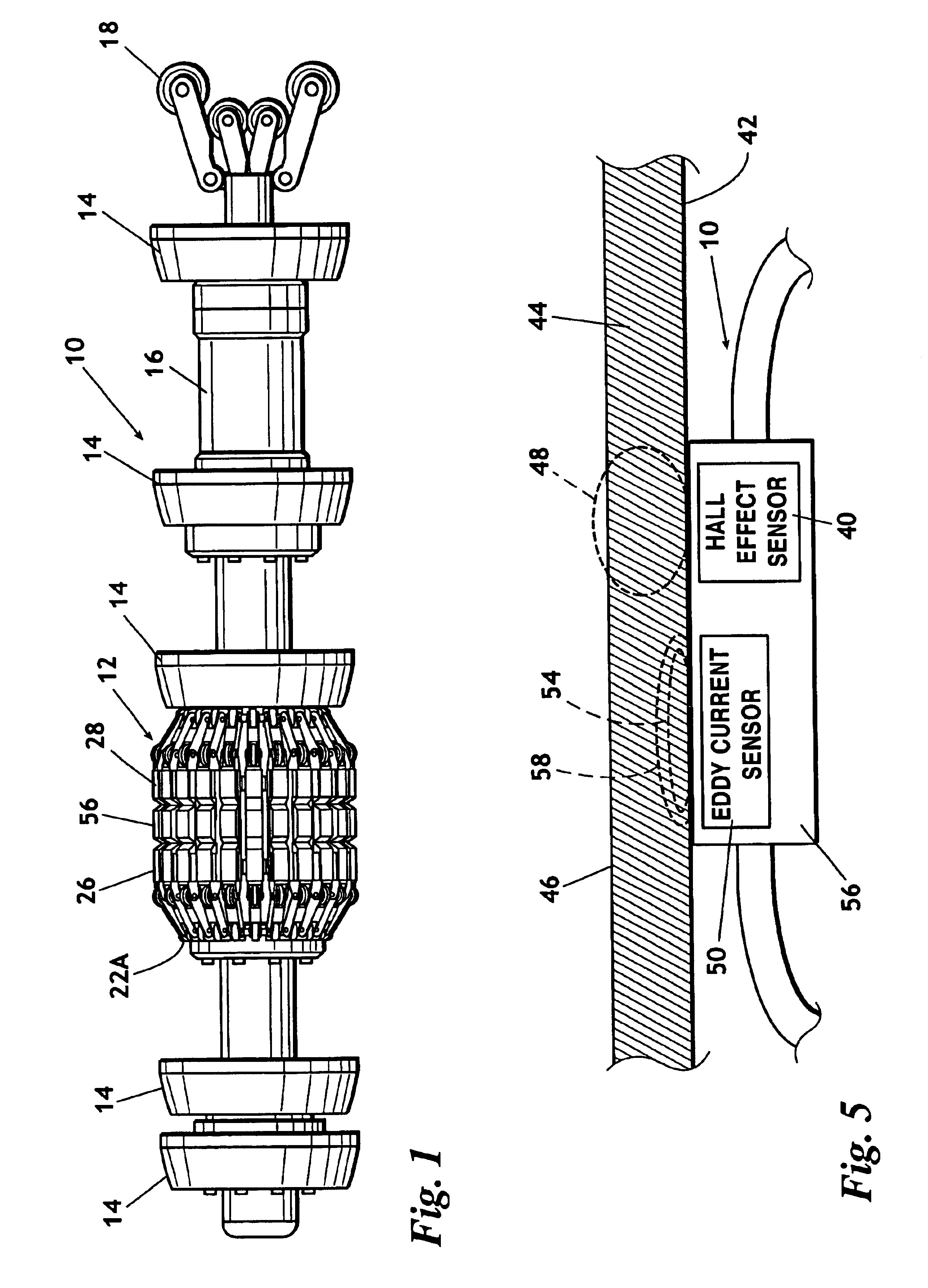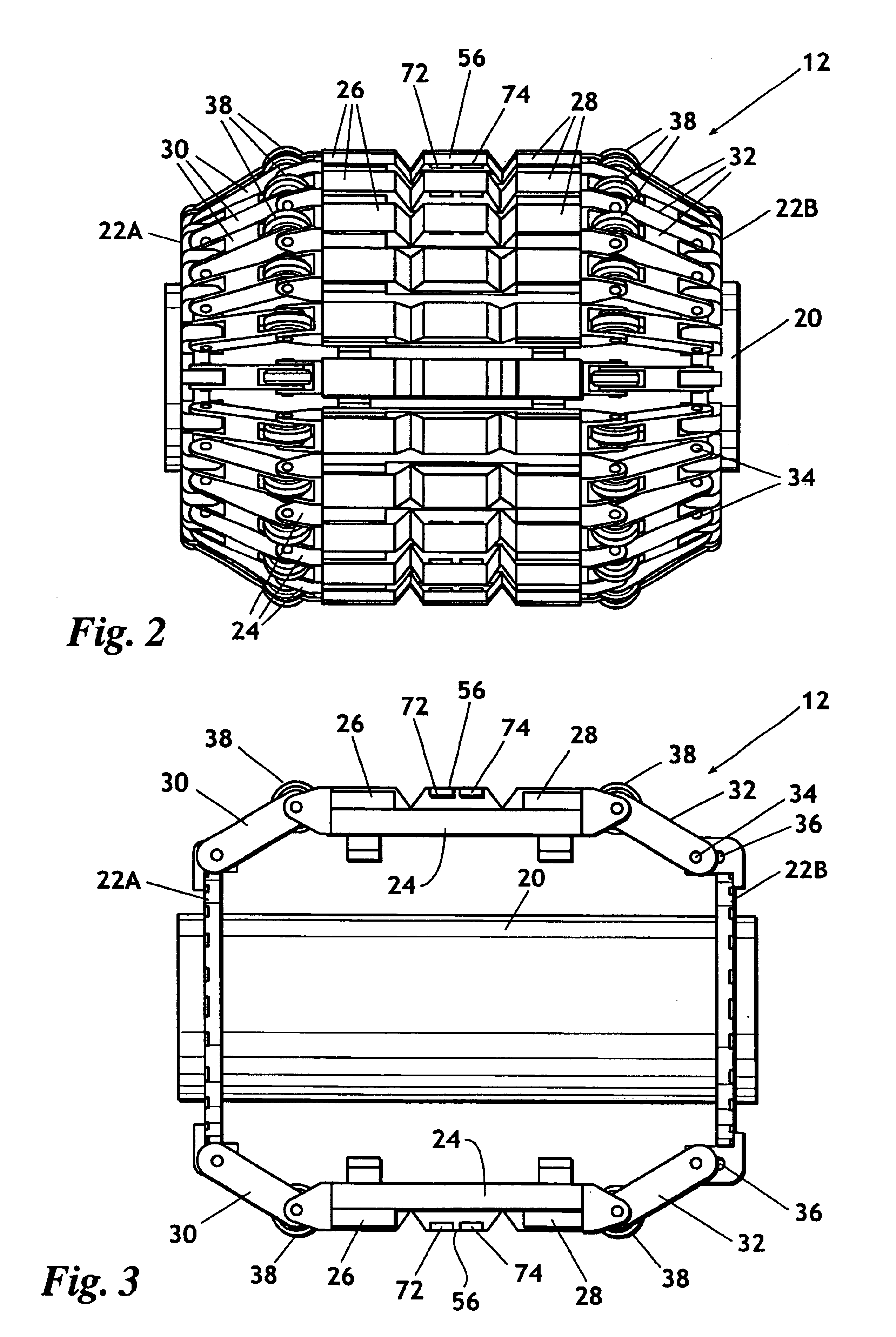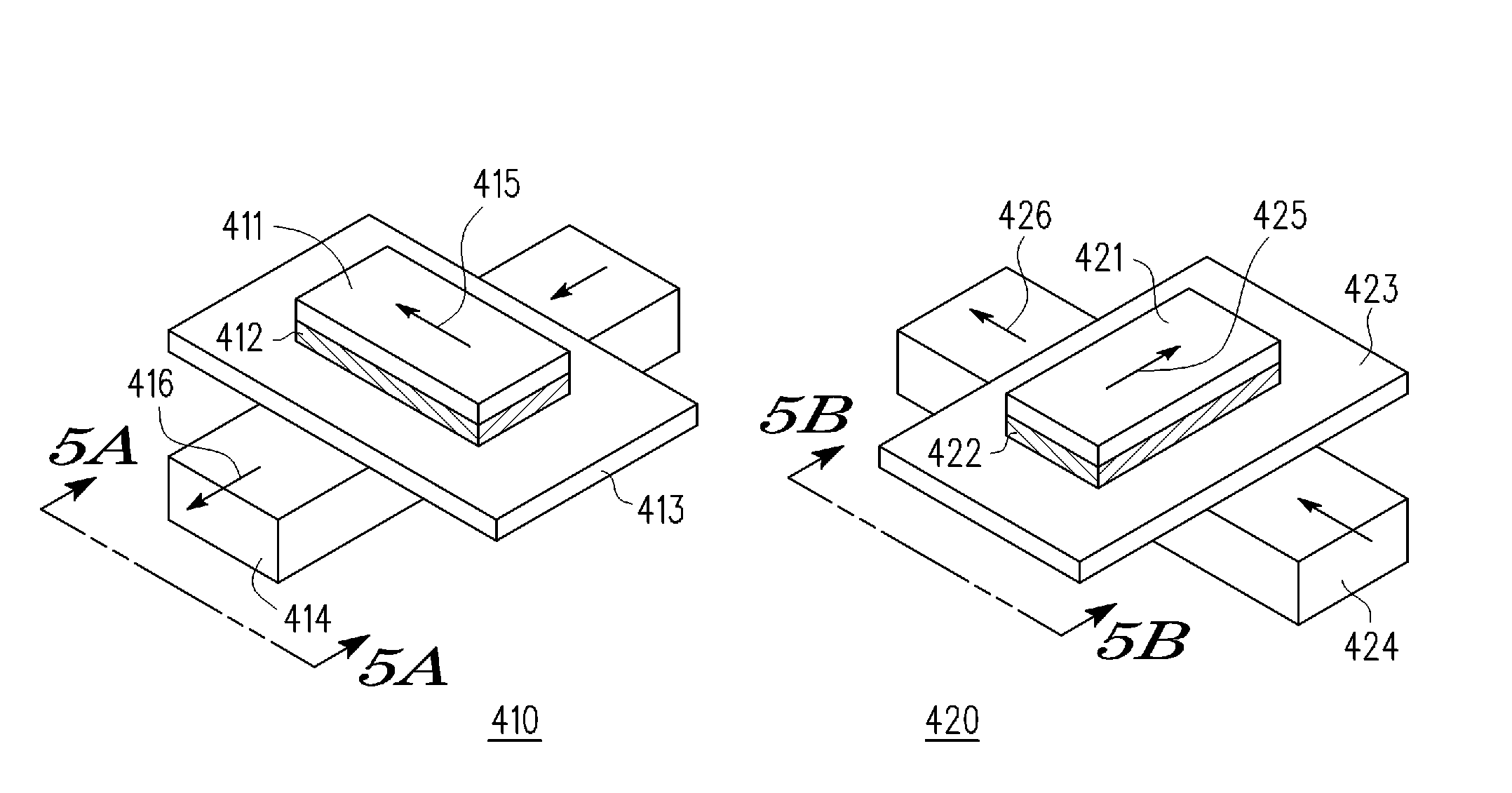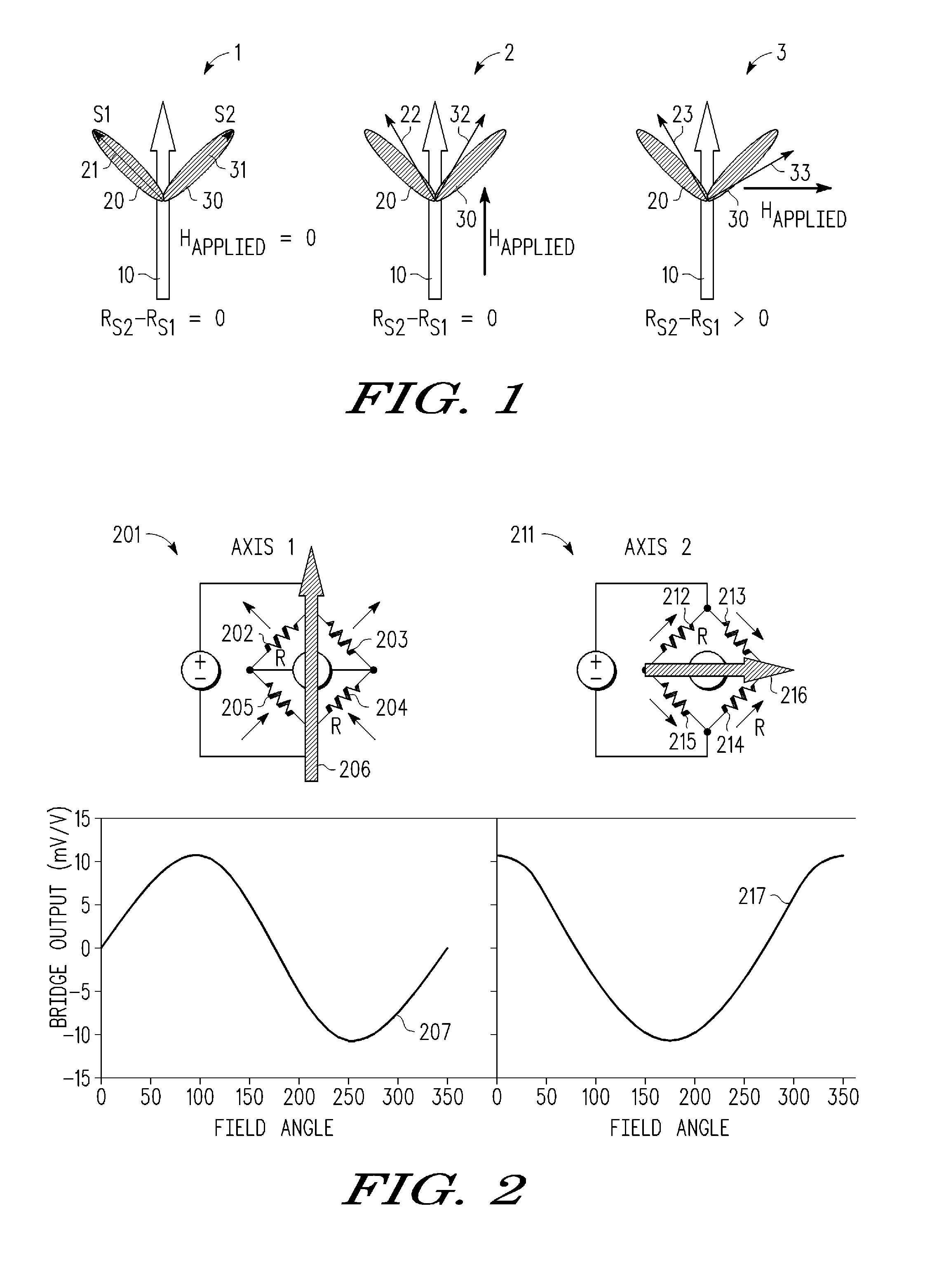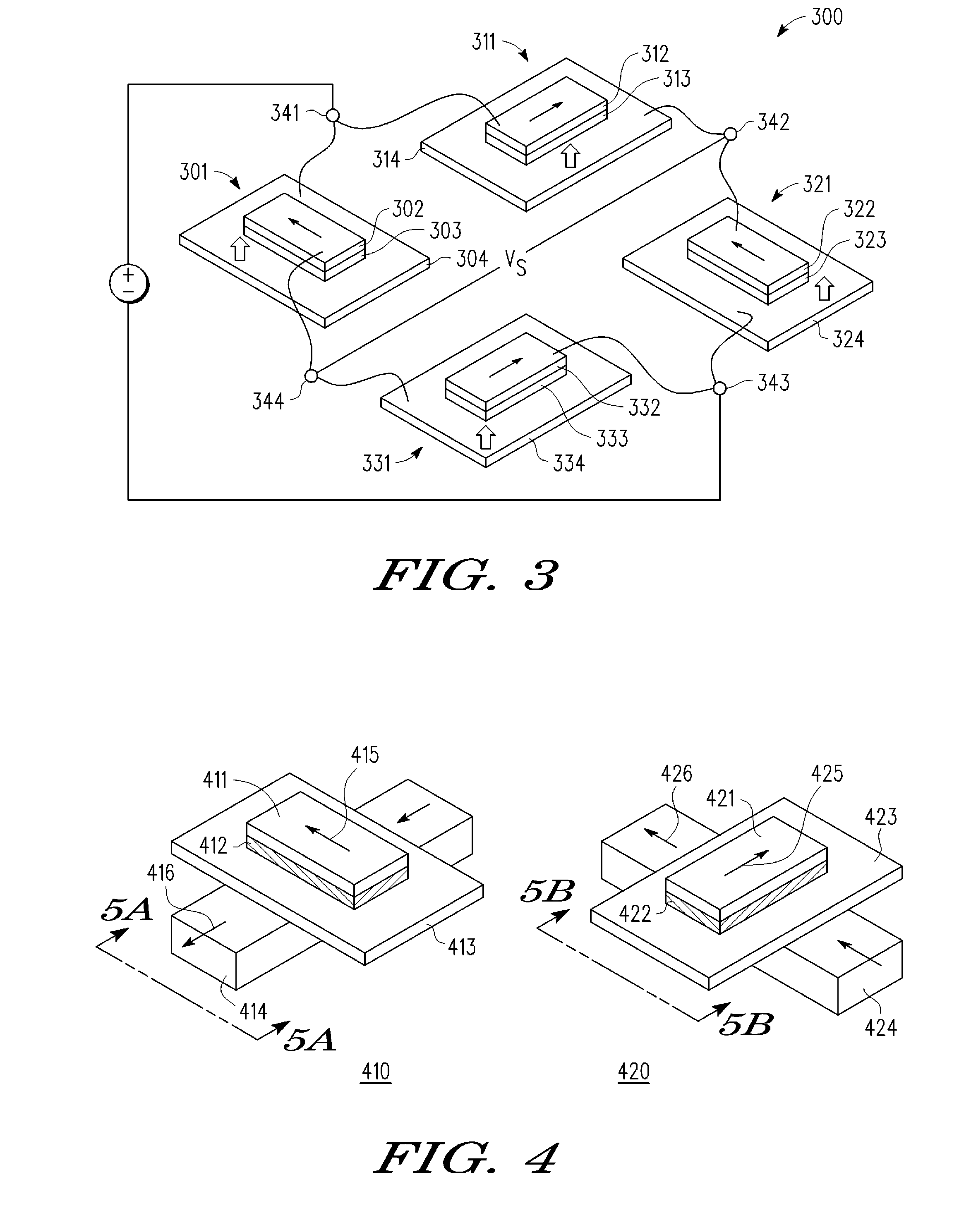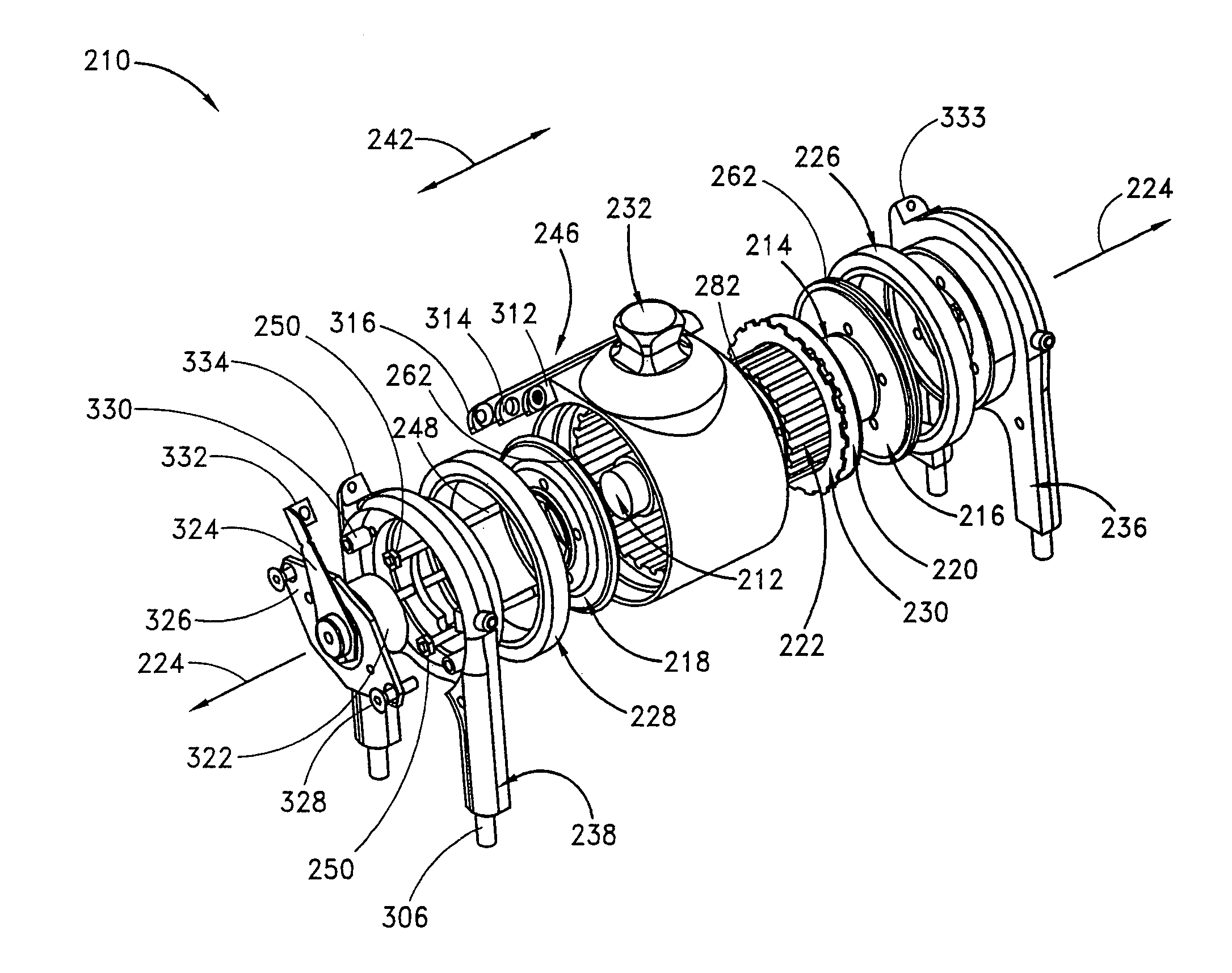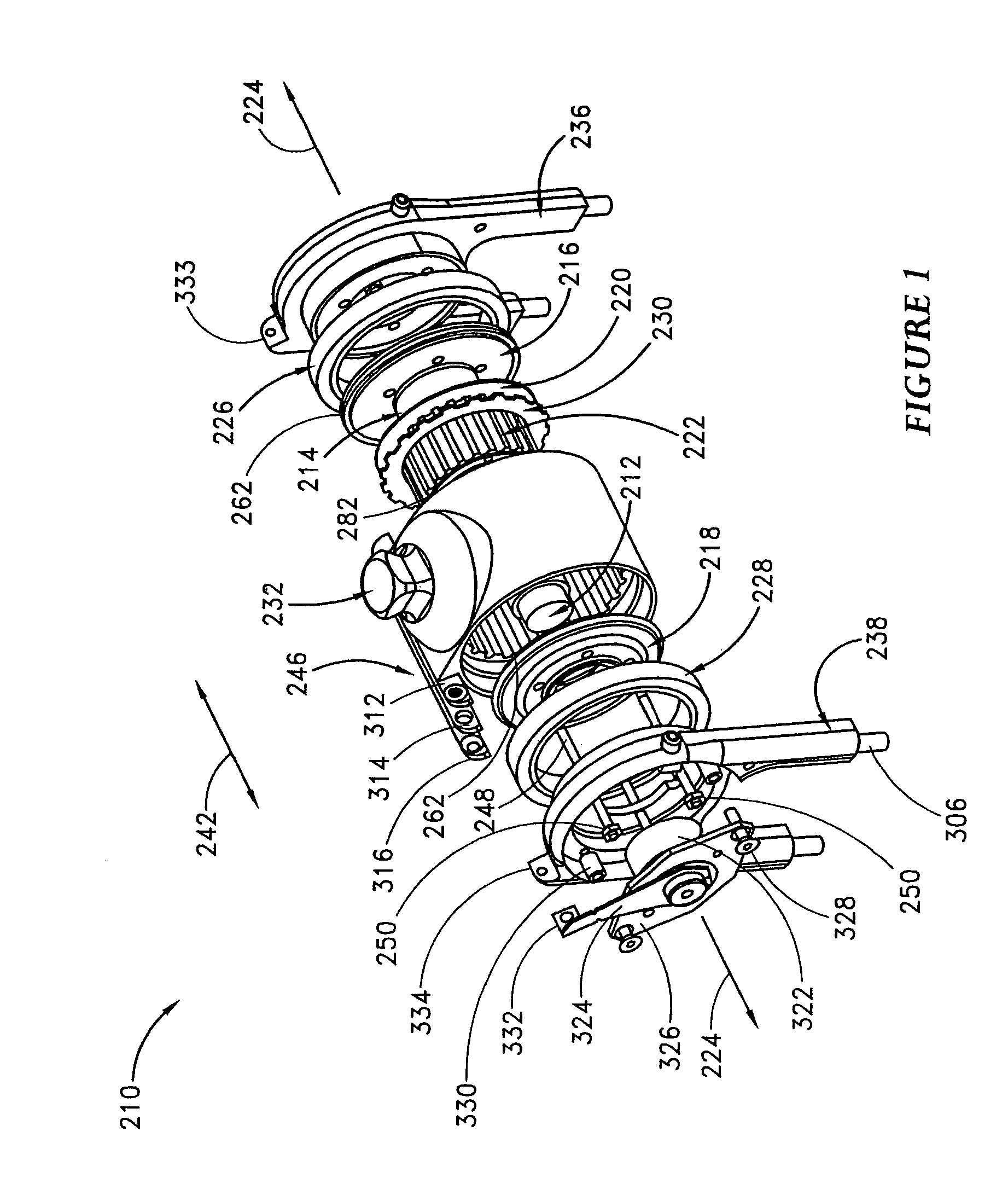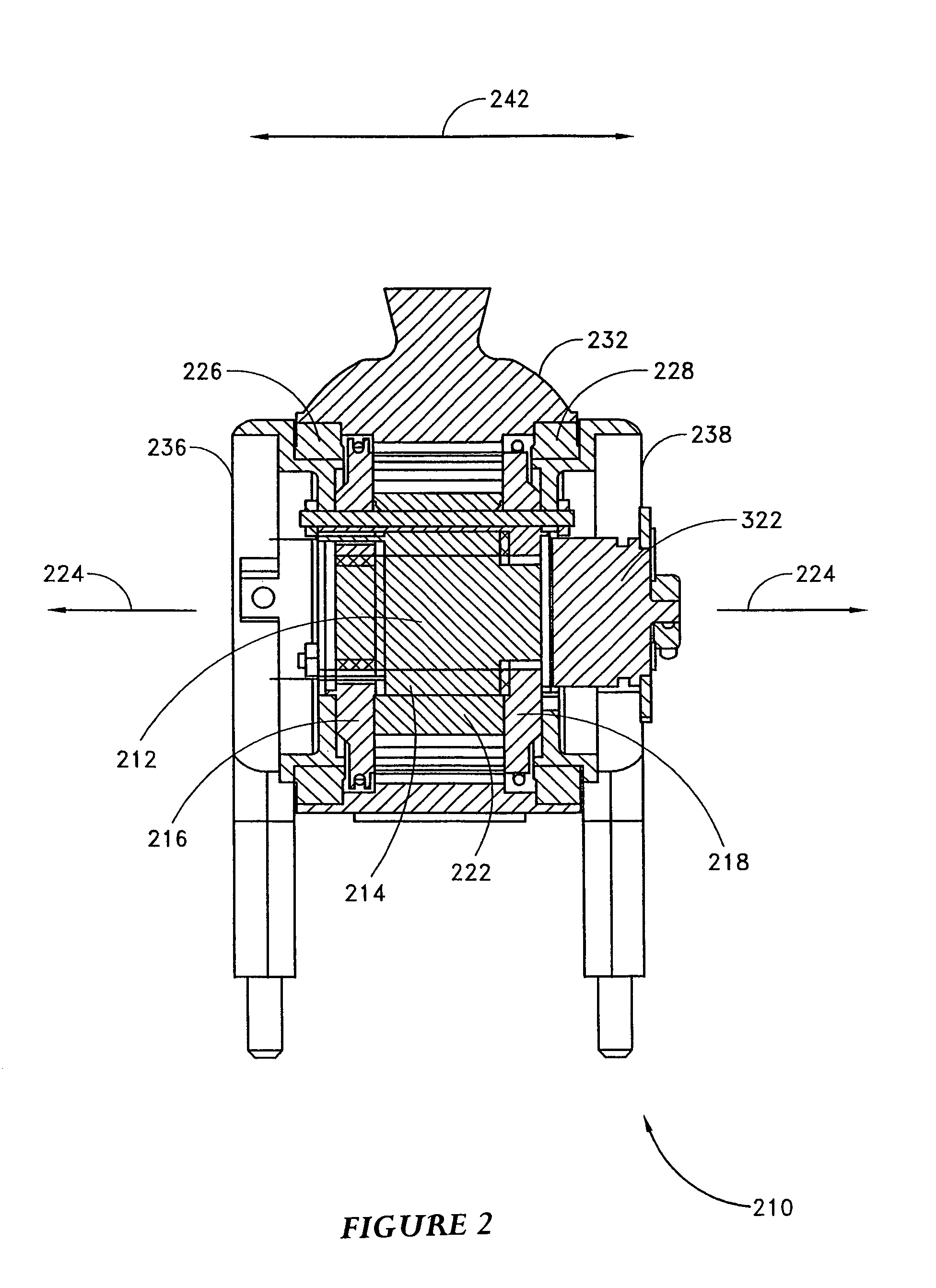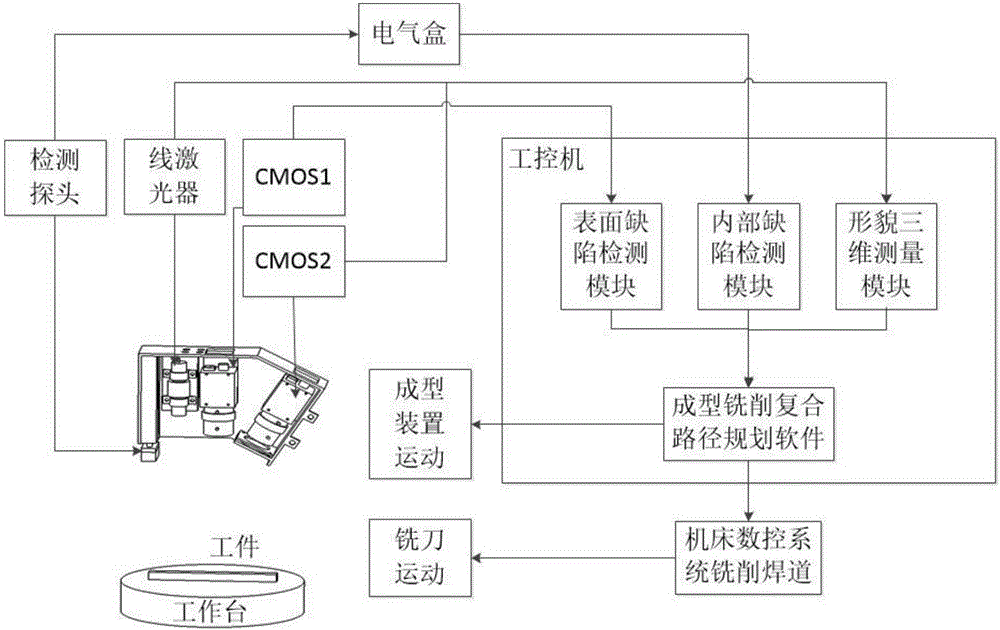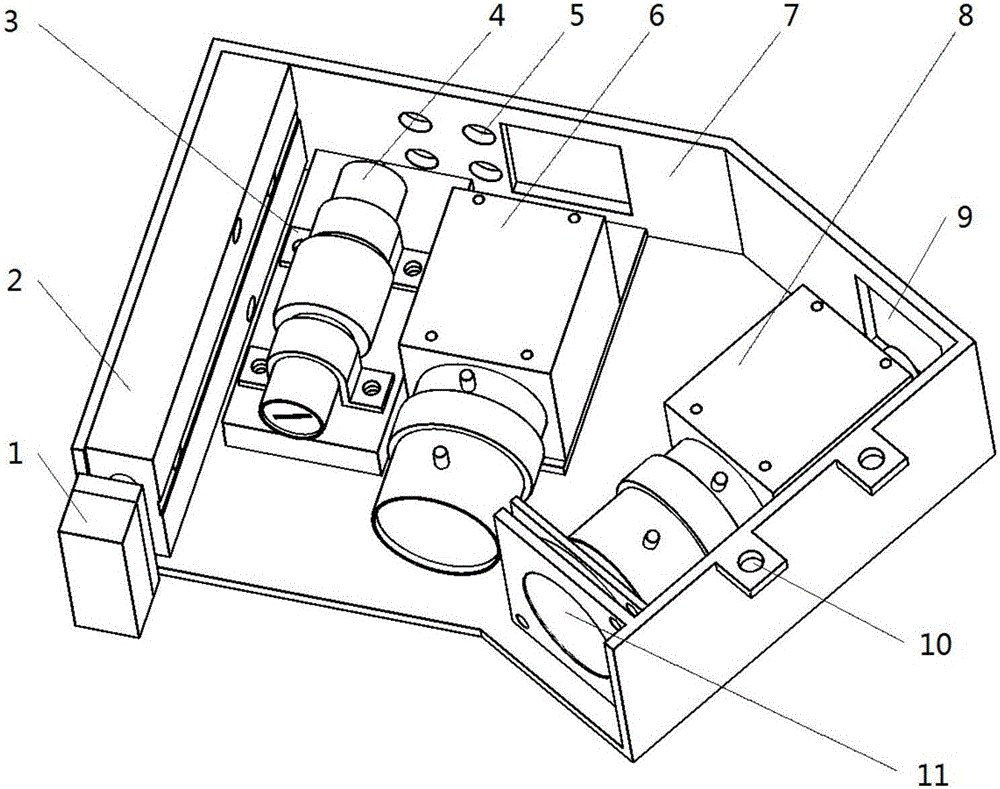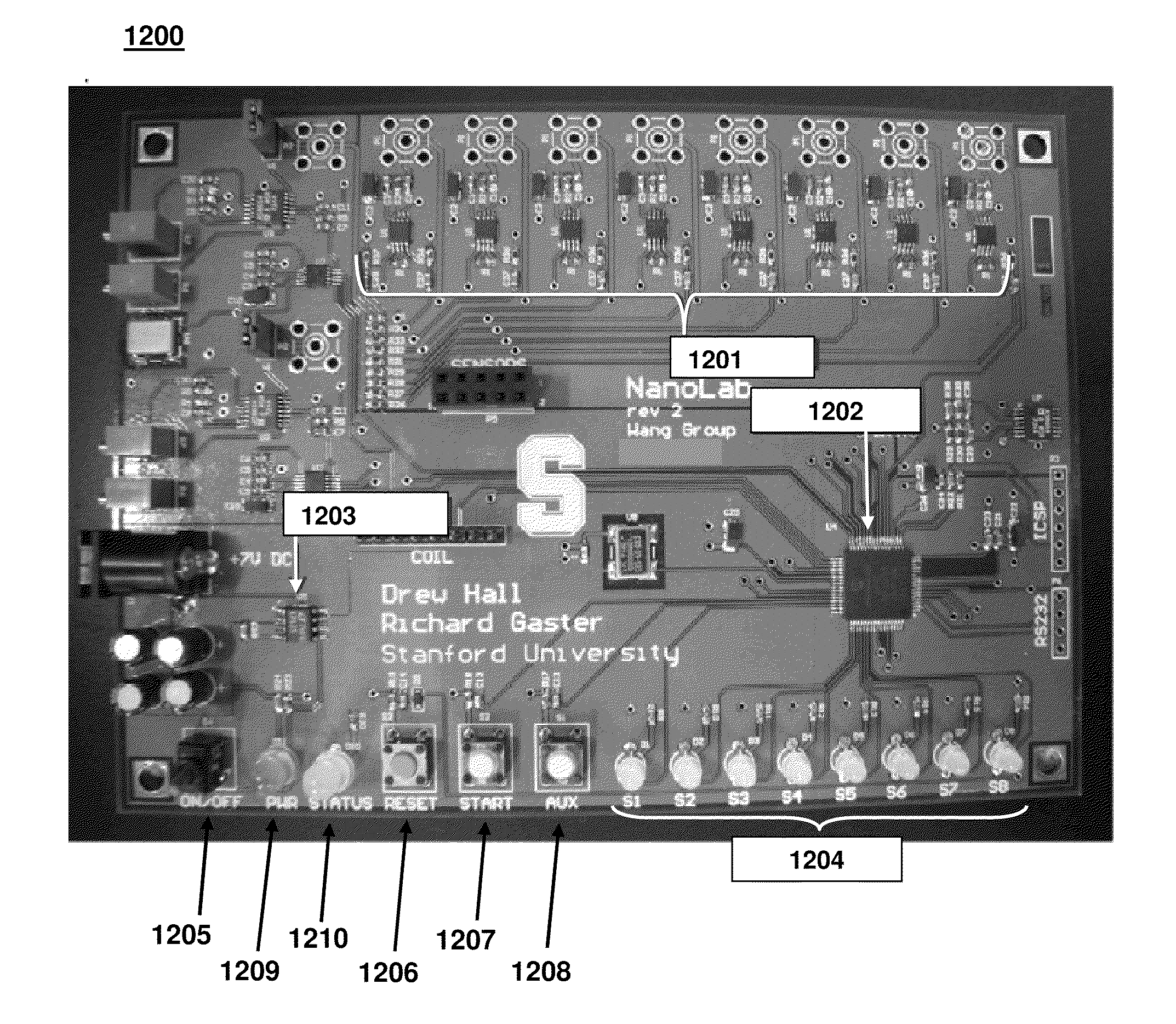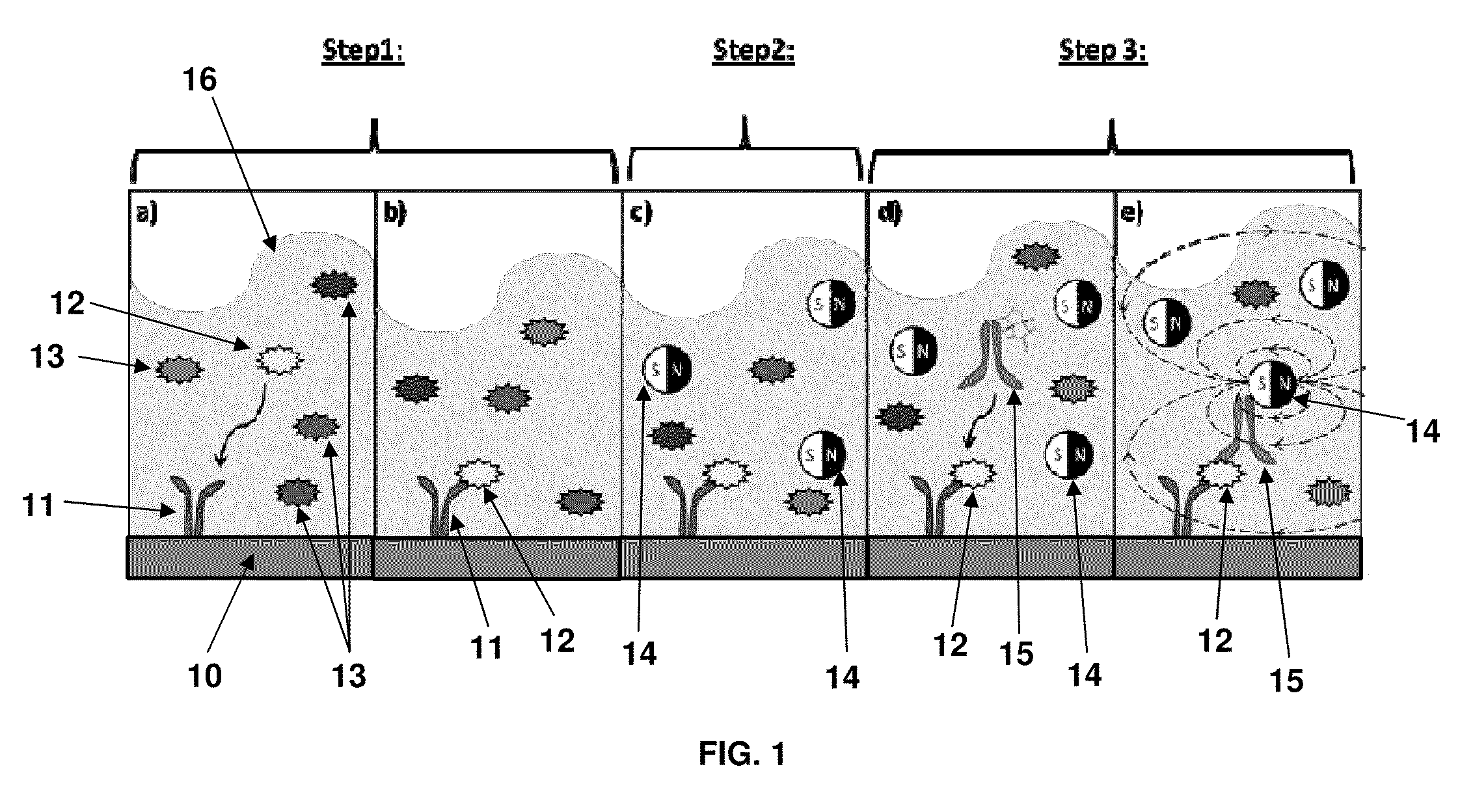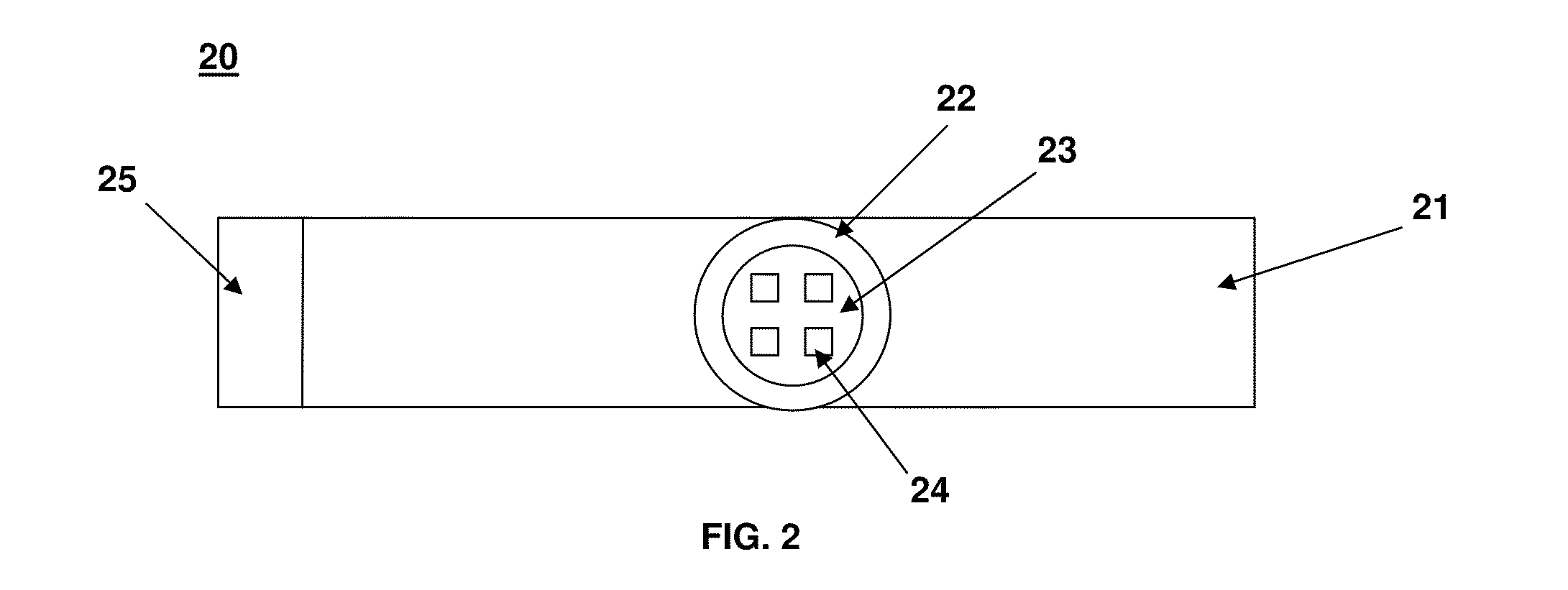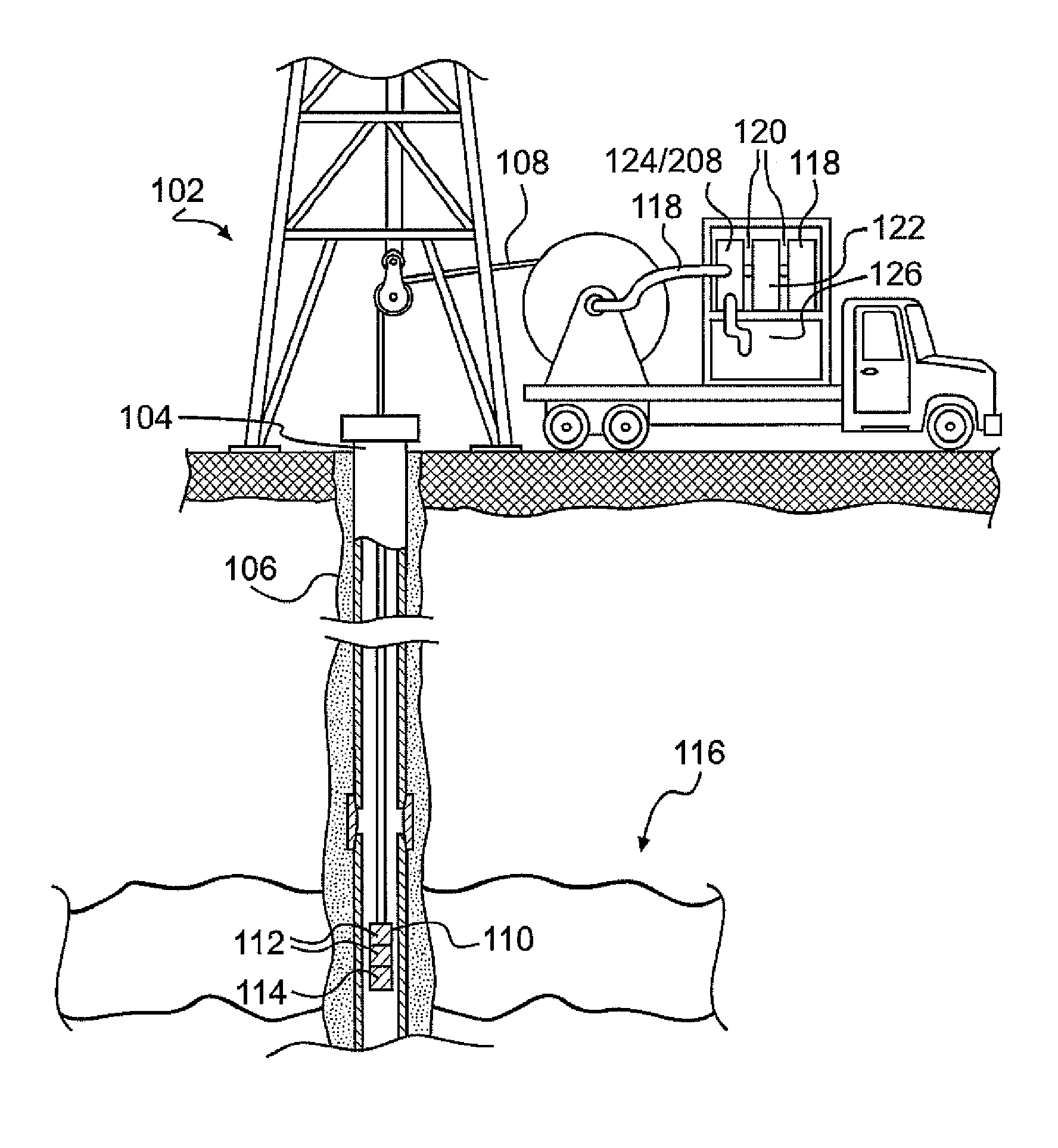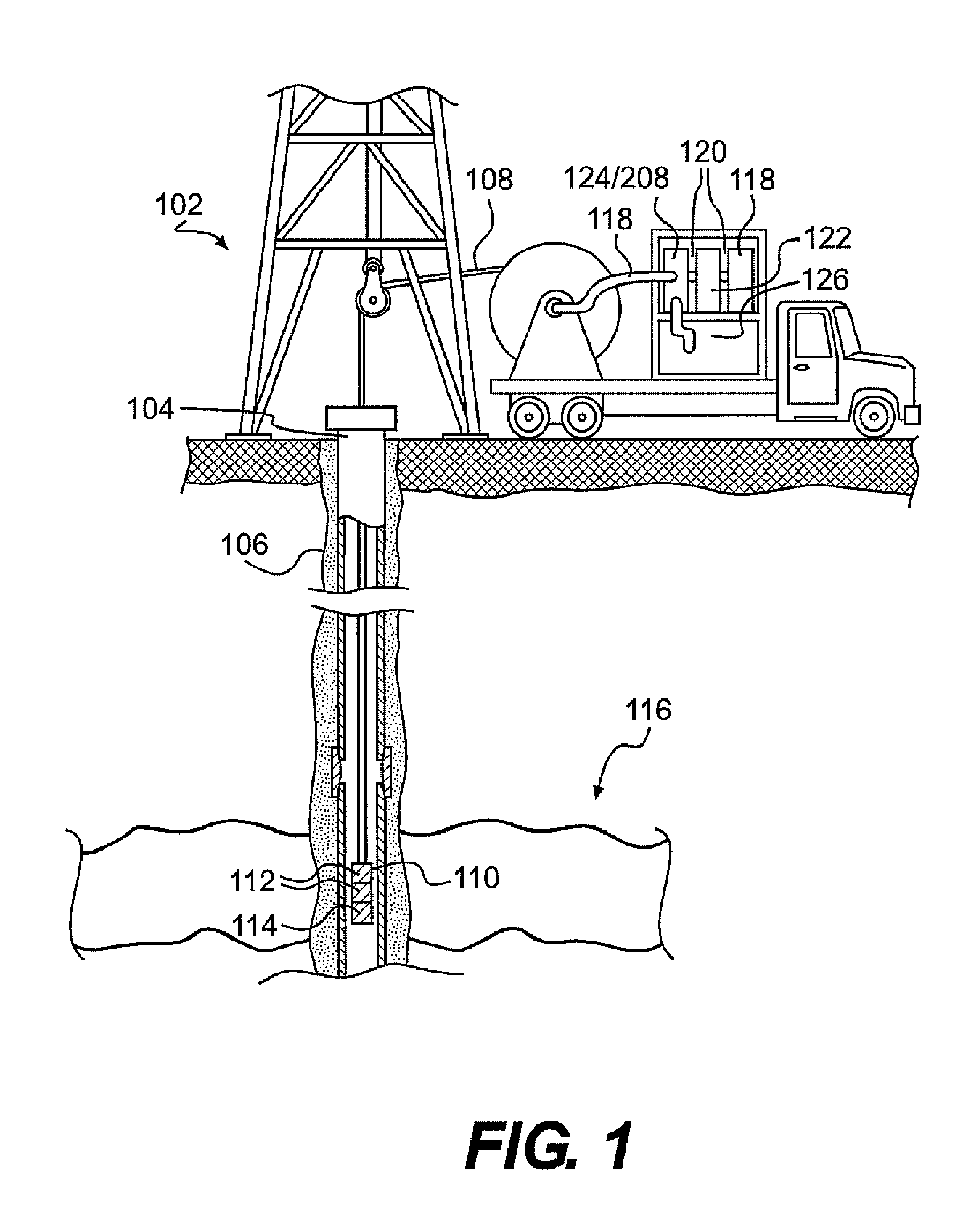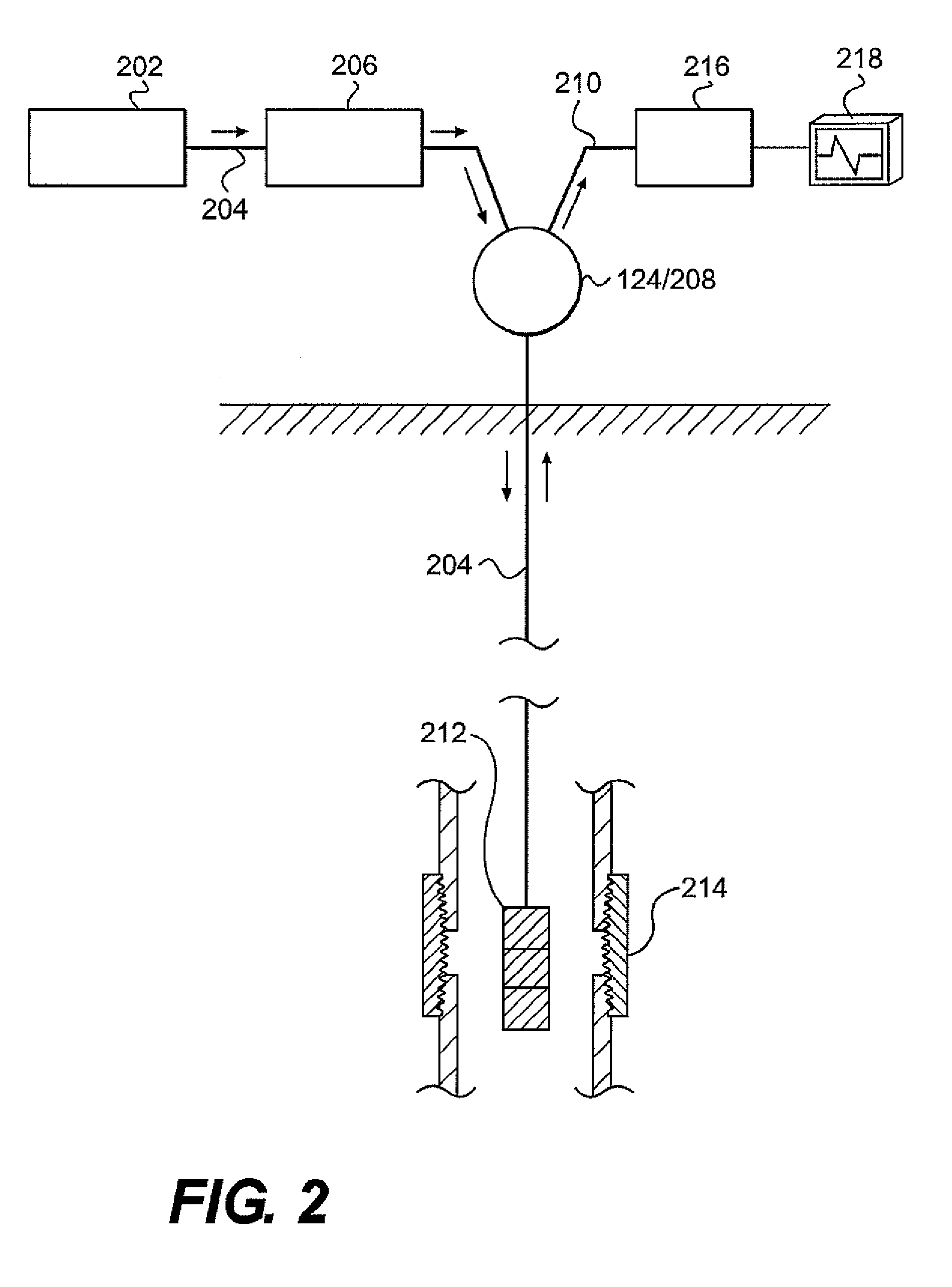Patents
Literature
Hiro is an intelligent assistant for R&D personnel, combined with Patent DNA, to facilitate innovative research.
7731results about "Material magnetic variables" patented technology
Efficacy Topic
Property
Owner
Technical Advancement
Application Domain
Technology Topic
Technology Field Word
Patent Country/Region
Patent Type
Patent Status
Application Year
Inventor
Hybrid 3-D probe tracked by multiple sensors
InactiveUS6611141B1Surgical navigation systemsNavigation by speed/acceleration measurementsMultiple sensorQuantum system
This invention is a system that tracks the 3-dimensional position and orientation of one or more bodies (20) in a volume by a light based as well as at least one non-light based mensuration sub-system. This overcomes the limitation of light based mensuration systems to the necessity of the bodies (20) to be in constant line-of-sight of its light based position sensors (26). The invention possesses most of the accuracy and stability of its light based position measurement sub-system (24, 26, 72), but can also work without direct line of sight either for short periods of time or within certain parts of the volume. It does so by incorporating other sensors (31, 34), such as inertial or magnetic, which are frequently recalibrated against the light based sub-system (24, 26, 72) while the bodies (20) are visible by the light based sub-system (24, 26, 72).
Owner:STRYKER CORP
Telemetry method and apparatus using magnetically-driven MEMS resonant structure
InactiveUS20070236213A1High quality factorImprove reliabilityMagnetic property measurementsDiagnostic recording/measuringIntraocular pressurePressure sense
A telemetry method and apparatus using pressure sensing elements remotely located from associated pick-up, and processing units for the sensing and monitoring of pressure within an environment. This includes remote pressure sensing apparatus incorporating a magnetically-driven resonator being hermetically-sealed within an encapsulating shell or diaphragm and associated new method of sensing pressure. The resonant structure of the magnetically-driven resonator is suitable for measuring quantities convertible to changes in mechanical stress or mass. The resonant structure can be integrated into pressure sensors, adsorbed mass sensors, strain sensors, and the like. The apparatus and method provide information by utilizing, or listening for, the residence frequency of the oscillating resonator. The resonant structure listening frequencies of greatest interest are those at the mechanical structure's fundamental or harmonic resonant frequency. The apparatus is operable within a wide range of environments for remote one-time, random, periodic, or continuous / on-going monitoring of a particular fluid environment. Applications include biomedical applications such as measuring intraocular pressure, blood pressure, and intracranial pressure sensing.
Owner:LAUNCHPOINT TECH
Particle Analyzing Systems and Methods Using Acoustic Radiation Pressure
ActiveUS20090029870A1Material analysis using sonic/ultrasonic/infrasonic wavesMagnetic measurementsAcoustic radiation forceAcoustics
Owner:LIFE TECH CORP
Electromagnetic imaging method and device
InactiveUS20090195244A1Accurate electromagnetic imageImprove accuracyElectric/magnetic detection for well-loggingMagnetic property measurementsTransmitter coilElectrical resistivity and conductivity
An electromagnetic imaging method for electromagnetically measuring physical parameters of a pipe CJ, CC by means of a plurality of measuring arrangement ZMA, MCMA, MonMa, ImMA comprising a plurality of transmitter coil ZTX, LFTX, DTX and a plurality of receiver coil ZRX1, ZR2, MRX, MC, PRX1, PRX2, PRX3, PRX4, PRX5, PRX6, PRX7, PRX8, PRX9, PRX10, PRX11, PRX12, PRX13, PRX14, PRX15, PRX16, PRX17, PRX18, the transmitter coils and receiver coils being associated so as to form the plurality of measuring arrangement, the plurality of measuring arrangement being adapted to be positioned into the pipe and displaced through the pipe, the physical parameters being measured for a plurality of position along the pipe, the method comprising the steps of:a) determining a first value of an average ratio of magnetic permeability to electrical conductivity and a first value of an average inner diameter of the pipe Z-MES,b) determining an average electromagnetic thickness of the pipe MC-MES,c) determining a second value of the average ratio of magnetic permeability to electrical conductivity and a second value of the average inner diameter of the pipe Mon-MES according to excitation frequencies which are substantially lower than the excitation frequencies used to determine the first values Z-MES,d) determining a first image EMTIM of the pipe electromagnetic thickness and the pipe defects Im-MES,e) discriminating the defects at an inside perimeter of the pipe from the defects at an outside perimeter of the pipe Dis-MES, andf) forming a corrected first image IOFIM of the pipe taking into account a position of the defects.
Owner:SCHLUMBERGER TECH CORP
Gas main robotic inspection system
InactiveUS6917176B2Programme-controlled manipulatorMaterial analysis using sonic/ultrasonic/infrasonic wavesComputer moduleComputer terminal
The present invention provides a long-range, untethered, live, in-pipe inspection system that includes a self-propelled train having a plurality of modules; joint members for interconnecting adjacent modules, data collection components, and wireless communication components for transmitting collected data and receiving control messages. The module-train includes, generally, at least one, and preferably two drive modules, at least one power module and an electronics module. The train may additionally include at least one support module, which may be interposed between the power and electronics modules. In one embodiment of the invention, there are two drive modules, one at each terminal end of the train, two power modules, one adjacent to each drive module, two support modules, one adjacent to each power module, and one central electronics and computing module.
Owner:CARNEGIE MELLON UNIV
Precision metal locating apparatus
InactiveUS6541966B1Magnetic property measurementsDiagnostic recording/measuringMagnetic field gradientMetallic Object
Apparatus for detecting a metal object comprises a transmitter for generating a pulsed or an alternating magnetic field in the vicinity of the metal object to be detected and a detector for detecting the secondary magnetic field induced in the metal object by the transmitted magnetic field. The detector measures at least three magnetic field gradient components of at least first order of the secondary magnetic field. The apparatus also comprises a processor for determining at least one of the position or the electro-magnetic cross-section or an estimate of the shape of the metal object from the measured magnetic field spatial gradient components. The processor fits the measured components to dipole, multiple dipole, multipole, or extended source models. In a preferred embodiment, the invention may comprise three or more pairs of gradiometric coils, or other sensing means. The detector measures at least five magnetic field gradient components of at least first order, and one or more components of the secondary magnetic field. The detector may be coils, or any other magnetic sensors. The processor enters pre-determined criteria to discriminate against detection of metal objects of no interest or to selectively detect metal objects of interest.
Owner:QINETIQ LTD
Handheld cleaning appliance
InactiveUS7931716B2Reduce cloggingLess prone to failureCombination devicesAuxillary pretreatmentHand heldWaste management
A cleaning appliance includes a main body, a filter and an interlock. The main body includes an airflow generator, a separating apparatus separating dirt and dust from an airflow, and a flowpath between the separating apparatus and the airflow generator delimited by a wall. The interlock has a first part located on the filter and a second part located on the main body outside the flowpath, arranged to communicate remotely when the filter is correctly located in the pre-determined position. The interlock is arranged selectively to allow or prevent operation of the airflow generator depending upon the relative separation between the first and second parts. By providing an interlock which has first and second parts which communicate remotely, the second part located on the main body can be isolated from the airflow path so that the second part is not subject to dirt and dust carried by the airflow.
Owner:DYSON TECH LTD
Hall sensor array for measuring a magnetic field with offset compensation
InactiveUS6768301B1Less complicated to manufactureReduce signalingSolid-state devicesMagnetic field measurement using galvano-magnetic devicesSensor arrayVoltage source
A Hall sensor array for offset-compensated magnetic field measurement comprises a first and at least one additional pair of Hall sensor elements. Each Hall sensor element has four terminals, of which two act as power supply terminals for supplying an operating current and two act as measurement terminals for measuring a Hall voltage. Respective first supply terminals of each Hall sensor element are connected together and to a first terminal of a common voltage source and respective second supply terminals of each Hall sensor element are connected together and to a second terminal of the common voltage source so that the common voltage source supplies an operating current for the Hall sensor elements. The Hall sensor elements are operated in the spinning current mode so that the offset voltages of the Hall sensor elements approximately cancel one another out in a revolution so that the Hall signal contributions which actually depend on the magnetic field remain.
Owner:FRAUNHOFER GESELLSCHAFT ZUR FOERDERUNG DER ANGEWANDTEN FORSCHUNG EV
Device for measuring the motion of a conducting body through magnetic induction
InactiveUS6850053B2Improve cooling effectReduce thermal noiseAcceleration measurement using interia forcesMagnetic-field-controlled resistorsMeasurement deviceClassical mechanics
A device for measuring a motion of a moving electrically conducting body is disclosed. A magnetic field generated by, for example, electromagnets or permanent magnets, penetrates at least a partial area of the moving body. Two or more measuring devices are arranged outside the magnetic field to measure a measurement magnetic field that is induced by electrical currents in the moving body. The measuring devices are arranged essentially symmetrically with respect to the magnetic field generating means or the moving body. The measurement magnetic field represents at least one motion variable of the moving body. The measuring device is thereby no longer subjected to the temperature-dependent variations of the exciting field.
Owner:SIEMENS AG
Techniques for ultrahigh density writing with a probe on erasable magnetic media
Techniques for ultrahigh density writing on an erasable magnetic medium include using a micromachined mechanism having two probes for writing to the medium. Use of the two probe embodiment eliminates the need to change the magnetic orientation of the probe. In another embodiment, a single probe is provided which is heated to the vicinity of its Curie temperature to enable the magnetic orientation of the probe to be switched. The probe may be heated to its Curie temperature through the use of a heating element or a focused laser. In another embodiment of the present invention, either the magnetic orientation of the probe or the magnetic orientation of the medium may be switched through the combination of a static magnetic field, a radio frequency magnetic field and, under certain circumstances, the magnetic field of the probe. In all cases, the writing techniques enable information to be written to a magnetic medium in a manner which enables the information to be erased and the medium rewritten.
Owner:CARNEGIE MELLON UNIV
Compact stud finder
InactiveUS6844713B2Efficiently finding locationEasy to keepResistance/reactance/impedenceCurrent/voltage measurementCapacitanceCapacitor
A pocket-sized object finder has a compact housing containing a battery, circuitry and a capacitor plate for detecting an object hidden behind a wall. The battery powered circuitry includes multiple signal indicators that illuminate in a serial manner when the object is being detected. The signal indicators are successively tapered and are mounted at a front side of a tapered end of the housing. The capacitor plate is disposed in the housing along its rear wall and is responsive to variations in capacitance that occur as the object finder is brought near and over the object. The compact housing defines a cavity with a width that is no more than two inches and one third its length. A removable access door, with a pocket clip, at an end opposite the signal indicators allows access to the battery within the housing cavity.
Owner:ACTUANT CORP
Inspection apparatus and method
ActiveUS20100207620A1Current/voltage measurementMagnetic property measurementsCounter-electromotive forceEddy-current testing
An apparatus and method are disclosed for detecting flaws in electrically conductive materials by observing properties of the back-EMF of the eddy current field generated by driving magnetic flux through the object to be examined. The input signal may include sweeps at several frequencies, and may do so at one time under the principle of wave superposition. The sectorial observations of eddy currents summations may be compared to a known datum for a defect free material, the presence of anomalies in eddy field back EMF divergence tending to provide an indication of an irregularity in the underlying eddy field, and hence in the underlying material itself. The portable unit may have a number of different configurations depending on the nature of the object to be examined, be it a flat or large radius plate, a flange, a rail, or some other structural element.
Owner:ATHENA IND TECH
Surgical navigation enabled imaging table environment
A system for integrating radiolucent tracking sensors in a medical table, table mat, or surgical drape of a surgical navigation system, allowing the surgical navigation system to be less obtrusive in a surgery environment. A plurality of radiolucent magnetoresistance sensors are integrated into a table, table mat, or surgical draping of a surgical navigation system for improving surgical navigation workflow and eliminating image artifacts from intraoperative images. The plurality of radiolucent magnetoresistance sensors may be located within a table or adjacent to a table surface.
Owner:STRYKER EURO OPERATIONS HLDG LLC
Omnidirectional eddy current probe and inspection system
InactiveUS7015690B2Magnetic property measurementsConverting sensor output electrically/magneticallyElectricityElectrical connection
An omnidirectional eddy current (EC) probe includes at least one EC channel having a first and a second sense coil that are offset in a first (x) and a second (y) direction and overlap in at least one of the directions (x,y). At least one drive coil is configured to generate a probing field for the EC channel in a vicinity of the sense coils. An omnidirectional EC inspection system includes an omnidirectional EC array probe (ECAP) that includes a number of EC channels and drive coils. Each EC channel includes first and second sense coils with opposite polarities. The drive coils have alternating polarities. Electrical connections perform differential sensing for respective EC channels. Corrective drive coils are disposed at respective ends of the EC channels and generate probing fields. An eddy current instrument is connected to the omnidirectional ECAP and receives differential sensing signals from the EC channels.
Owner:GENERAL ELECTRIC CO
Magnetic field sensor apparatus
ActiveUS7474093B2Force measurement by measuring magnetic property varationAmplifier modifications to reduce noise influenceStress sensorAcoustics
A magnetic field sensor apparatus includes a first magnetic field sensor and a second magnetic field sensor, arranged on a substrate in a spaced manner from each other, a first temperature sensor with an output for a first temperature sensor signal, a second temperature sensor with an output for a second temperature sensor signal, a first stress sensor with an output for a first stress sensor signal, and a second stress sensor with an output for a second stress sensor signal, wherein the first temperature sensor and the first stress sensor are arranged more closely to the first magnetic field sensor or at a location identical with the first magnetic field sensor, and the second temperature sensor and the second stress sensor are arranged more closely to the second magnetic field sensor than to the first magnetic field sensor or at a location identical with the second magnetic field sensor.
Owner:INFINEON TECH AG
Integrated coiled tubing defect detection device
PendingCN109682881AAccurate defect detectionAccurate detection of wall thicknessElectric/magnetic contours/curvatures measurementsUsing electrical meansCoiled tubingEngineering
The invention provides an integrated coiled tubing defect detection device. The coiled tubing defect detection device comprises an upper half detection unit and a lower half detection unit, and a passage for coiled tubing to pass through is formed between the two detection units after the two detection units are matched and assembled with each other, and internally provided with a magnetism generating device, a magnetism leakage detection probe, an ellipticity detection probe and a guide device which are arranged on the two detection units; a measuring arm assembly kit for guiding the two detection units in moving along the coiled tubing is connected to the outsides of the detection units. The device can achieve real-time and precise detection of the wall thickness, outer diameter, ovalityand various physical defects such as corrosion, cracks, mechanical damage and pitting corrosion of coiled tubing columns.
Owner:YANTAI JEREH PETROLEUM EQUIP & TECH CO LTD
Systems and methods of loading fluid in a prosthetic knee
InactiveUS7198071B2Efficient loadingIncrease speedLiquid fillingOther chemical processesMagnetorheological fluidEngineering
The invention in some embodiments relates to systems and methods of loading fluid in a prosthetic knee. A vacuum fill technique is utilized in one embodiment to load magnetorheological fluid within small gaps in a chamber of a prosthetic knee. Advantageously, this allows for an efficient loading scheme thereby desirably allowing for faster manufacturing speed. Another advantage is that the magnetorheological fluid is substantially uniformly distributed within the small gaps thereby desirably providing consistent production.
Owner:OSSUR HF
Proximity detector
ActiveUS7199579B2Accurate trackingReduce signalingMagnetic property measurementsUsing electrical meansEngineeringOperation mode
A proximity detector includes a fine DAC and a coarse DAC, outputs of which are summed to provide a tracking signal for tracking a magnetic field signal. The proximity detector provides two mode of operation. In a first mode of operation the coarse and fine DACs operate in combination as one higher order DAC. In a second mode of operation, the coarse DAC is provided with one or more extra counts, allowing the tracking signal to move more rapidly to track a rapidly changing magnetic field signal. In another embodiment, the proximity detector also includes an offset circuit for bringing at least one of the magnetic field signal and the tracking signal towards the other one of the magnetic field signal and the tracking signal.
Owner:ALLEGRO MICROSYSTEMS INC
Formation resistivity measurement sensor contained onboard a drill bit (resistivity in bit)
A method and apparatus for obtaining a resistivity measurement of an earth formation surrounding a borehole in an MWD device uses an electrode for injecting current into the earth formation and an electrode for obtaining a responsive signal from the borehole. The electrodes are located on the drill bit arm or blade. Measured resistivity values are obtained at the location of the drill bit. Measurements can be taken in both oil-based mud and water-based mud environments. Maximum or minimum resistivity can be used to best represent the resistivity of the surrounding formation.
Owner:BAKER HUGHES INC
Apparatus and method for eddy-current scanning of a surface to detect cracks and other defects
ActiveUS7560920B1Reduce changesCancel noiseMagnetic field measurement using flux-gate principleMagnetic property measurementsFlexible circuitsMultiplexer
An apparatus having a plurality of coils (e.g., numerous thin-film coils formed in an array on a flex circuit), each coil acting as an excitation unit that generates an alternating excitation magnetic signal; and as a sensor configured to detect an eddy-current signal's phase and amplitude changes relative to the excitation magnetic signal. In some embodiments, the apparatus electronically scans a surface (e.g., of a metal plate) by successively switching to individual ones of the plurality of excitation / sensing coils (using, e.g., an analog multiplexer) without physical movement in order to detect anomalous signal changes in a manner that reduces signal changes due to probe lift-off relative to the surface. In some embodiments, the coils are placed across a large area of interest, for inspection of a large surface area in a few seconds without moving the apparatus. This can provide high-sensitivity detection and an accurate indication of flaw locations.
Owner:INNOVATIVE MATERIALS TESTING TECH
Multi-mode electromagnetic target discriminator sensor system and method of operation thereof
A multi-mode electromagnetic target discrimination sensor system for transmitting an electromagnetic signal and receiving a reflected signal from at least one target is disclosed having a variable inductance antenna having a variable inductance transmitter and a variable inductance receiver for varying at least one of operating bandwidth, sensitivity and size of the antenna, a processor for alternating between a time domain operating mode and a frequency domain operating mode, and controlling the variation of the inductance of the variable inductance antenna based on a current operating mode, and at least one processing algorithm for receiving signals from the receiver, discriminating targets from the received signals, and outputting the discrimination results is disclosed.
Owner:THE JOHN HOPKINS UNIV SCHOOL OF MEDICINE
Method and apparatus for determining the angle of gyration and/or the pressure in a gyratory compactor
InactiveUS6868738B2Preparing sample for investigationMaterial strength using tensile/compressive forcesEngineering
An apparatus adapted to interact with a cylindrical mold for a gyratory compactor so as to determine a property of the gyratory compactor is provided, wherein the mold is adapted to contain a sample therein. Such an apparatus comprises a rigid disk-shaped plate defining an axis and a periphery, with the plate being adapted to be disposed within the mold. At least one sensing device is operably engaged with the plate, wherein the at least one sensing device is configured to measure a proximity of the at least one sensing device with respect to a reference member and to produce a corresponding signal indicative of the property of the gyratory compactor. In one embodiment, the apparatus is configured to determine the gyration angle of the mold, while in another embodiment, the apparatus is configured to determine the pressure exerted on the sample within the mold. The property of the mold may be determined either statically or dynamically. Associated apparatuses, devices, systems, and methods are also provided.
Owner:TROXLER ELECTRONICS LAB INC
High-Q self tuning locating transmitter
ActiveUS8013610B1Reduce AC-lossOptimize quality ( “ Q ” ) factorMagnetic property measurementsHaberdasherySelf-tuningElectrical conductor
A high-Q human-portable, battery-powered self-correcting tunable resonator in a transmitter apparatus for inducing alternating currents of high quality in buried conductors to facilitate their location. The transmitter apparatus employs an FET-driven capacitive tuning circuit and a coil design that achieves high precision, high-quality transmission signals, and which is equipped with a high-voltage booster for facilitating fault-localization applications.
Owner:SEEKTECH
Precise location of buried metallic pipes and cables in the presence of signal distortion
ActiveUS7356421B2Depth accurateCurrent/voltage measurementMagnetic property measurementsEngineeringUltimate tensile strength
A new approach for locating an underground line described herein remains accurate in the face of bleedover by including both amplitude and phase from at least two magnetic field strength sensors in the measurement set. A numerical optimization step is introduced to deduce the positions and currents of each of several cables, of which one is the targeted cable and the others are termed bleedover cables. Furthermore, some embodiments of the method accounts for practical problems that exist in the field that relate to reliable estimation of cable positions, like the phase transfer function between transmitter and receiver, the estimation of confidence bounds for each estimate, and the rejection of false positive locates due to the presence of noise and interference.
Owner:BUSAN TRANSPORTATION CORPORATION
ID-OD discrimination sensor concept for a magnetic flux leakage inspection tool
ActiveUS6847207B1Successfully detectMagnetic property measurementsPipe elementsSignal processing circuitsElectrical polarity
An instrument pig and method of operation thereof for determining the characteristics of a ferromagnetic pipeline through which it passes, including a pig body, first and second coaxial circumferential, spaced apart magnets of opposed polarities supported to the pig body and providing substantially complete magnetic saturation of an area of the pipeline between the magnets, first instruments between the magnets and arranged to generate signals that are responsive to flux leakage servicing to provide first information as to anomalies in the pipeline interior and / or exterior surfaces, second instruments supported by the pig body between said magnets and arranged to generate signals that are responsive to eddy currents induced in the pipeline interior surface servicing to provide second information as to anomalies in the pipeline interior surface, signal processing circuitry combining the first and second signals and wherein the second instruments are energized only in response to signals generated by said signal processing circuitry.
Owner:TDW DELAWARE INC
Magnetic Sensor Design for Suppression of Barkhausen Noise
A semiconductor process and apparatus provide a high-performance magnetic field sensor from two differential sensor configurations (201, 211) which require only two distinct pinning axes (206, 216), where each differential sensor (e.g., 201) is formed from a Wheatstone bridge structure with four unshielded MTJ sensors (202-205), each of which includes a magnetic field pulse generator (e.g., 414) for selectively applying a field pulse to stabilize or restore the easy axis magnetization of the sense layers (e.g., 411) to eliminate micromagnetic domain switches during measurements of small magnetic fields.
Owner:EVERSPIN TECHNOLOGIES
Magnetorheological fluid compositions and prosthetic knees utilizing same
The present invention relates in one embodiment to magnetorheological fluids utilized in prosthetic joints in general and, in particular, to magnetorheological fluids utilized in controllable braking systems for prosthetic knee joints. Preferred magnetorheological fluids of the present invention comprises polarizable iron particles, a carrier fluid, and optionally an additive. Preferred additives include, but are not limited to functionalized carrier fluids as well as derivatized fluoropolymers. Preferred carrier fluids include, but are not limited, to perfluorinated polyethers.
Owner:OSSUR HF
Additive manufacturing surface defect, internal defect and shape composite detection method and device
ActiveCN106338521AReal-time detectionOptically investigating flaws/contaminationUsing optical meansCMOSMagnetic disturbance
The invention discloses an additive manufacturing surface defect, internal defect and shape composite detection device which comprises a surface defect detection system, an internal defect detection system, a shape three-dimensional measurement system and a clamping device, wherein the surface defect detection system comprises a first CMOS industrial camera; the internal defect detection system comprises an air cylinder and a detection probe; the detection probe is used for generating a magnetic field to be close to the detected surface and establish magnetic mutual action with a workpiece to form a magnetic disturbance environment; the shape three-dimensional measurement system comprises a line laser, a light filter and a second CMOS industrial camera. The device can perform real-time and comprehensive detection on the surface defect, the internal defect and the shape three-dimensional size in additive manufacturing, transmits data to an industrial personal computer for analysis, interacts with forming milling composite route planning software, and can control a shaping device in real time to perform formation and generate a milling code and control a milling cutter to perform milling on the additive manufacturing surface.
Owner:HUAZHONG UNIV OF SCI & TECH
Methods and devices for detecting the presence of an analyte in a sample
Sensor assay methods for detecting the presence of an analyte in a sample are provided. Aspects of the methods include providing a sensor, e.g., a proximity sensor, in contact with an assay composition that includes a sample and a proximity label. Next, a capture probe configured to bind to the proximity label and the analyte is introduced into the assay composition to produce a labeled analyte. Following capture probe introduction, a signal is obtained from the sensor to detect the presence of the labeled analyte in the sample. Also provided are sensor devices, including hand-held devices, and kits that find use in practicing the subject methods.
Owner:THE BOARD OF TRUSTEES OF THE LELAND STANFORD JUNIOR UNIV
Optical fiber system and method for wellhole sensing of magnetic permeability using diffraction effect of faraday rotator
Systems and methods for optically determining casing collar and / or corrosion locations within boreholes, using the diffraction effect of Faraday crystals through which depolarized continuous light is transmitted within optical fibers.
Owner:SCHLUMBERGER TECH CORP
Features
- R&D
- Intellectual Property
- Life Sciences
- Materials
- Tech Scout
Why Patsnap Eureka
- Unparalleled Data Quality
- Higher Quality Content
- 60% Fewer Hallucinations
Social media
Patsnap Eureka Blog
Learn More Browse by: Latest US Patents, China's latest patents, Technical Efficacy Thesaurus, Application Domain, Technology Topic, Popular Technical Reports.
© 2025 PatSnap. All rights reserved.Legal|Privacy policy|Modern Slavery Act Transparency Statement|Sitemap|About US| Contact US: help@patsnap.com
